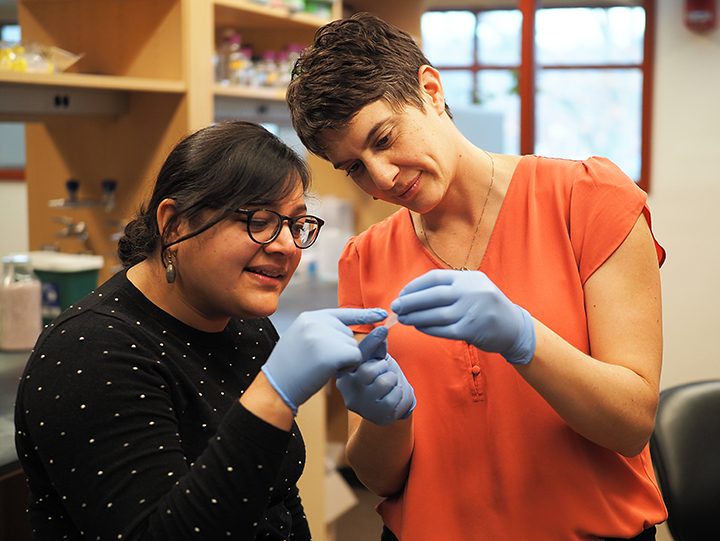Arboretum Scientists
With state-of-the-art research and growth facilities nestled alongside over 16,000 living specimens (2,100 species), the Arnold Arboretum is uniquely positioned to ask broad and important questions in plant biology. Our scientists’ research is as diverse as our living collection, ranging from organismic and evolutionary biology, molecular and developmental biology, plant physiology, and ecological, environmental and biodiversity studies. Emphasizing our close relationship to the Department of Organismic and Evolutionary Biology (OEB), many of our scientists have dual appointments in OEB and the Arboretum.
Faculty Fellows of the Arnold Arboretum of Harvard University contribute significantly to one or more of five areas central to the mission of the Arnold Arboretum: 1) Leading or collaborating on research based at the Arboretum, 2) Mentoring students and postdoctoral fellows based at the Arboretum, 3) Teaching Harvard courses based at the Arboretum, 4) Providing input on living or archival collections and landscape management, and 5) Creating outreach programs to share science and other scholarship with the public at the Arboretum.

Alaina Bisson
Graduate Student, OEB, Taylor Lab
Fellow of the Arnold Arboretum of Harvard University
The Arboretum is home to diverse nitrogen-fixing legume species originating from around the world. Alaina Bisson will sample the root nodules from 100 trees with known origins in the Arboretum. She will sequence and identify the nitrogen-fixing rhizobia bacterial communities associated with these trees and determine if the location of origin impacts the community composition.

Benton Taylor
Assistant Professor of Organismic and Evolutionary Biology
Faculty Fellow of the Arnold Arboretum of Harvard University
Benton Taylor focuses on how plants respond-to and influence their environments, particularly in view of global change. Although the primary focus of the Taylor lab is at the ecosystem scale, the research questions require viewing plants at individual as well as community scales toward a better understanding of the role of plants in global processes.

Bridget Bickner
Graduate Student, OEB, Hopkins Lab
Fellow of the Arnold Arboretum of Harvard University

Calvin Heslop
Graduate Student, OEB, Taylor Lab
Fellow of the Arnold Arboretum of Harvard University
Calvin Heslop is a graduate student in the Taylor lab. He is an ecosystem ecologist interested in the biotic and abiotic controls on nutrient cycling in terrestrial environments. His research focuses on how the N fixing shrub Siberian alder influences community composition, N cycling, and C balance in arctic Alaska.

Carina Berlingeri
Graduate Student, OEB, Taylor Lab
Fellow of the Arnold Arboretum of Harvard University
Carina Berlingeri is a graduate student in the Taylor lab. She is engaged in several projects studying how different global change drivers (nutrient pollution, disturbance, and rising CO2) alter belowground symbioses and plant resource-acquisition strategies.
Carly Coughlin
Research Assistant, OEB, Hopkins Lab

Christina Steinecke
Graduate Student, OEB, Hopkins Lab
Fellow of the Arnold Arboretum of Harvard University
Christina Steinecke is an evolutionary biologist broadly interested in major evolutionary transitions in plants and the conditions that produce them. More specifically, she is interested in identifying the unique forces that drive the enormous diversity in plant reproductive strategies. In the Hopkins lab, she is working to elucidate the causes and consequences of hybridization, polyploidy, and contrasting life history strategies in Texan Phlox species.

Daniel Faccini
Graduate Student, OEB, Friedman Lab
Fellow of the Arnold Arboretum of Harvard University
Daniel is a graduate student in the Friedman lab. Fascinated with the morphological evolution of plants, he is interested in studying plants from an organismal perspective, integrating the developmental, morphological, biogeographical, and ecological patterns to understand how the extraordinary diversity of plant forms has come to be. His research focuses on plant genera of the Canary Islands.
Elena Kramer
Bussey Professor of Organismic and Evolutionary Biology
Harvard College Professor
Faculty Fellow of the Arnold Arboretum of Harvard University
A professor in the Department of Organismic and Evolutionary Biology at Harvard University. The Kramer Lab is interested in the evolution of plant developmental genetics with a particular focus on floral evolution.

Eve Farrell
Graduate Student, OEB, Taylor Lab
Fellow of the Arnold Arboretum of Harvard University
Eve Farrell is a graduate student in the Taylor Lab who is interested in how mycorrhizal association type and global change shape both local plant-fungal interactions and broader biogeochemical processes.

Faye Rosin
Director of Research Facilitation
Arnold Arboretum of Harvard University
The research interests of Faye Rosin bear on investigating how gene expression is regulated and the consequences of that regulation at the molecular, cellular, and developmental levels.

Felix Wu
Postdoctoral Fellow, OEB, Hopkins Lab
Fellow of the Arnold Arboretum of Harvard University
Felix Wu is broadly interested in understanding the mechanistic basis of evolutionary processes—in particular, mutation and speciation—as well as the differential impact of these processes across the tree of life. In the Hopkins lab, he is researching the history of hybridization between three species of Texas annual Phlox and developing genomic tools to help us answer these questions.

Grace Burgin
Graduate Student, MSO, Hopkins Lab
Fellow of the Arnold Arboretum of Harvard University
Grace Burgin is a graduate student in the Hopkins lab.

Izzy Acevedo
Research Assistant, OEB, Hopkins Lab
Izzy Acevedo is a research assistant currently studying evolution and reinforcement in Texas wildflowers, though interested in life of all shapes and sizes. Izzy can usually be found in the research greenhouses, caring for Phlox as the Hopkins Lab investigate its flowering characteristics and mating systems. Izzy is passionate about environmental storytelling, visual art, and other creative forms of scientific communication.

James Fortin
Research Assistant, Friedman Lab and Weld Hill Labs
Arnold Arboretum of Harvard University
James Fortin started at the Arboretum as a DaRin Butz intern (’22), where he studied the morphology and development of pores on the gametophytes of hornworts (Anthocerotae). While continuing this research, he is also currently investigating potential interparental genetic conflict and imprinting in Illicium parviflorum, a relative of star anise and member of a clade basal to most flowering plants.
Lauren Jaeger
Research Assistant, OEB, Taylor Lab
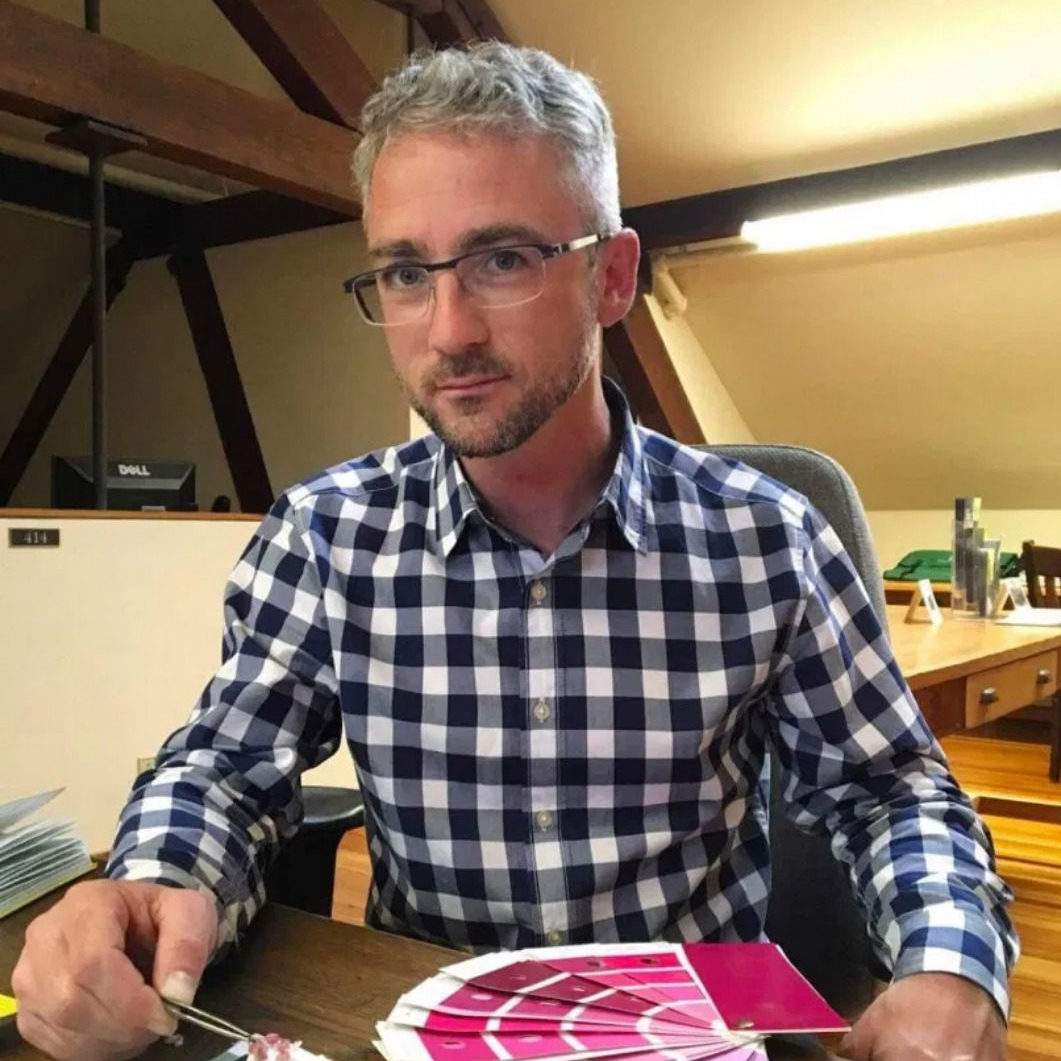
Michael Dosmann
2000-2002 Putnam Fellow
Keeper of Living Collections
Arnold Arboretum of Harvard University
As a Putnam Fellow, Michael Dosmann studied the taxonomy of katsura trees (Cercidiphyllum), the reproductive biology of a rare monkshood, the efficacy of plant exploration efforts, and helped coordinate plant selection and sequence for the Leventritt Shrub and Vine Garden. Michael returned to the Arboretum in 2007 and is now the keeper of living collections where he guides the Arboretum’s stewardship and development of its collection of temperate woody species. His work explores new strategies and tactics aimed at improving collections management and enhancing the use of Arboretum collections for research. Additionally, he conducts research on the physiological ecology of woody plants and participates in floristic efforts through domestic and foreign plant exploration.

Michael LaScaleia
2024 Putnam Fellow
Michael LaScaleia is an invasion ecologist investigating the physical and chemical defenses that allow invasive plants to avoid damage from herbivores. His dissertation at the University of Connecticut focused on the differential densities of insect herbivores feeding on native and exotic plant species and how feeding on exotic plants may make those insects more vulnerable to predation. Michael works in temperate New England forests, and hopes his research will unlock new methods to combat invasive plant species in this system.

My Trinh
Graduate Student, OEB, Friedman Lab
Fellow of the Arnold Arboretum of Harvard University

N. Michele Holbrook
Professor of Organismic and Evolutionary Biology
Charles Bullard Professor of Forestry
Faculty Fellow of the Arnold Arboretum of Harvard University
The Holbrook lab focuses on how the transport of water and solutes through the vascular system influences ecological, evolutionary and physiological processes.

Nikhil Chari
Graduate Student, OEB, Taylor Lab
Fellow of the Arnold Arboretum of Harvard University
Nikhil Chari, graduate student in the Taylor lab, is a biogeochemist interested in carbon and nutrient cycling governing terrestrial ecosystems. His focus is currently on the effects of elevated CO2 on root-soil interactions and soil carbon dynamics.

Patrick McKenzie
Postdoctoral Fellow, OEB, Hopkins Lab
Fellow of the Arnold Arboretum of Harvard University
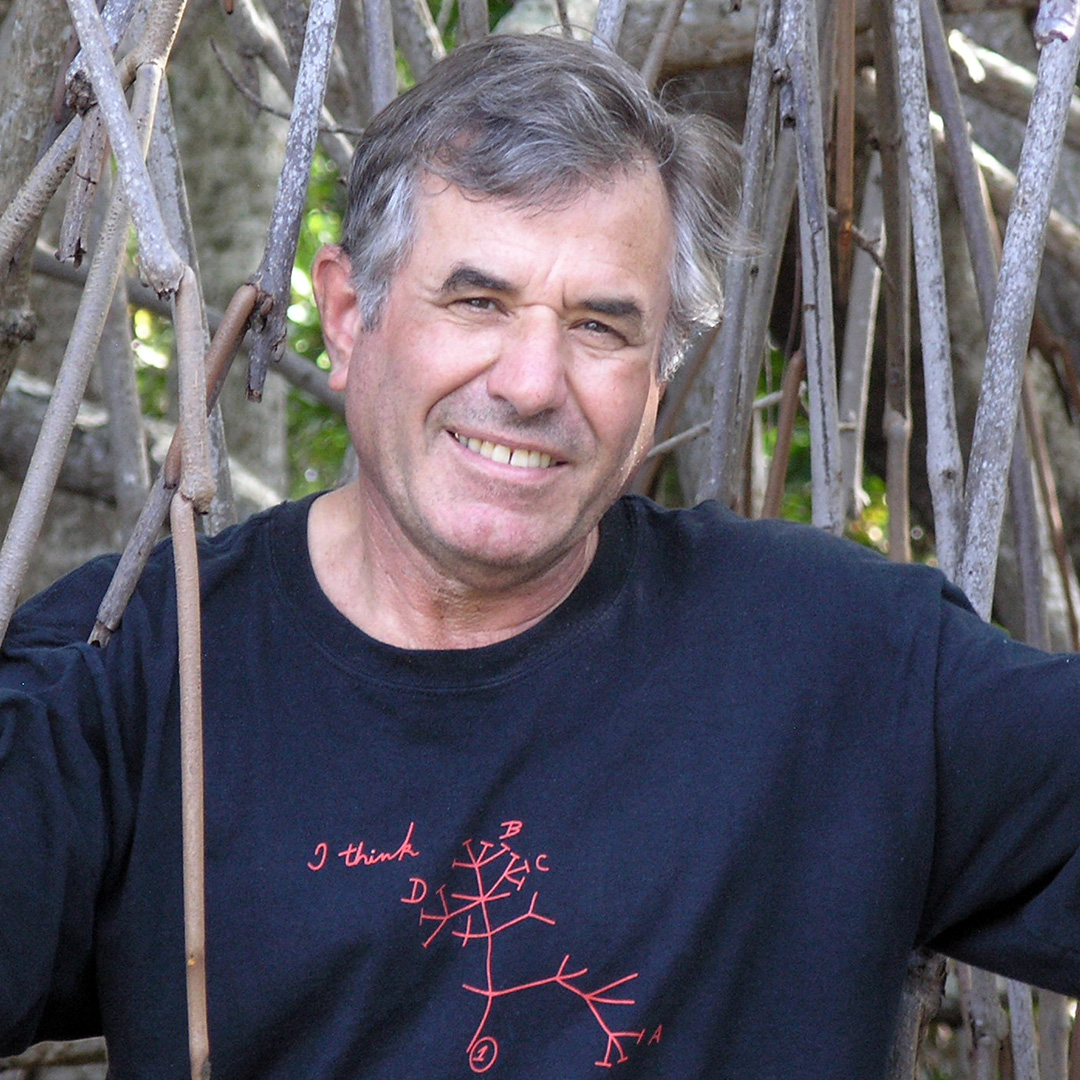
Peter Del Tredici
Senior Research Scientist Emeritus
Arnold Arboretum of Harvard University
The research interests of Peter Del Tredici are wide ranging and mainly involve the interaction between woody plants and their environment. Recently, his investigations have expanded to include studies of spontaneous urban vegetation.

Robin Hopkins
Professor of Organismic and Evolutionary Biology
Faculty Fellow of the Arnold Arboretum of Harvard University
Robin Hopkins is interested in natural selection and the process of speciation. The Hopkins lab studies color variation in Phlox with a growing focus on reproductive incompatibility between emerging species and understanding the key evolutionary forces at work.

Valeria Schmidt
Graduate Student, OEB, Hopkins Lab
Fellow of the Arnold Arboretum of Harvard University
Val joined the Extavour lab through the OEB graduate training program with an interest in understanding how the immediate abiotic environment and biotic interactions drive an organism’s phenotype, ecological patterning, and evolutionary processes through the interaction of genetics, and epigenetics. After starting her PhD in the Extavour lab based on her initial interest in incorporating developmental biology into her view of evolution, she soon realized that her interests lay more in adaptation and speciation genomics. She thus transferred to the lab of Robin Hopkins, where she continues to pursue her PhD studies.

William (Ned) Friedman
Arnold Professor of Organismic and Evolutionary Biology
Director of the Arnold Arboretum of Harvard University
Faculty Fellow of the Arnold Arboretum of Harvard University
Ned Friedman is interested in the organismic interfaces between developmental, phylogenetic, and evolutionary biology. The Friedman lab explores how patterns of morphology, anatomy, and reproductive biology have evolved through the modification of developmental processes.
Visiting Scientists
In addition to our staff scientists, the Arnold Arboretum shares its resources, the state-of-the-art research facilities, living collection, herbarium, plant records, library and archives, with scholars at Harvard and around the world. Formally-affiliated scientists are introduced below, but we open up our resources to an extensive network of researchers for a diverse range of research projects and offer fellowships, awards and internships. Learn more about requesting research access to the Arboretum living collections, research facilities, or library.
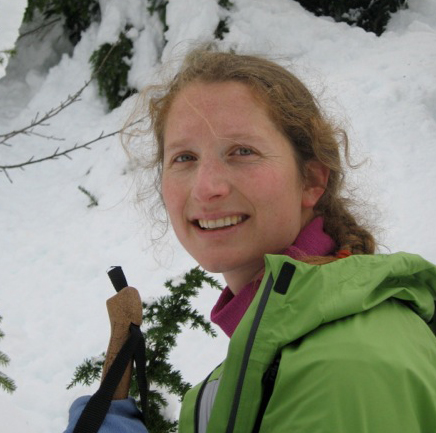
Ailene Ettinger
Quantiative Ecologist, The Nature Conservatory
Visiting Scholar, Arnold Arboretum of Harvard University
2014 Putnam Fellow
Ailene Ettinger, former Arnold Arboretum Putnam Fellow, focuses on predicting the response and sensitivity of plants to a changing climate. By examining diverse trees growing in a common environment like the Arboretum, she can identify functional traits that are important for success outside their historical conditions.
Anthony Brach
Research Associate, Harvard University Herbaria
Associate, Arnold Arboretum of Harvard University
Anthony R. Brach has a strong interest in the plants of Asia including their taxonomy, identification, and ecology. As an editor Missouri Botanical Garden and of the Flora of China Project, he is interested in exploring the digitization and creation of web-based floras and interactive identification keys.

Dan Sullivan
Associate, Arnold Arboretum of Harvard University
At the Arboretum, Dan Sullivan is evaluating a number of things to facilitate molecular studies of the Arboretum’s collections. The major part of his work involves the establishment of an on-going collection of dried newly emerging leaves, which are an excellent year-round source of DNA, from the Arboretum’s highly curated accessions.
Dave Boufford
Senior Research Scientist, Harvard University Herbaria
Associate, Arnold Arboretum of Harvard University
Dave Boufford has been leading exhibitions to Asia since 1977. Along with several colleagues, he is undertaking a survey of the plant and fungal diversity of the Hengduan Mountain region in southwestern China, one of the world’s hotspots of biodiversity. His expeditions in unexplored and underexplored regions complement collections made in the first half of the twentieth century by Joseph Rock, TT Yü, C. W. Wang, R. C. Ching, and others.

David Des Marais
Assistant Professor, MIT
Visiting Scholar, Arnold Arboretum of Harvard University
The research of David Des Marais focuses on how plants interact with the environment and the variation in these interactions between species. Understanding how plants adapt to the local environment can increase our ability to conserve plant populations.

Elizabeth Kellogg
Robert E. King Distinguished Investigator, Donald Danforth Plant Science Center
Associate, Arnold Arboretum of Harvard University
The research program of Elizabeth (Toby) Kellogg is focused on the evolutionary biology of important cereal crops and their relatives in the grass family. The goal is to understand and predict how the floral structure of wild species affects climate resilience in wild and cultivated species.
Elizabeth Wolkovich
Associate Professor, University of British Columbia, Canada
Visiting Scholar, OEB, Harvard University
Elizabeth Wolkovich is interested in how communities assemble and disassemble in light of global changes. The Wolkovich lab focuses on testing and understanding underlying mechanisms using both theoretical techniques and field experiments to study how current and future plant communities are shaped.

Erica Kirchhof
PhD Student, University of Wisconsin-Madison
Visiting Fellow, Arnold Arboretum of Harvard University
Erica Kirchhof is a Horticulture PhD student at the University of Wisconsin-Madison working with Dr. Al Kovaleski in the Plant Resilience Lab. She is interested in understanding how the progression of dormancy and cold hardiness in temperate woody perennials relates to the timing of budbreak in the spring. She is collecting data related to dormancy and bud cold hardiness in several different deciduous and evergreen species throughout the eastern United States, with the overall goal of improving phenology predictions in temperate regions. Erica was a 2021 DaRin Butz Research Intern.

Ian McCahill
Postdoctoral Fellow, MIT
Visiting Fellow, Arnold Arboretum of Harvard University
Ian is interested in the molecular systems that allow plants to perceive environmental conditions and adjust their growth and development accordingly. Ian is a postdoc in the Des Marais group at MIT, where he studies the effects of carbon dioxide on grass development. Under increasing concentrations of atmospheric carbon dioxide, photosynthesis becomes more efficient, a phenomenon known as the CO2 fertilization effect. However, different species “spend” these “extra” resources differently, creating an exciting opportunity to examine the genetic basis of different patterns of carbon allocation.

Jacob Suissa
Assistant Professor, University of Tennessee, Knoxville
Visiting Scholar, Arnold Arboretum of Harvard University
Jacob Suissa is an evolutionary biologist focusing on Ferns and Lycophytes. He takes a broad scale macroevolutionary approach as well as a small scale physiological approach to answer interesting questions about fern evolution.
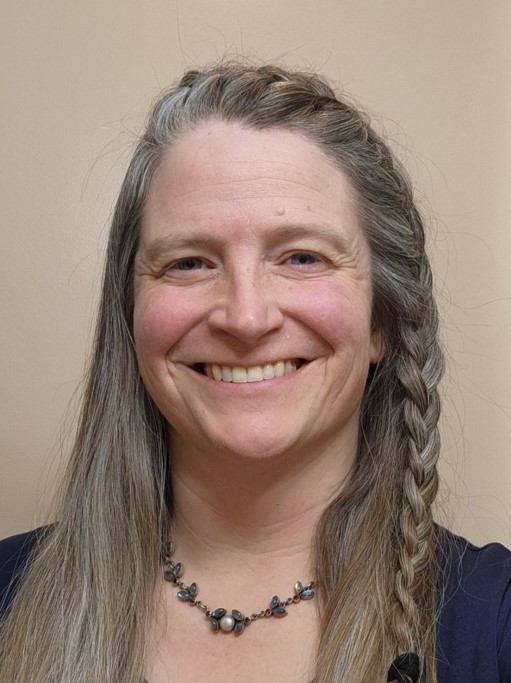
Jessica Savage
2014-2016 Putnam Fellow
2017 Sinnott Award
2023 Jewett Prize
Associate Professor, University of Minnesota, Duluth
Visiting Scholar, Arnold Arboretum of Harvard University
Building on her work as a Putnam fellow, Jessica Savage will examine a diverse set of species in the Arboretum’s living collections to see how the anatomical diversity of phloem, the part of the vascular system responsible for sugar transport, may impact patterns of vegetative and reproductive growth.
- Savage JA, Kiecker T, McMann N, Park D, Rothendler M, Mosher K. 2022. Leaf out time correlates with wood anatomy across large geographic scales and within local communities. New Phytologist 235: 953-64. Abstract
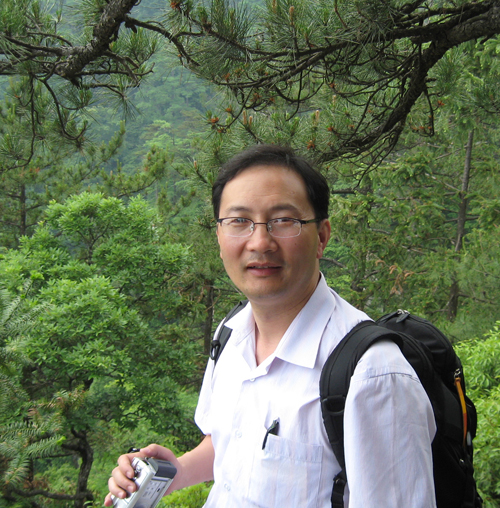
Jianhua Li
Sargent Award
Professor of Biology, Hope College
Associate, Arnold Arboretum of Harvard University
As Putnam Fellow, Jianhua Li studied the phylogenetic relationships of witch hazels (Hamamelis) and studied the classification of tree lilacs (Syringa) with Arboretum propagator Jack Alexander. After his fellowship, Jianhua served a senior research scientist at the Arboretum until 2009. With his Sargent Award, Jianhua will return to the Arboretum for his sabbatical focusing on the reconstruction of the early tree of life of Acer. The evolutionary relationships of this important and diverse tree genus has, thus far, remained largely unresolved hindering our understanding of the natural history of maples.
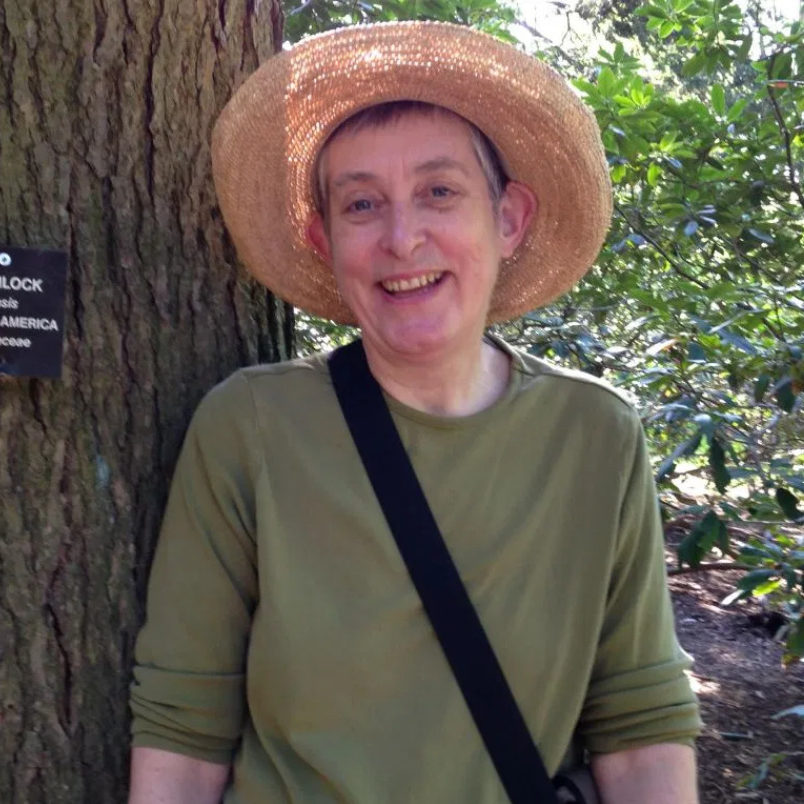
Lorna Gibson
Professor, MIT
Associate, Arnold Arboretum of Harvard University
The research of Lorna Gibson is focused on the mechanics of materials with a cellular structure such as engineering honeycombs and foams, natural materials such as wood, leaves and bamboo and medical materials such as trabecular bone and tissue engineering scaffolds.

Lucy Hutyra
Associate Professor, Boston University
Associate, Arnold Arboretum of Harvard University
Lucy Hutyra focuses on understanding the carbon cycle in an urban environment with research sites across Boston including the Arnold Arboretum. Lucy and Pam Templer collaborate with the Arnold Arboretum to set-up, operate, and analyze the data gathered from the Arboretum’s National Atmospheric Deposition Program (NADP site – MA98) at Weld Hill.
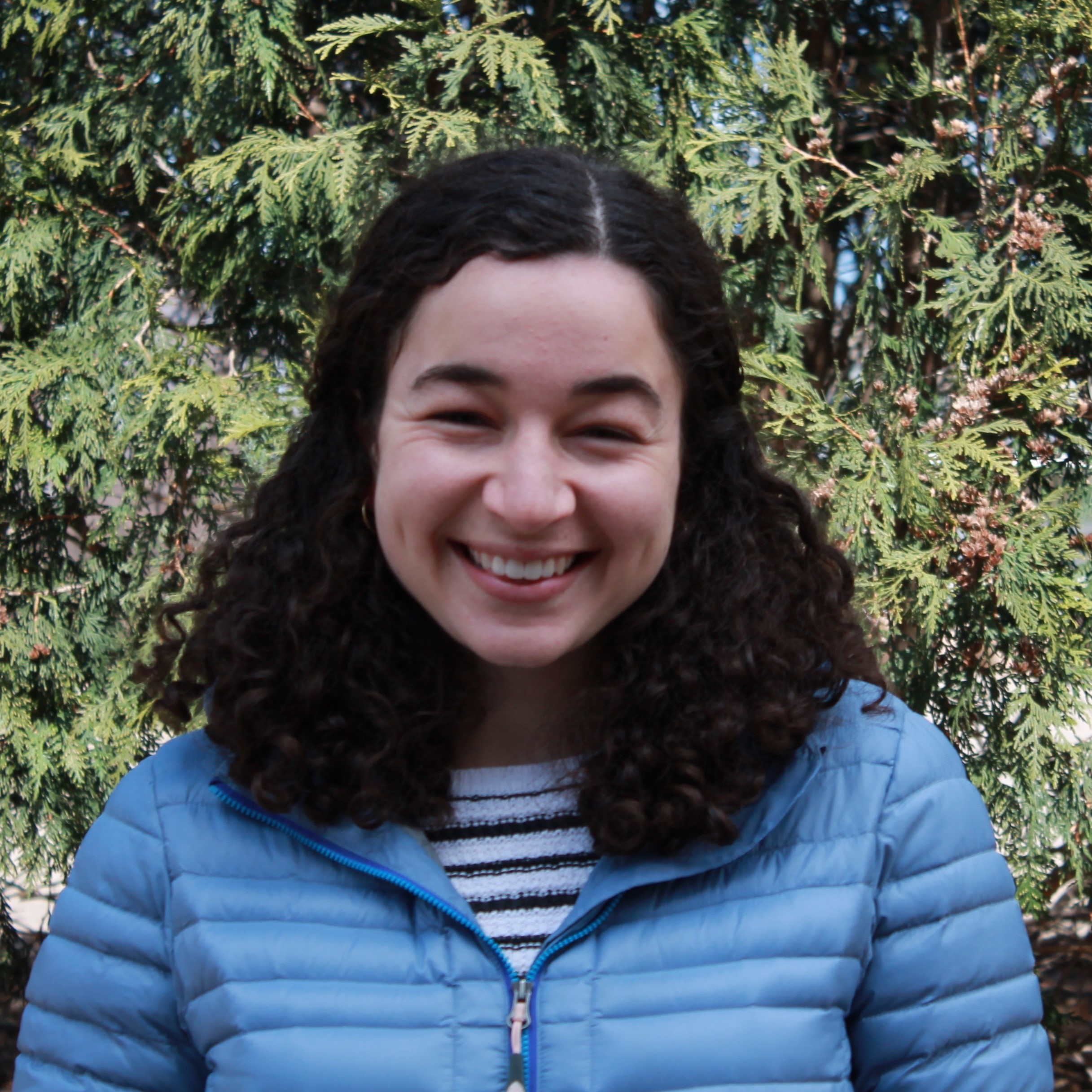
Megan Wilcots
Applied Climate Scientist, The Nature Conservancy
Visiting Scholar, Arnold Arboretum of Harvard University
Megan Wilcots was the first Global Change Fellow from the Arnold Arboretum, a position she held jointly with the HUCE as an Environmental Fellow. As a Visiting Scholar, Megan works with Professor Ben Taylor to study how Arctic heatwaves alter nitrogen fixation and carbon uptake.

Morgan Moeglein
2021-2022 Putnam Fellow
Assistant Professor, Norwich University
Visiting Scholar, Arnold Arboretum of Harvard University
Overwintering of leaf buds is a common strategy thought to allow plants to adapt to periodically stressful environments. Morgan Moeglein developed a comparative framework for understanding fundamental questions of the timing and mechanisms of leaf preformation in buds, its contribution to seasonal growth, and the conservation of these strategies using closely related species in the Arboretum’s living collections. Morgan is an assistant professor at Norwich University and a Visiting Scholar of the Arnold Arboretum.
Pam Diggle
Professor and Department Head, University of Connecticut
Associate, Arnold Arboretum of Harvard University

Pam Templer
Professor, Boston University
Associate, Arnold Arboretum of Harvard University
The work of Pamela Templer involves examining the effects of climate change and urbanization on forest ecosystems including numerous sites at the Arboretum. In addition, Pam and Lucy Hutyra collaborate with the Arnold Arboretum to set-up, operate, and analyze the data gathered from the Arboretum’s National Atmospheric Deposition Program (NADP site – MA98) at Weld Hill.

Sonia E. Sultan
Alan M. Dachs Professor of Science, Wesleyan University
Associate, Arnold Arboretum of Harvard Universtity
Sonia Sultan studies individual plasticity–how developing plants adjust their phenotypes and those of their offspring in alternative environmental conditions, often in adaptive ways. Through greenhouse and growth chamber experiments using local Polygonum genotypes as a naturally evolved model system, her group characterizes the breadth of phenotypic response to ecologically realistic environmental challenges such as drought stress and shade, including the epigenetically mediated transgenerational effects of these stresses on offspring phenotypes.
DaRin Butz Foundation Research Interns
The DaRin Butz Foundation Research Internship Program at the Arnold Arboretum of Harvard University gives undergraduates in the life sciences a unique opportunity to experience research from start to finish while gaining training and connections among scientific colleagues. Spending ten weeks at the Arboretum during the summer, DaRin Butz interns conduct and present research and participate in activities with the other interns. Alumni return to the program to act as mentors or host social and learning events for current interns.
Select Years
2025 DaRin Butz Research Interns
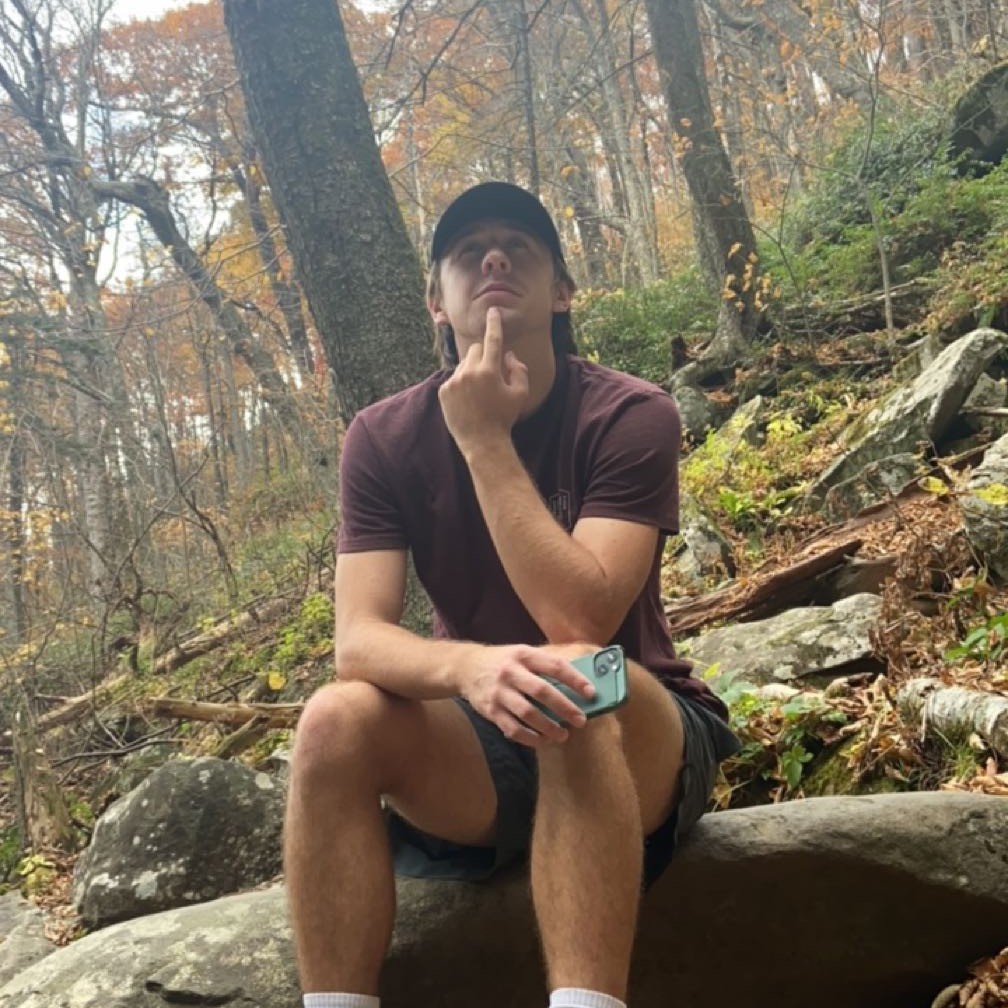
Blake Califf
University of Tennessee, Knoxville – 2027
2025 DaRin Butz Intern in the Taylor Lab
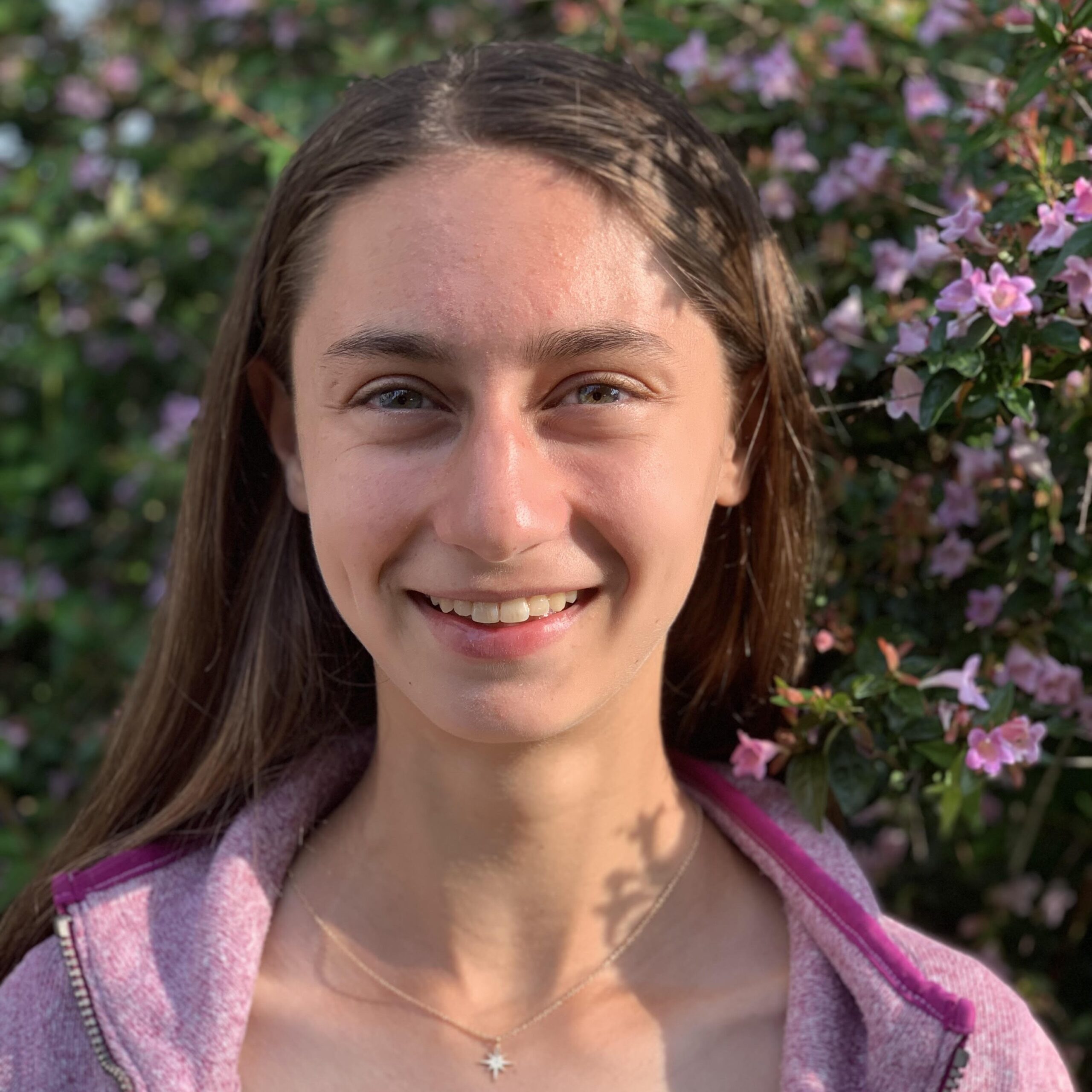
Jenna Coleman
Catawba College – 2027
2025 DaRin Butz Intern in the Taylor Lab
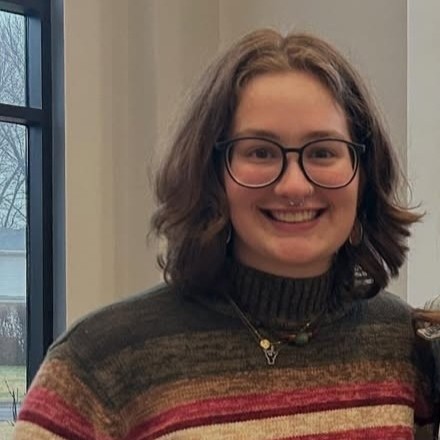
Maddie Jocek
Ohio University – 2026
2025 DaRin Butz Intern in the Friedman Lab
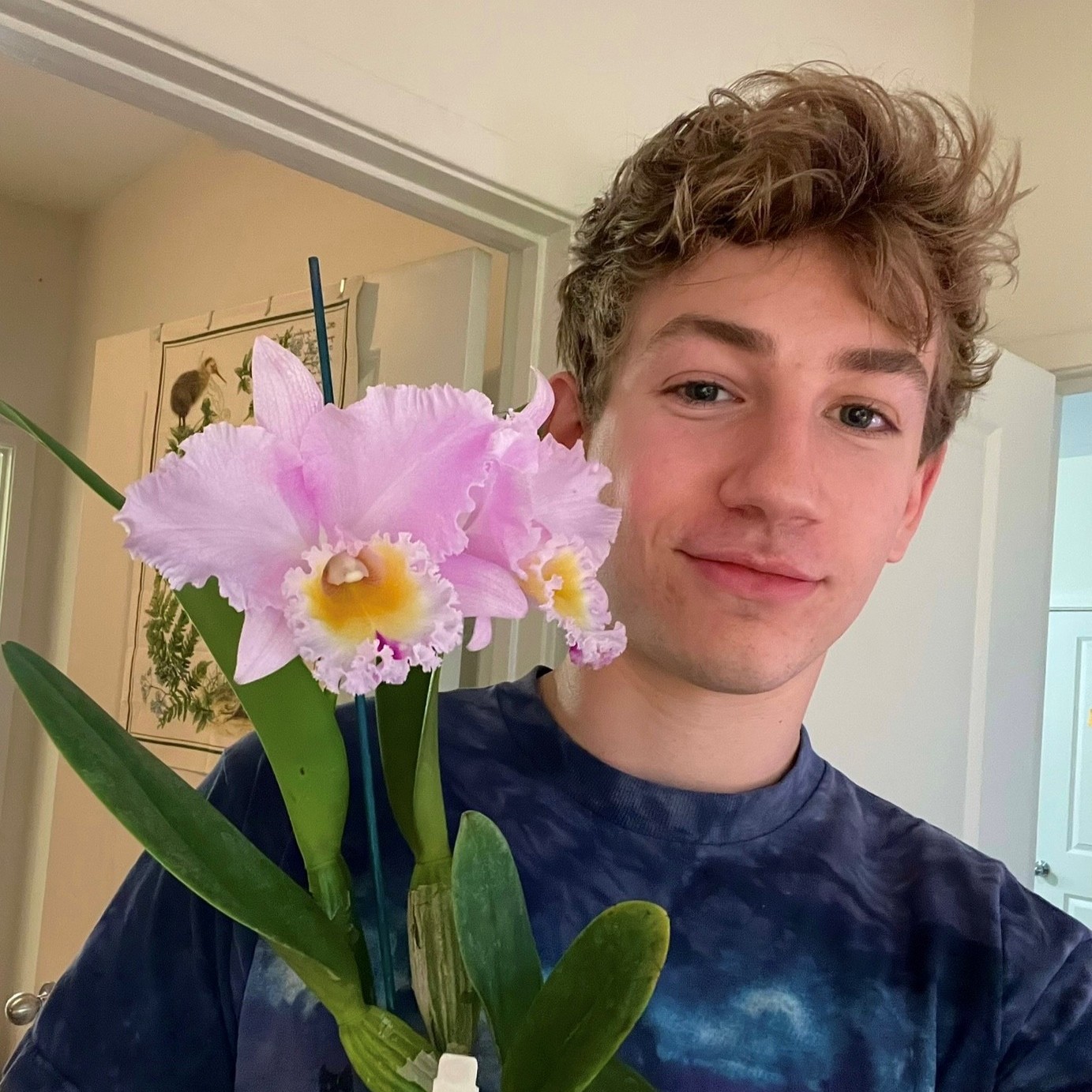
Will Johnson
University of Georgia- 2026
2025 DaRin Butz Intern in the Kellogg and Gong Labs
Will is a third-year undergraduate student at the University of Georgia majoring in applied biotechnology with an emphasis in plant science and minoring in plant biology. He has a strong interest in plant morphology, evolutionary biology, and the genetic mechanisms underlying both. Will grows and collects over 100 tropical plants in his apartment which drives his curiosity and passion for plants. In his free time, Will enjoys hiking, painting, and making ceramics. He is excited to work with Dr. Kellog and Dr. Gong to explore flower morphology and learn observational techniques.
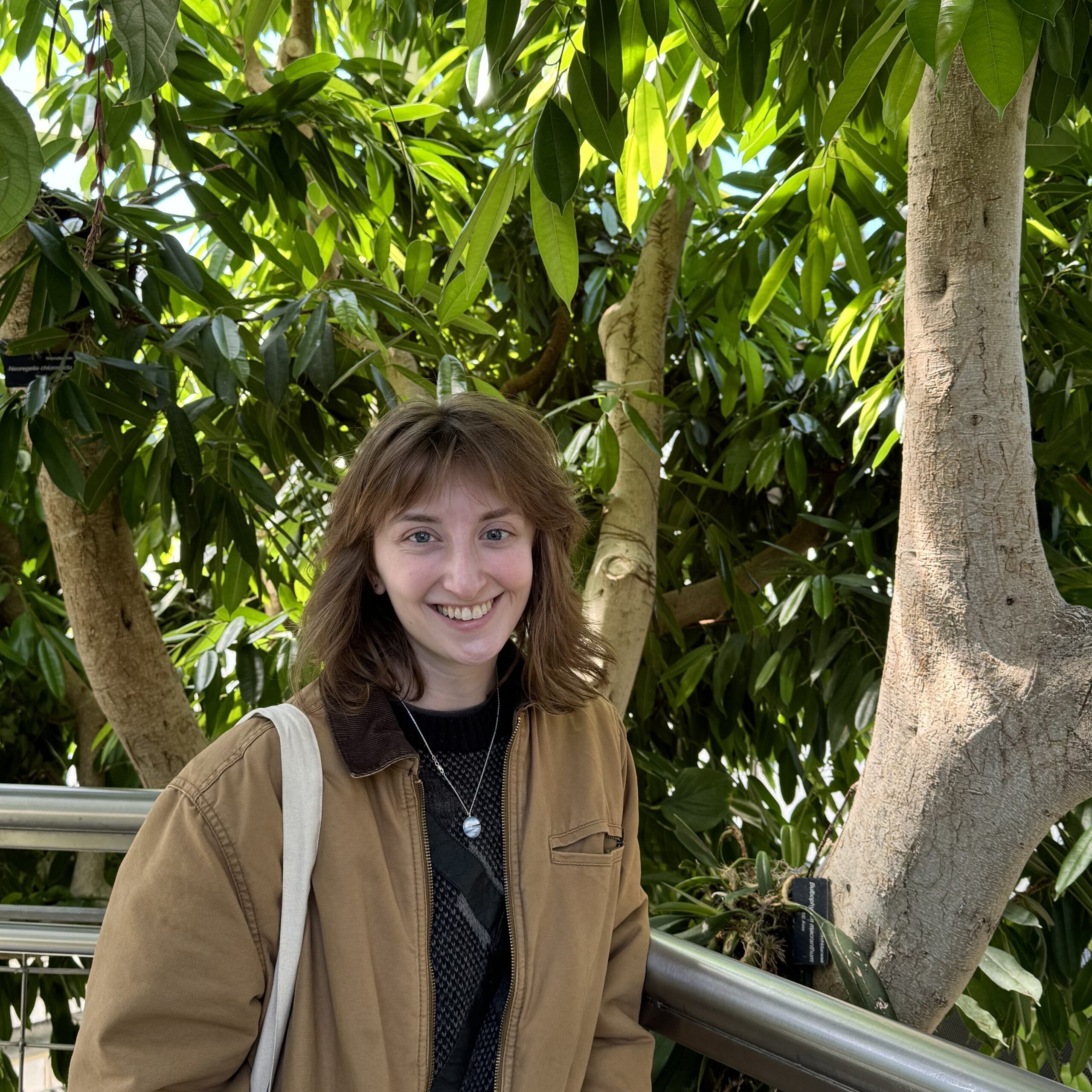
Katie McGillivray
University of Massachusetts, Amherst- 2026
2025 DaRin Butz Intern in the Kellogg and Gong Labs
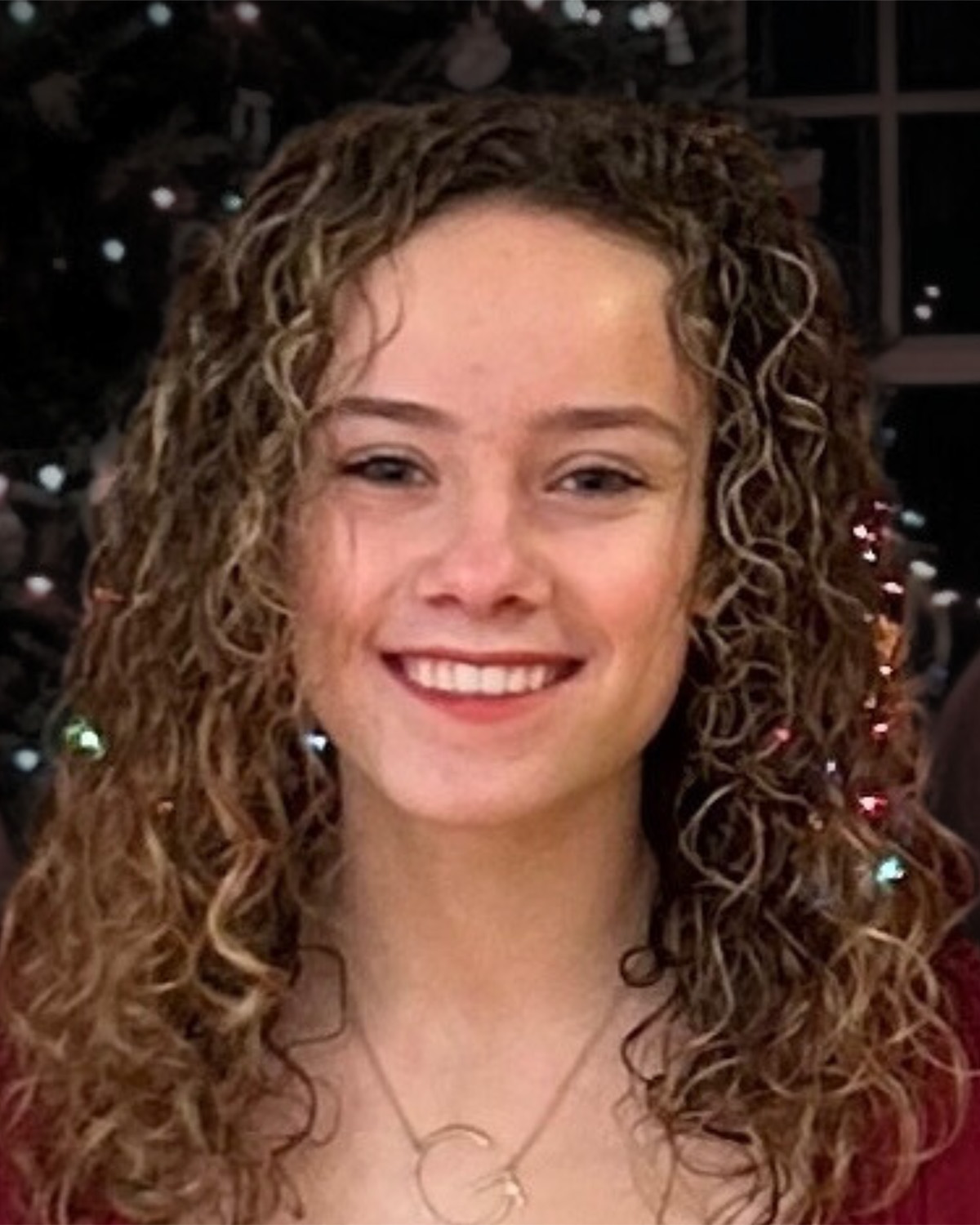
Grace Papetti
Hamilton College – 2027
2025 DaRin Butz Intern in the Friedman Lab
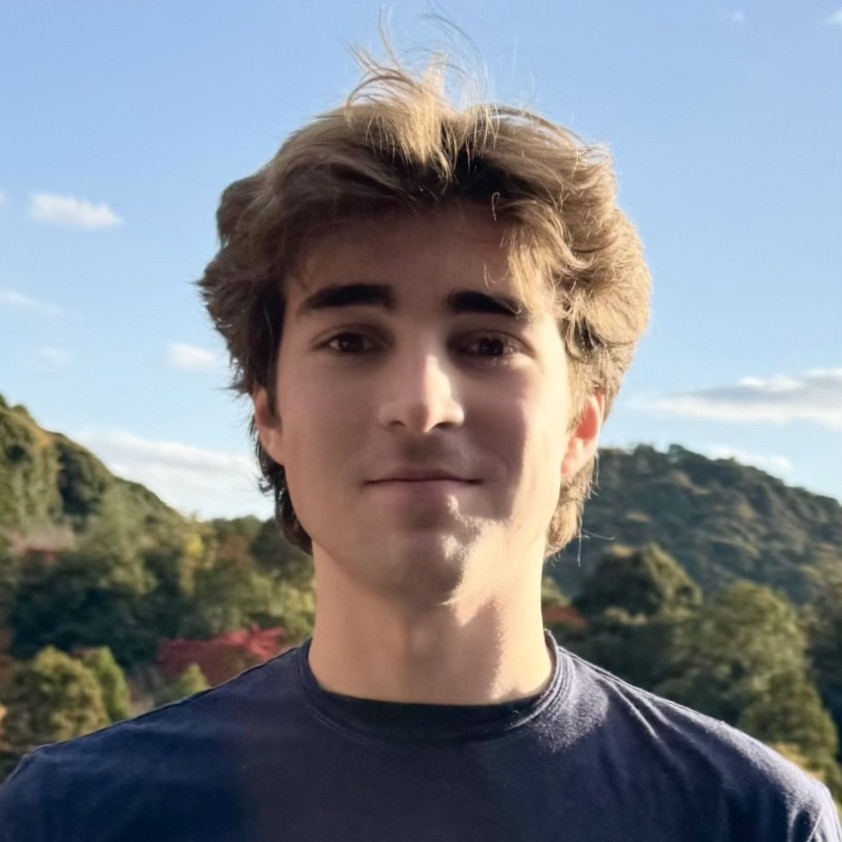
Beau Rass
DePaul University – 2026
2025 DaRin Butz Intern in the Templer and Hutyra Labs
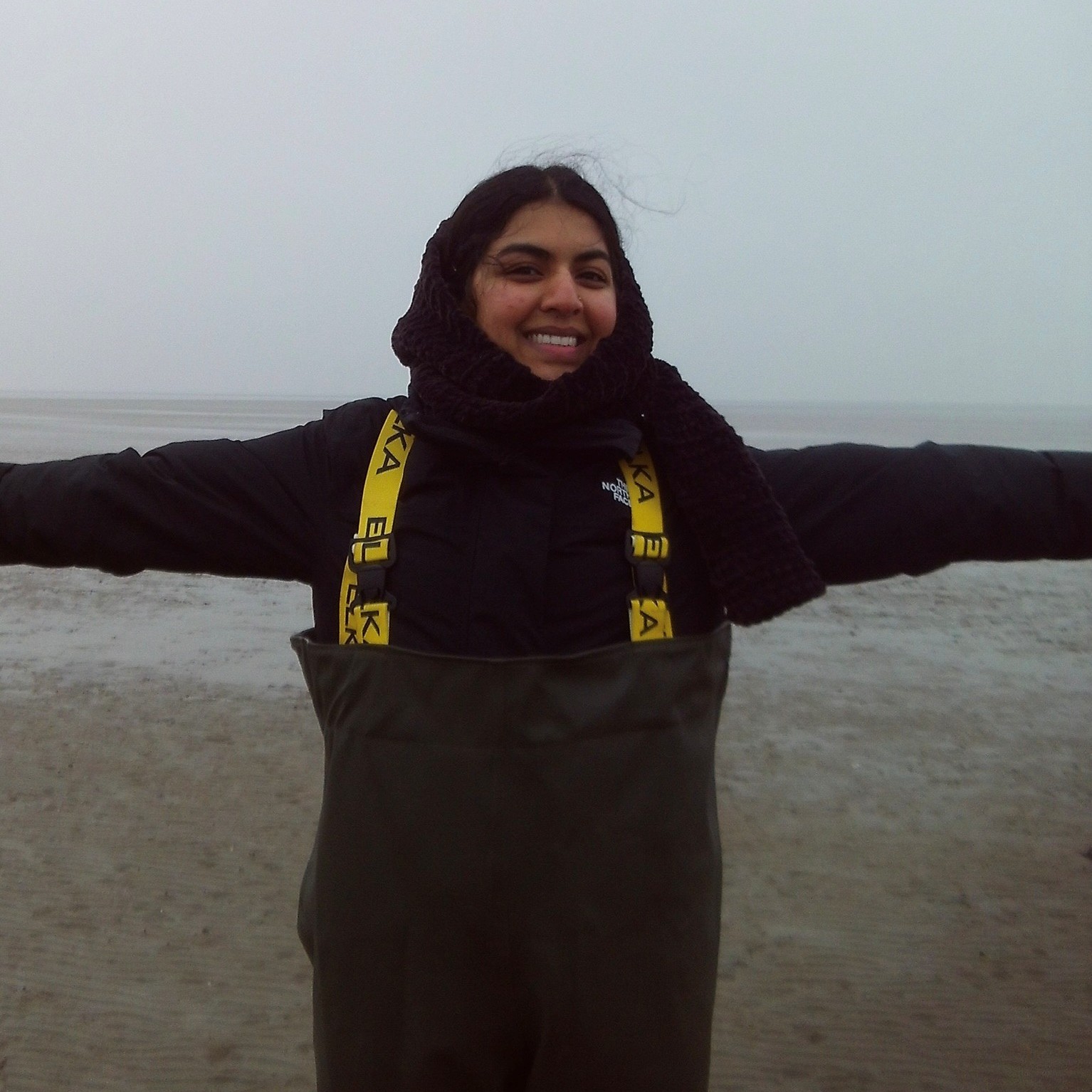
Isha Saini
University of Michigan - Ann Arbor – 2026
2025 DaRin Butz Intern in the LaScaleia Lab
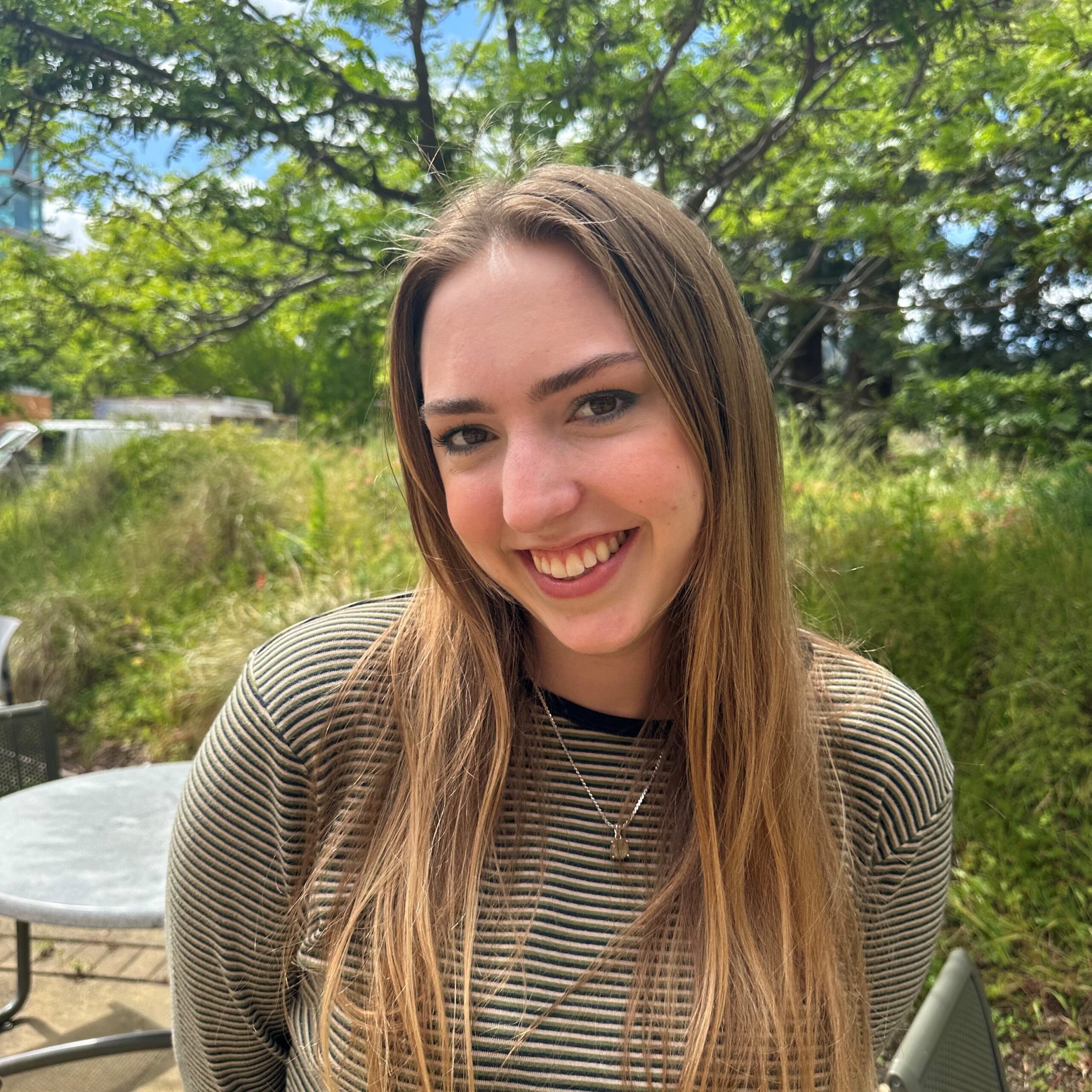
Olivia Thorgersen
College of Marin – 2025
2025 DaRin Butz Intern in the LaScaleia Lab
2024 DaRin Butz Research Interns


Aditi Panda
National Institute of Science Education and Research (NISER), India – 2025
2024 DaRin Butz Intern in the Friedman Lab

Aidan Jones
University of Vermont – 2026
2024 DaRin Butz Intern in the Kellogg Lab

Eva-Sophia Swaddipong
Haverford College – 2026
2024 DaRin Butz Intern in the Hopkins Lab

Jazmine Harry
Howard University – 2026
2024 DaRin Butz Intern in the Hopkins Lab

Jiarong (Lotus) Carlson
University of Massachusetts, Amherst – 2025
2024 DaRin Butz Intern in the Templer Lab

Oscar de la Torre
University of Georgia – 2026
2024 DaRin Butz Intern in the Taylor Lab

Tori Bacall
Bowdoin College – 2026
2024 DaRin Butz Intern in the Taylor Lab

Serene Omran
University of Massachusetts, Amherst – 2025
2024 DaRin Butz Intern in the Kellogg Lab
2023 DaRin Butz Research Interns


Angelique Acevedo
Cornell University – 2023
2023 DaRin Butz Intern in the Villouta Lab

Daniel Pinckney
Harvard College – 2024
2023 DaRin Butz Intern in the Templer and Hutyra Labs

Estefania Elejalde Baena
University of Antioquia, Colombia – 2023
2023 DaRin Butz Intern in the Friedman Lab

Kathryn Vanden Hoek
University of Missouri, Columbia – 2024
2023 DaRin Butz Intern in the Taylor Lab

Maya Akazawa
Oberlin College – 2025
2023 DaRin Butz Intern in the Taylor Lab

My Trinh
Oberlin College – 2025
2023 DaRin Butz Intern in the Friedman Lab

Yusuf Yildirim
Harvard College – 2025
2023 DaRin Butz Intern in the Hopkins Lab
2022 DaRin Butz Research Interns


Ben Tibbetts
Case Western Reserve University – 2025
2022 DaRin Butz Intern in the Taylor Lab

Cameron Chin
University of Massachusetts, Amherst – 2023
2022 DaRin Butz Intern in the Templer and Hutyra Labs

Eden Fisher
Harvard College – 2025
2022 DaRin Butz Intern in the Friedman Lab

Emily Lancaster
University of Michigan – 2023
2022 DaRin Butz Intern in the Villouta Lab

James Fortin
Williams College – 2022.5
2022 DaRin Butz Intern in the Friedman Lab

Joshua Murphy
The George Washington University – 2025
2022 DaRin Butz Intern in the Hopkins Lab

Olivia Bronzo-Munich
Bowdoin College – 2023
2022 DaRin Butz Intern in the Hopkins Lab
- Burgin GA, Bronzo-Munich O, Garner AG, Acevedo IA, Hopkins R. 2023. Characterizing each step of pollination in Phlox drummondii reveals a single butterfly species predominates the pollinator assemblage. American Journal of Botany. Abstract

William Huntley
William Huntley
2022 DaRin Butz Intern in the Moeglein Lab
2021 DaRin Butz Research Interns


Aunnesha Bhowmick
University of California, Berkeley – 2024
2021 DaRin Butz Intern in the Taylor Lab

Bea Mace
Cornell University – 2023
2021 DaRin Butz Intern in the Kovaleski Lab

Dylan Dubay
Goucher College – 2022
2021 DaRin Butz Intern in the Grossman Lab

Erica Kirchhof
Cornell University – 2022
2021 DaRin Butz Intern in the Kovaleski Lab

Jerry Gonzalez-Cantoral
University of San Carlos of Guatemala – 2021
2021 DaRin Butz Intern in the Moeglein Lab

Millicent Harding
Durham University, United Kingdom – 2021
2021 DaRin Butz Intern in the Taylor Lab

Nidhi Vinod
Eastern Mennonite University – 2020
2021 DaRin Butz Intern in the Grossman Lab

Yanni Pappas
Northeastern University – 2022
2021 DaRin Butz Intern in the Templer Lab
- Conrad-Rooney E, Gewirtzman J, Pappas Y, Pasquarella VJ, Hutyra LR, Templer PH. 2023. Atmospheric wet deposition in urban and suburban sites across the United States. Atmospheric Environment. 305:119783 Abstract
2019 DaRin Butz Research Interns


Daniel Mindich
Harvard College – 2022
2019 DaRin Butz Intern in the Friedman Lab

Dannielle Waugh
University of Central Florida – 2020
2019 DaRin Butz Intern in the Spriggs Lab

Emma O’Donnell
University of Massachusetts, Amherst – 2021
2019 DaRin Butz Intern in the Hopkins Lab

Erin Wright
Harvard College – 2021
2019 DaRin Butz Intern in the Holbrook Lab

Fiona Harrigian
Wellesley College – 2020
2019 DaRin Butz Intern in the Templer & Hutyra Labs

Henry Coe
Oberlin College – 2020
2019 DaRin Butz Intern in the Grossman Lab
- Grossman JJ, Coe HB, Fey O, Fraser N, Salaam M, et al. Temperate woody species across the angiosperm phylogeny acquire tolerance to water deficit stress during the growing season. New Phytologist. Abstract

Mayerlin Fischbach Barria
University of Central Florida – 2020
2019 DaRin Butz Intern in the Des Marais Lab

Liam Cleary
University of Massachusetts, Amherst – 2020
2019 DaRin Butz Intern in the Friedman Lab

Yiling Fang
Oberlin College – 2020
2019 DaRin Butz Intern in the Holbrook Lab
2018 DaRin Butz Research Interns


Andrew Walter-McNeill
Bowdoin College – 2019
2018 DaRin Butz Intern in the Des Marais Lab

Anna Blaustein
Bowdoin College – 2019
2018 DaRin Butz Intern in the Des Marais Lab

Anny Garcés Palacio
Universidad de Antioquia, Colombia – 2019
2018 DaRin Butz Intern in the Friedman Lab

Bridget Bickner
University of Nebraska, Lincoln – 2018
2018 DaRin Butz Intern in the Hopkins Lab

Derek Schneider
Amherst College – 2020
2018 DaRin Butz Intern in the Hopkins Lab

Emily Brown
Boston University – 2019
2018 DaRin Butz Intern in the Zieminska Lab

Matthew Fertakos
The College of New Jersey – 2019
2018 DaRin Butz Intern in the Spriggs Lab
- Spriggs EL, Fertakos ME. 2021. Evolution of Castanea in North America: restriction-site-associated DNA sequencing and ecological modeling reveal a history of radiation, range shifts, and disease. American Journal of Botany 108: 1692-704.

Marissa Lee
Boston University – 2019
2018 DaRin Butz Intern in the Templer and Hutyra Labs

Zhe He
Wheaton College – 2018
2018 DaRin Butz Intern in the Holbrook Lab
2017 DaRin Butz Research Interns


Asa Peters
Connecticut College – 2019
2017 DaRin Butz Intern in the Wolkovich Lab

Ashley Bang
Brown University – 2019
2017 DaRin Butz Intern in the Templer and Hutyra Labs
- Hundertmark WJ, Lee M, Smith IA, Bang AHY, Chen V, Gately C, Templer PH, Hutyra LR. 2021. Influence of landscape management practices on urban greenhouse gas budgets. Carbon Balance Management.

Emily Rosa
Sonoma State University – 2018
2017 DaRin Butz Intern in the Zieminska Lab
- Ziemińska K, Rosa E, Gleason SM, Holbrook NM. Wood day capacitance is related to water content, wood density, and anatomy across 30 temperate tree species. Plant Cell & Environment 43: 3048– 3067.

Jack Smith
Harvard University – 2019
2017 DaRin Butz Intern in the Friedman Lab

Jessica Leslie
UMass, Amherst – 2017
2017 DaRin Butz Intern in the Hopkins Lab

Juliet Bramante
Harvard University – 2018
2017 DaRin Butz Intern in the Hopkins Lab

Sruti Pandey
Boston University – 2020
2017 DaRin Butz Intern in the Holbrook Lab

Vivien Chen
Boston University – 2019
2017 DaRin Butz Intern in the Holbrook, Templer and Hutyra Labs
- Hundertmark WJ, Lee M, Smith IA, Bang AHY, Chen V, Gately C, Templer PH, Hutyra LR. 2021. Influence of landscape management practices on urban greenhouse gas budgets. Carbon Balance Management.
Research Interns
Our research interns and trainees, primarily undergraduate students and recent graduates, gain valuable experience working in a research environment while working closely under the direction of our research scientists, including the Friedman lab, Hopkins lab, Taylor lab and Putnam Fellows. Our DaRin Butz Interns conduct research for 10 weeks in the summer as part of the DaRin Butz Foundation Research Internship Program at the Arnold Arboretum of Harvard University.
- Anushka Bhagwat, undergraduate student, Northeastern University, Hopkins Lab
- Esther Song, Undergraduate student, Harvard College, Taylor Lab
- Finn Crawford, Undergraduate student, Harvard College, Taylor Lab
- Ian Palk, Undergraduate student, Harvard College, Taylor Lab
- Nia Faith, undergraduate student, Harvard College, Hopkins lab
Our Putnam and Global Change Fellows
The Katharine H. Putnam Fellowships in Plant Science and the Global Change Postdoctoral Fellowship are independent postdoctoral fellowships at the Arnold Arboretum that give scholars the opportunity to define and develop independent research projects while inspiring collaborations for years to come. In addition to the fellowships, the Arboretum also offers eight research awards to fund research projects for all career stages, from student to faculty, and the DaRin Butz Research Internship for an undergraduate summer research experience.
Current Fellows

Michael LaScaleia
2024 Putnam Fellow
Michael LaScaleia is an invasion ecologist investigating the physical and chemical defenses that allow invasive plants to avoid damage from herbivores. His dissertation at the University of Connecticut focused on the differential densities of insect herbivores feeding on native and exotic plant species and how feeding on exotic plants may make those insects more vulnerable to predation. Michael works in temperate New England forests, and hopes his research will unlock new methods to combat invasive plant species in this system.
Past Fellows
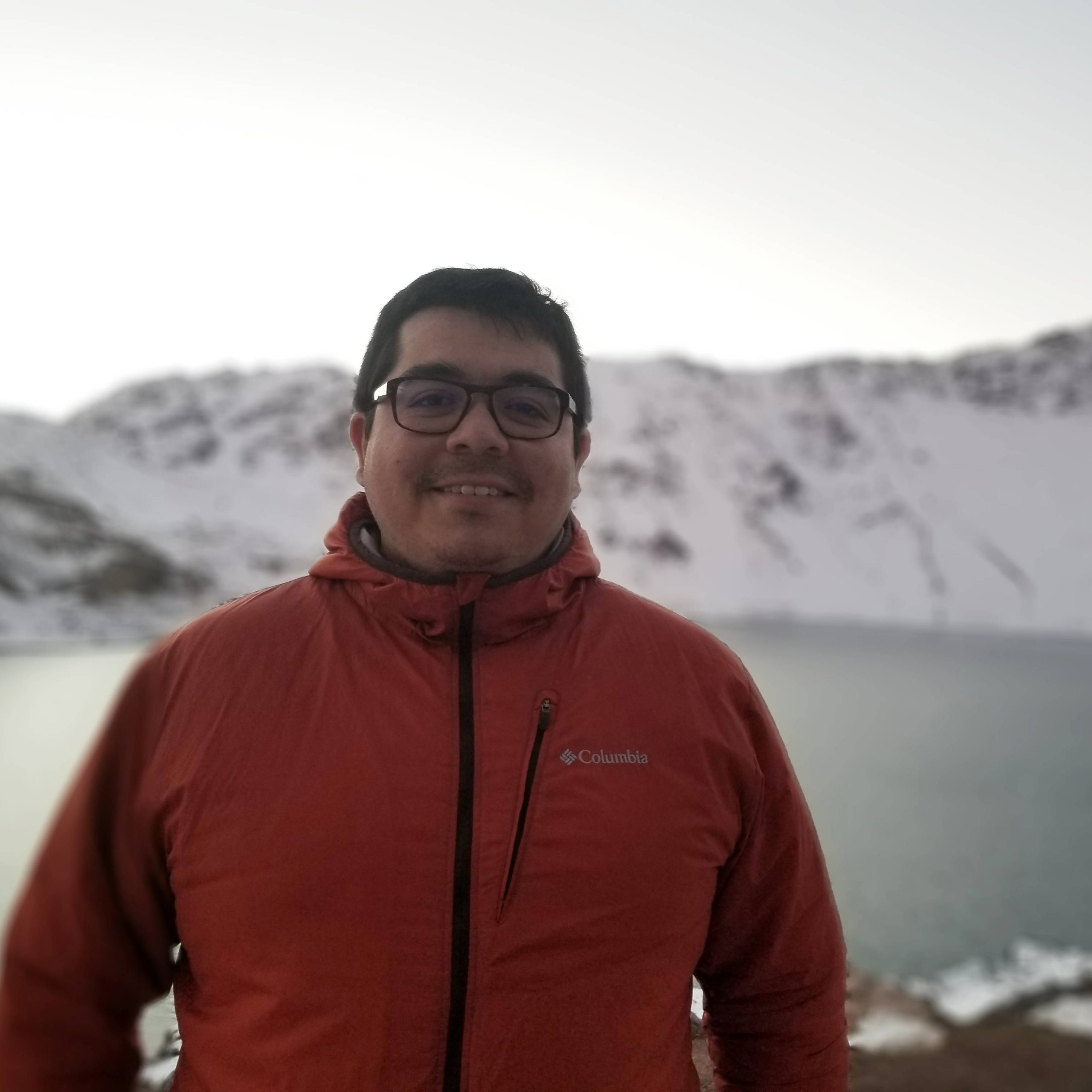
Camilo Villouta
2021-2023 Putnam Fellow
Winter presents significant challenges to long lived perennial species, and in particular, to the reproductive buds that form before winter. Trees have developed different strategies for surviving winter and ensuring reproductive success. Camilo Villouta focuses on understanding the tradeoff between different survival strategies that trees employ with successful reproduction in the spring. This work will add insight to how climate change may impact temperate woody species. Camilo is an assistant professor at the University of Rhode Island.

Megan Wilcots
2023 Global Change Fellow
Megan Wilcots received her PhD in Ecology from the University of Minnesota – Twin Cities and her BA in Environmental Biology with a focus on Ecology and Evolution from Columbia University. Her research experience has spanned from the tropics to the poles, with a focus on how global change affects carbon uptake of ecosystems. Her dissertation research focused on how nitrogen deposition affects plant community composition and ecosystem carbon storage in Minnesota grasslands. She also works in the Arctic, understanding how nutrient release from permafrost thaw may restructure Arctic ecosystems.
Megan is the first Global Change Postdoctoral Fellow from the Arnold Arboretum, a position she holds jointly with the Harvard University Center for the Environment (HUCE) as an Environmental Fellow. As a Fellow, Megan works with Professor Ben Taylor to study how Arctic heatwaves alter nitrogen fixation and carbon uptake. Megan is now an Applied Climate Scientist for The Nature Conservancy and a Visiting Scholar of the Arnold Arboretum.

Morgan Moeglein
2021-2022 Putnam Fellow
Assistant Professor, Norwich University
Visiting Scholar, Arnold Arboretum of Harvard University
Overwintering of leaf buds is a common strategy thought to allow plants to adapt to periodically stressful environments. Morgan Moeglein developed a comparative framework for understanding fundamental questions of the timing and mechanisms of leaf preformation in buds, its contribution to seasonal growth, and the conservation of these strategies using closely related species in the Arboretum’s living collections. Morgan is an assistant professor at Norwich University and a Visiting Scholar of the Arnold Arboretum.

Al Kovaleski
2019-2021 Putnam Fellow
Al Kovaleski is a plant physiologist interested in understanding how woody plants adapt to freezing stresses during winter. Al examined cold hardiness, chilling response, and resumption of growth to recalibrate phenological models of budbreak in diverse tree species in the Arboretum. Al is an assistant professor at the University of Wisconsin, Madison.
- Kovaleski AP*. 2022. Woody species do not differ in dormancy progression: Differences in time to budbreak due to forcing and cold hardiness. Proceedings of the National Academy of Sciences 119: e2112250119. Abstract
- Kovaleski AP*, Grossman JJ*. 2021. Standardization of electrolyte leakage data and a novel liquid nitrogen control improve measurements of cold hardiness in woody tissue. Plant Methods 17: 53. (APK and JJG contributed equally) Abstract

Jake Grossman
2018-2020 Putnam Fellow
A plant ecophysiologist, Jake Grossman has a strong interest in forest ecosystems and trees. Jake examined drought vulnerability and water use strategies in maples (Acer spp). Combining field and greenhouse experiments, he analyzed the potential effects of climate change on the Arboretum’s collections. Jake is an assistant professor at St. Olaf College in the Biology and Environmental Studies departments.
- Grossman JJ*. 2023. Phenological physiology: seasonal patterns of plant stress tolerance in a changing climate. New Phytologist 237: 1
- Grossman JJ*. 2021. Evidence of constrained divergence and conservatism in climatic niches of the temperate Maples (Acer L.). Forests 12(5): 535. Abstract
- Kovaleski AP*, Grossman JJ*. 2021. Standardization of electrolyte leakage data and a novel liquid nitrogen control improve measurements of cold hardiness in woody tissue. Plant Methods 17: 53. (APK and JJG contributed equally) Abstract
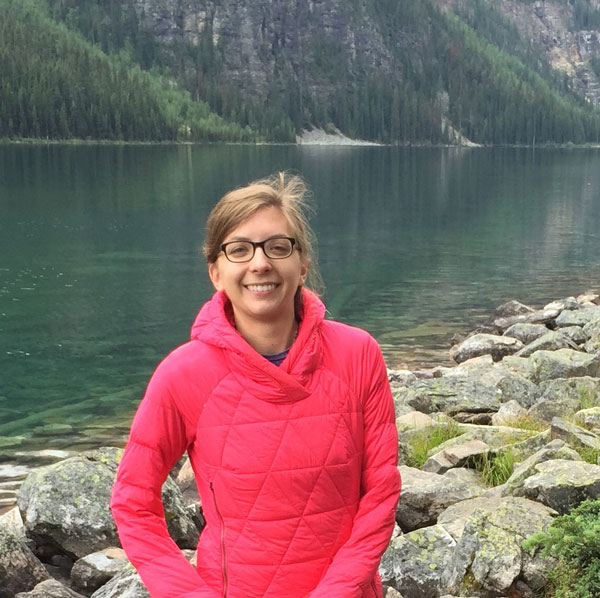
Elizabeth Spriggs
2017-2019 Putnam Fellow
Elizabeth Spriggs is an evolutionary biologist with a passion for plant conservation. Her research focused on the chestnuts and ashes (Castanea and Fraxinus) – iconic, but severely threatened, North American trees. Using phylogeography and genomics, she examined genetic diversity and population structure in relation to disease with an eye towards identifying individuals of conservation value. Currently, Beth is as a data scientist at Amazon Robotics.
- Spriggs EL*, Fertakos ME. 2021. Evolution of Castanea in North America: restriction-site-associated DNA sequencing and ecological modeling reveal a history of radiation, range shifts, and disease. American Journal of Botany 108: 1692-704. Abstract
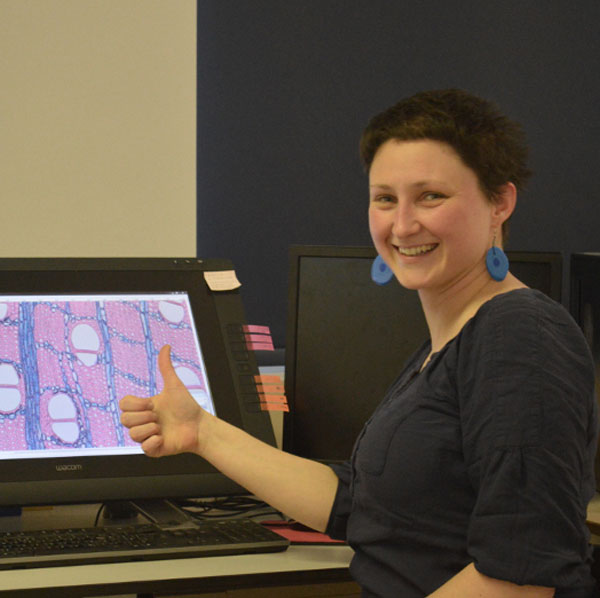
Kasia Zieminska
2016-2018 Putnam Fellow
Kasia Zieminska aims to understand how tree anatomy impacts function. By focusing on diverse species in the Arboretum’s living collections, she will examine the relationship between diversity in anatomical structure and water storage mechanisms and how this relationship influences plant biodiversity and ecological strategies. Kasia is a research fellow at Western Sydney University, Australia.
- Ziemińska K*. 2023. The role of imperforate tracheary elements and narrow vessels in wood capacitance of angiosperm trees. IAWA Journal 1(aop):1–14. Abstract
- Ziemińska K*, Rosa E, Gleason SM, Holbrook NM. Wood day capacitance is related to water content, wood density, and anatomy across 30 temperate tree species. Plant Cell Environ. 43: 3048– 3067.
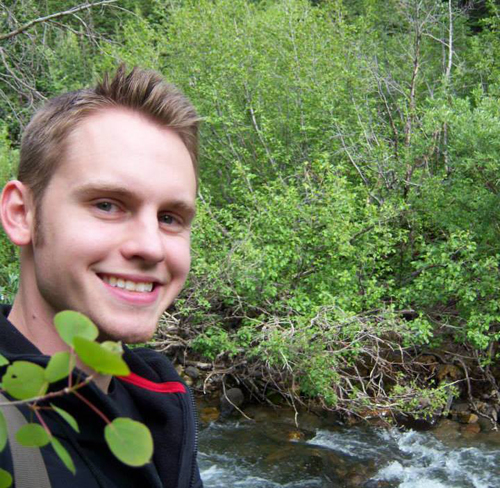
Chase Mason
2015-2016 Putnam Fellow
The research of Chase Mason is focused on the evolution of leaf physical and chemical defenses in relation to the leaf economics spectrum (LES), habit, and species’ source climate across woody genera. LES relates the initial investment of carbon during leaf development with the net carbon gain of that leaf. Chase is an assistant professor at the University of British Columbia, Okanagan.
- De La Pascua DR, Smith‐Winterscheidt C, Dowell JA, Goolsby EW, Mason CM*. 2020. Evolutionary trade‐offs in the chemical defense of floral and fruit tissues across genus Cornus. Appl Plant Sci. 107(9):1260–73.
- Mason CM*, LaScaleia MC, De La Pascua DR, Monroe JG, Goolsby EW. 2020. Learning from dynamic traits: Seasonal shifts yield insights into ecophysiological trade-offs across scales from macroevolutionary to intraindividual. Int J Plant Sci. 181: 88-102.
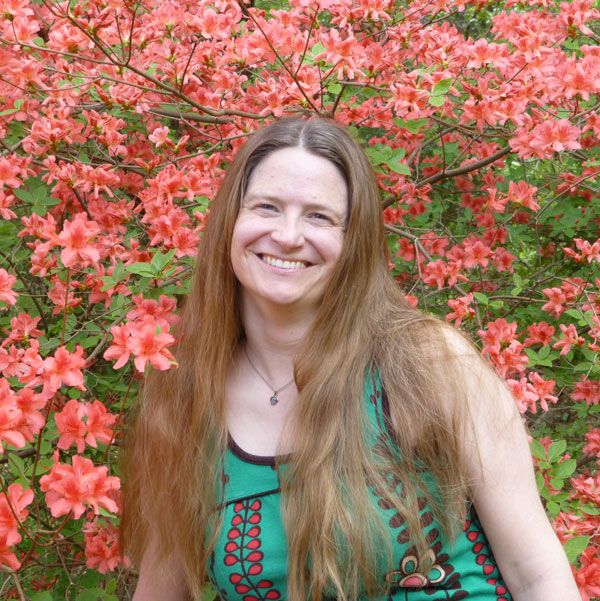
Jessica Savage
2014-2016 Putnam Fellow
Jessica Savage is interested in understanding how seasonal changes in vascular activity influence flowering and carbon allocation. Specifically she compared xylem and phloem anatomy, physiology and function in precocious flowering species (those that flower before the leaves emerge) with related species that flower later in the season. Jessica is an associate professor at the University of Minnesota, Duluth.
- Savage JA*. 2019. A temporal shift in resource allocation facilitates flowering before leaf out and spring vessel maturation in precocious species. American Journal of Botany 106(1):113–22.
- Savage JA*, Beecher SD, Clerx L, Gersony JT, Knoblauch J, Losada JM, Jensen KH, Knoblauch M, Holbrook NM. 2017. Maintenance of carbohydrate transport in tall trees. Nature Plants 3: 965-972

Ailene Ettinger
2014 Putnam Fellow
Ailene Ettinger focused on predicting the response and sensitivity of plants to a changing climate. By examining diverse trees growing in a common environment, she can identify functional traits that are important for success outside their historical conditions. Ailene is currently a quantitative ecologist at The Nature Conservancy.
- Wolkovich EM, Chamberlain CJ, Buonaiuto DM, Ettinger AK, Morales-Castilla I. 2022. Integrating experiments to predict interactive cue effects on spring phenology with warming. New Phytologist 235: 1719-1728. Abstract
- Ettinger AK*, Buonaiuto DM, Chamberlain CJ, Morales-Castilla I, Wolkovich EM. 2021. Spatial and temporal shifts in photoperiod with climate change. New Phytologist 230: 462-474. Abstract
- Ettinger AK*, Chamberlain CJ, Morales-Castilla I, Buonaiuto DM, Flynn DFB, Savas T, Samaha JA, Wolkovich EM. 2020. Winter temperatures predominate in spring phenological responses to warming. Nature Climate Change.
- Ettinger AK*, Gee S, Wolkovich EM. Phenological sequences: how early-season events define those that follow. American Journal of Botany. 105: 1-1010(12):1137–42.

Guangyou Hao
2012-2014 Putnam Fellow
Utilizing the conifer collection, Guangyou Hao studied the differences in the structural, physiological, and mechanical properties of water transport and xylem hydraulics between evergreen and deciduous conifers (which shed their leaves). Guangyou is a professor at the Institute of Applied Ecology at the Chinese Academy of Sciences.
- Hao G-Y*, Lucero ME, Sanderson SC, Zacharias EH, Holbrook NM. 2013. Polyploidy enhances the occupation of heterogeneous environments through hydraulic related trade-offs in Atriplex canescens (Chenopodiaceae). New Phytologist 197: 970–8.
- Hao G-Y*, Wang A-Y, Sack L, Goldstein G, Cao K-F. 2013. Is hemiepiphytism an adaptation to high irradiance? Testing seedling responses to light levels and drought in hemiepiphytic and non-hemiepiphytic Ficus. Physiologia Plantarum 148: 74-86.
- Hao G-Y*, Wheeler JK, Holbrook NM, Goldstein G. 2013. Investigating xylem embolism formation, refilling and water storage in tree trunks using frequency domain reflectometry. Journal of Experimental Botany 64: 2321-2332.

Cary Pirone
2011-2013 Putnam Fellow
The research interests of Cary Pirone lay primarily in understanding how chemical signals mediate biological phenomena. As a Putnam Fellow, she explored the complexities of pollination drops (ovular secretions) of several conifer species and ginkgo using biochemical and anatomical approaches. Cary is a scientist at the US Food and Drug Administration.
- Prior N, Little SA, Boyes I, Griffith P, Husby C, Pirone-Davies C*, Stevenson DW, Tomlinson PB, von Aderkas P. 2019. Complex reproductive secretions occur in all extant gymnosperm lineages: a proteomic survey of gymnosperm pollination drops. Plant Reprod. 32: 153-166.
- Nepi M, Little S, Guarnieri M, Nocentini D, Prior N, Gill J, Barry Tomlinson P, Ickert-Bond SM, Pirone C*, Pacini E, von Aderkas P. 2017. Phylogenetic and functional signals in gymnosperm ovular secretions. Annals of Botany 120: 923-936.
- Pirone-Davies C*, Prior N, Von Aderkas P, Smith D, Hardie D, Friedman WE, Mathews S. 2016. Insights from the pollination drop proteome and the ovule transcriptome of Cephalotaxus at the time of pollination drop production. Annuals of Botany 117: 973-984.
- Prior N, Little SA, Pirone C*, Gill JE, Smith D, Han J, Hardie D, O’Leary SJB, Wagner RE, Cross T, Coulter A, Borchers C, Olafson RW, and von Aderkas P. 2013. Application of proteomics to the study of pollination drops. Applications in Plant Science 1: 1300008.
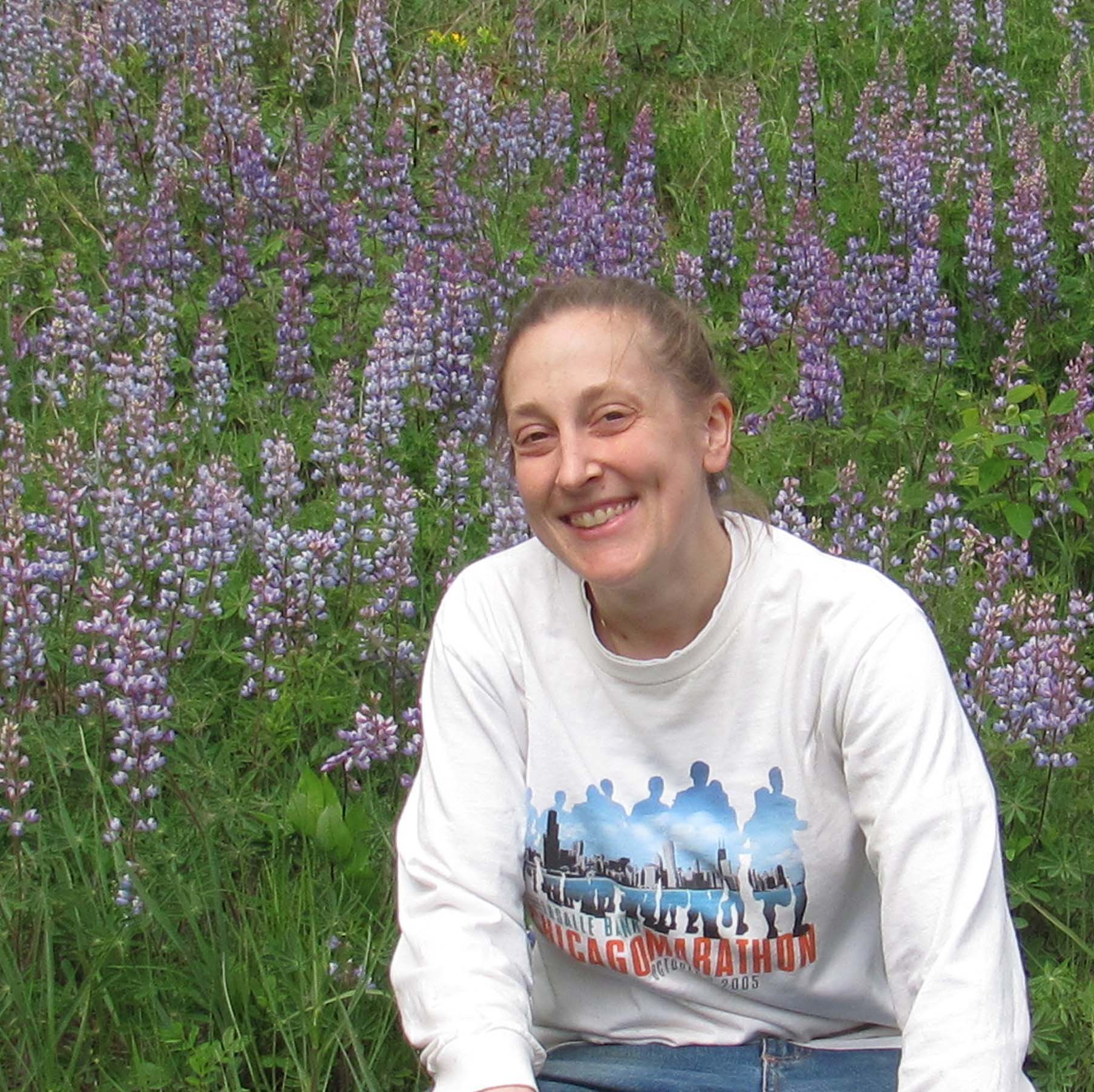
Stacey Leicht Young
2013 Putnam Fellow
The research of Stacey Leicht Young examined the ecological and reproductive strategies required for lianas (woody vines) to be successful in its environment utilizing the Arboretum’s Leventritt Shrub and Vine Garden. Stacey is a project scientist at RK&K (Rummel, Klepper & Kahl, LLP) in Baltimore, Maryland.
- Leicht-Young SA*, Healy R, Del Tredici P. 2016. Observation of mycorrhizal colonization in roots in natural populations of Celastrus orbiculatus Thunb. The Journal of the Torrey Botanical Society 143: 322-324.
Brian Morgan
2010-2011 Putnam Fellow
Brian Morgan focuses on the use of geographic information systems (GIS) technology as a management and decision-making tool for public gardens. Brian created a GIS for the Arnold Arboretum based on the ArcGIS Public Garden Data Model, and a web-based application for performing collections research. Brian is the executive director of the Alliance for Public Gardens GIS.
Abby Hird
2008-2010 Putnam Fellow
Conservation of threatened plant species is of great interest to Abby Hird. As the conservation director for Botanic Gardens Conservation International–United States (BGCI-US), she collaborates with the Arnold Arboretum to implement the recommendations of the North American Collections Assessment. The goal is to preserve threatened taxa and increase genetic diversity by preserving wild-collected plants at the Arboretum and other botanical gardens.
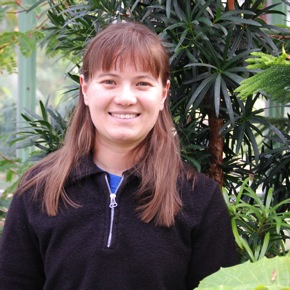
Jennifer Winther
2007-2009 Putnam Fellow
As a Putnam Fellow, Jennifer Winther established a research program on the developmental genetic mechanisms underlying male and female identity in the reproductive structures (cones) of gymnosperms. Now an assistant professor in biology at Grand Valley State University, Michigan, she continues this research with her undergraduate students.
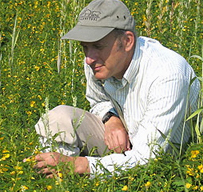
Richard Primack
2006-2007 Putnam Fellow
Richard Primack is a professor of biology at Boston University. The Putnam Fellowship enabled Richard to evaluate the effects of climate change on plants and animals at the Arnold Arboretum and Concord. It also fostered an ongoing collaboration with Harvard Professor Chuck Davis to focus on how the evolutionary relationships between species play a role in adaptation to climate changes.
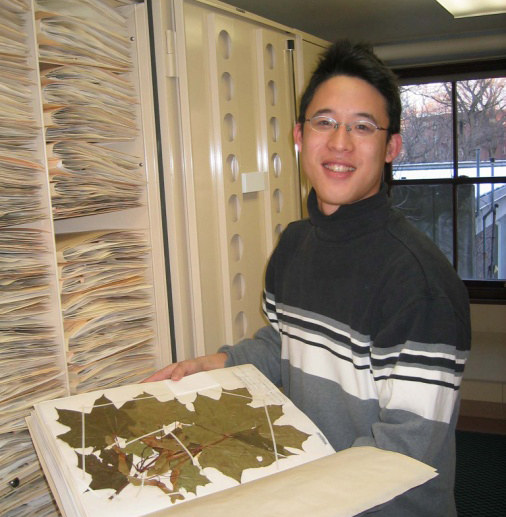
Eric Hsu
2005-2006 Putnam Fellow
As a Putnam Fellow, Eric Hsu investigated the Arboretum’s Acer (maple) and Stewartia collections to build a case for their designation as national collections by the American Public Garden Association. Eric is currently the Plant Information Coordinator at Chanticleer Gardens.
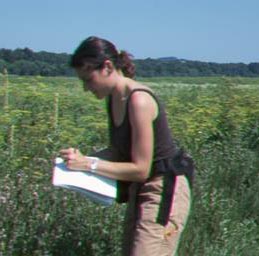
Nina Theis
2004-2005 Putnam Fellow
Nina Theis, in collaboration with Arboretum taxonomist Jianhua Li and Michael Donoghue at Yale, used molecular phylogenetics to investigate the evolution of fragrance in Lonicera (honeysuckle) and Syringa (lilac) as a Putnam Fellow. Nina continues to study the ecology of fragrance production in her current role a professor of biology at Elms College in Chicopee, Massachusetts.
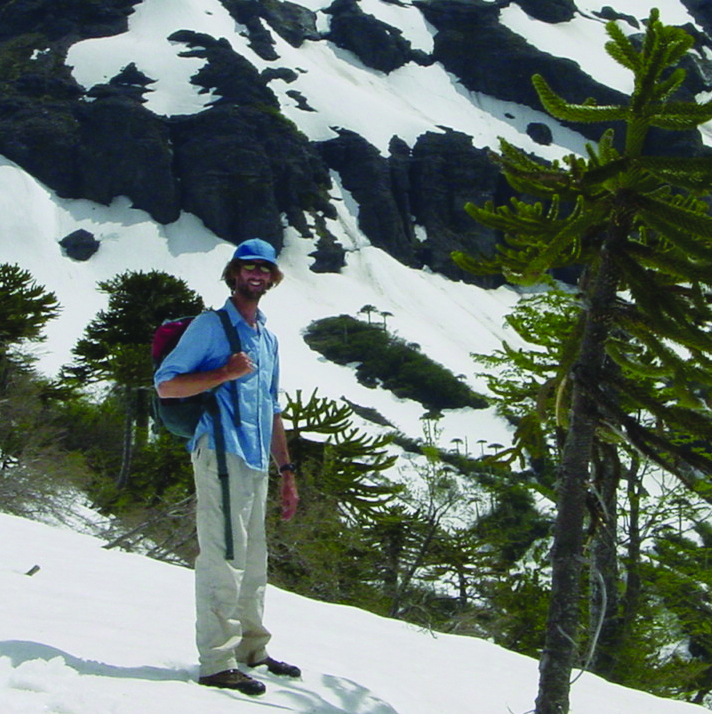
Tim Brodribb
2005 Putnam Fellow
Tim Brodribb studied the Arboretum’s extensive conifer collection for his Putnam Fellowship, comparing the evolutionary trends of leaf structure and function for Southern and Northern Hemisphere species. Currently, he is a professor at the University of Tasmania, Australia, investigating the deep time evolution of veins and photosynthesis in leaves.
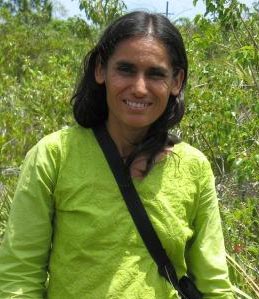
Sonali Saha
2002-2004 Putnam Fellow
As Putnam Fellow, Sonali Saha collaborated with Harvard Professor Noel Michele Holbrook in investigations of the physiological properties of bamboo species. She is currently a senior biologist at the Institute for Regional Conservation in Miami and an adjunct professor of biology at Miami Dade College.

Lawren Sack
2002-2003 Putnam Fellow
Lawren Sack studied hydraulic conductance and structure of tree leaves as a Putnam Fellow. Now he is a professor of plant physiology and ecology at UCLA, and a faculty affiliate for UCLA’s Center for Tropical Research. His research continues to focus on leaf and whole plant water transport, as well as the ecology and physiology of plant species coexistence, the evolution of diversity of leaves, forest dynamics and ecohydrology, and conservation physiology.
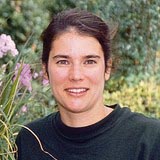
Sonia Uyterhoeven
2002-2003 Putnam Fellow
Sonia Uyterhoeven is the head of horticulture at Greenwood Gardens in New Jersey. As a Putnam Fellow, she evaluated

Michael Dosmann
2000-2002 Putnam Fellow
Keeper of Living Collections
Arnold Arboretum of Harvard University
As a Putnam Fellow, Michael Dosmann studied the taxonomy of katsura trees (Cercidiphyllum), the reproductive biology of a rare monkshood, the efficacy of plant exploration efforts, and helped coordinate plant selection and sequence for the Leventritt Shrub and Vine Garden. Michael returned to the Arboretum in 2007 and is now the keeper of living collections where he guides the Arboretum’s stewardship and development of its collection of temperate woody species. His work explores new strategies and tactics aimed at improving collections management and enhancing the use of Arboretum collections for research. Additionally, he conducts research on the physiological ecology of woody plants and participates in floristic efforts through domestic and foreign plant exploration.

Youngdong Kim
2001-2002 Putnam Fellow
Youngdong Kim was awarded a Putnam Fellowship to reconstruct the phylogeny of the genus Berberis (barberry) to resolve the evolutionary relationships among its Asian and North American species. Youngdong is currently a professor of biology at Hallym University in South Korea.
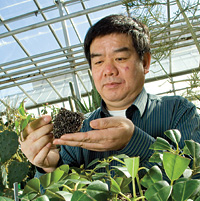
Donglin Zhang
2001 Putnam Fellow
Putnam Fellow Donglin Zhang employed morphological and genetic approaches to study the origins of tree lilacs and a new Chamaecyparis (Atlantic whitecedar) cultivar, ‘Quiana’. He is a professor at the University of Georgia. His research focuses on conservation and the utilization of germplasm of ornamental plants.

Jianhua Li
1998-1999 Putnam Fellow
As Putnam Fellow, Jianhua Li studied the phylogenetic relationships of witch hazels (Hamamelis) and studied the classification of tree lilacs (Syringa) with Arboretum propagator Jack Alexander. After his fellowship, Jianhua served a senior research scientist at the Arboretum until 2009. Jianhua is a professor at Hope College.
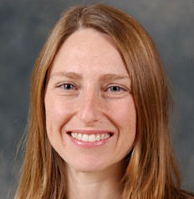
Katherine Gould Mathews
1997-1998 Putnam Fellow
Katherine Gould Mathews first worked with Arnold Arboretum scientists as a curatorial assistant at the Harvard University Herbaria. As a Fellow, she studied the phylogenetics of the eastern North American/eastern Asian disjunct genus Triosteum (Caprifoliaceae). Katherine is currently an associate professor of biology at Western Carolina University, where her research focuses on the evolutionary history of southern Appalachian plant species.
Keiko Satoh
1997-1998 Putnam Fellow
During her appointment as a Putnam Fellow, Keiko Satoh worked on the E. H. Wilson archival collection, particularly researching his plant introductions and their distribution by the Arboretum. Her focus on the distribution of Metasequoia (dawn redwood) culminated in an article for Arnoldia on the global travels of the plant initiated by the Arboretum in the late 1940s.
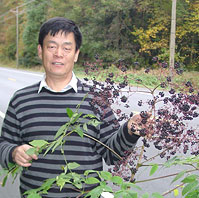
Jinshuang Ma
1995-1996 Putnam Fellow
As Putnam Fellow, Jinshuang Ma studied the natural history and worldwide cultivation of Metasquoia glyptostroboides (dawn redwood), a species originally distributed worldwide by the Arnold Arboretum. Since 2001, Jinshuang has worked as a research taxonomist at the Brooklyn Botanic Garden. His research career has centered on conservation biology, the flora of Asia, and taxonomic advances.
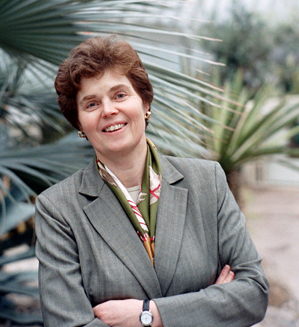
Kim Tripp
1994-1996 Putnam Fellow
As a Putnam Fellow, Kim Tripp used the living collections to examine the physiology of plant adaptability and propagation in a range of exotic and native taxa, including established historic accessions, newly collected specimens, and rarely cultivated species. After serving as director at the New York Botanical Garden, she turned to a new career in osteopathic medicine.
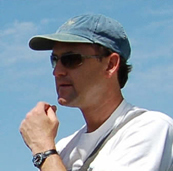
David Ackerly
1994 Putnam Fellow
David Ackerly initiated his postdoctoral work on the evolution of the genus Acer (maple). As a professor at the University of California, Berkeley, David is still utilizing data he collected during his Putnam Fellowship and including the maples in new studies on the evolution of woody plants. His research focuses on trait-based community ecology, niche and trait evolution, and climate change.

Jun Wen
1991-1992 Putnam Fellow
As a Putnam Fellow, Jun Wen utilized cutting-edge analyses and newly developed molecular tools to examine the biogeographic distribution of plants in eastern Asia and eastern North America. As a research scientist and chair of botany at the Smithsonian Institution, her research program has successfully incorporated classical field explorations, modern DNA molecular tools, and advanced theories of phylogenetics and biogeography.

Michael Dirr
1991 Putnam Fellow
Michael Dirr, currently Professor Emeritus at the University of Georgia, came to the Arboretum as a Putnam Fellow during a sabbatical from his work as a faculty member of the University of Georgia. Of the fellowship, Michael states that it “was a springboard to the worldwide panoply of woody plants. I spent my days in the remarkable living collection, a herbarium that blankets the world, and a library where a researcher’s queries are always answered. What more could a plantsman ask?”
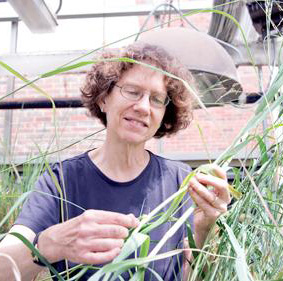
Elizabeth Kellogg
1989-1990 Putnam Fellow
The Putnam Fellowship gave Elizabeth Kellogg the opportunity to learn and apply new genetic techniques to solve contemporary research questions. Currently, she is a Robert E. King Distinguished Investigator of the Donald Danforth Plant Science Center, a member of the National Academy of Sciences, and an Associate of the Arnold Arboretum of Harvard University. Her research includes explorations of the molecular machinery that control plant shape and structure and investigations of plant morphology and variation exhibited by closely related plants.

Richard Schulhof
1989-1990 Putnam Fellow
As a Fellow, Richard Schulhof developed the first comprehensive plan for the Arboretum collections and landscape, and was hired thereafter as the Arboretum’s director of public programs. After serving as director of Descanso Gardens in his native Southern California, Richard was lured back to the Arboretum as the deputy director. Recently retired, Richard served as the chief executive officer at Los Angeles County Arboretum and Botanic Garden between 2009-2023.
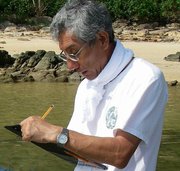
Tokushiro Takaso
1988-1990 Putnam Fellow
Tokushiro Takaso utilized the Arboretum’s vast collection of conifers to study pollination mechanisms as a Putnam Fellow. He is a scientist in the Tropical Biosphere Research Center at the University of the Ryukus, Japan.
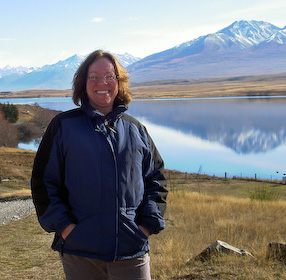
Jessica Gurevitch
1989 Putnam Fellow
To relate the complexity of leaf shape to ecological and evolutionary factors, Jessica Gurevitch, collected and analyzed a large number of maple leaves from the Arboretum’s living collections. The Putnam Fellowship gave her the freedom to explore new research directions toward statistical applications in plant population and community ecology. Jessica is a professor at the State University of New York in Stony Brook
Arboretum Award Recipients
Research at the Arboretum spans a diverse range of disciplines, from organismic and evolutionary biology, molecular and developmental biology, and plant physiology to studies in ecology, environment, and biodiversity. The Arboretum supports investigations in our world-renowned living collection, herbarium, library and archives, research laboratories, and in Asia by awarding fellowships and awards to students, post-doctoral researchers, and professionals of the biological and horticultural sciences. Meet our awardees below.
Select Years
Select Awards
2024 Awardees

Alaina Bisson
2024 Sinnott Award
Research Assistant, OEB, Taylor Lab, Harvard University

Oluwatobi Oso
2024 Cunin-Sigal Award
PhD Candidate, Yale University

Promish Adhikari
2024 Ashton Award
Undergraduate Student, Tribhuwan University, Nepal

Rishiddh Jhaveri
2024 Ashton Award
PhD Candidate, The Centre for Cellular & Molecular Biology, India

Vidya Vuruputoor
2024 Sargent Award
PhD Candidate, University of Connecticut
2023 Awardees

Ashanti Shih
2023 Sinnott Award
Assistant Professor, Vassar College
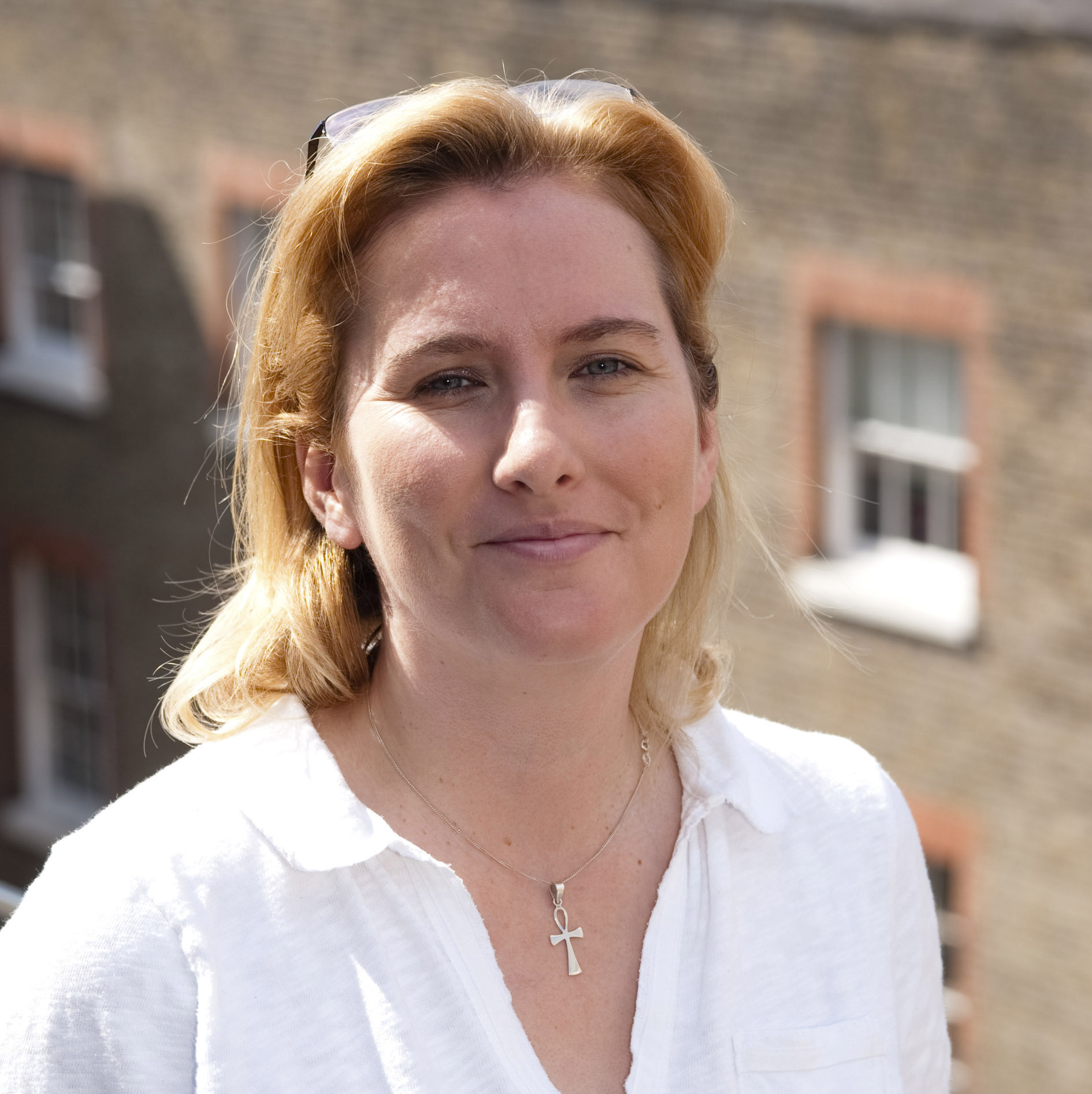
Christina Hourigan
2023 Cunin/Sigal Award
PhD Candidate, Royal Holloway University of London, and Royal Botanic Gardens, Kew

Jessica Savage
2014-2016 Putnam Fellow
2017 Sinnott Award
2023 Jewett Prize
Associate Professor, University of Minnesota, Duluth
Visiting Scholar, Arnold Arboretum of Harvard University
- Savage JA, Kiecker T, McMann N, Park D, Rothendler M, Mosher K. 2022. Leaf out time correlates with wood anatomy across large geographic scales and within local communities. New Phytologist 235: 953-64. Abstract
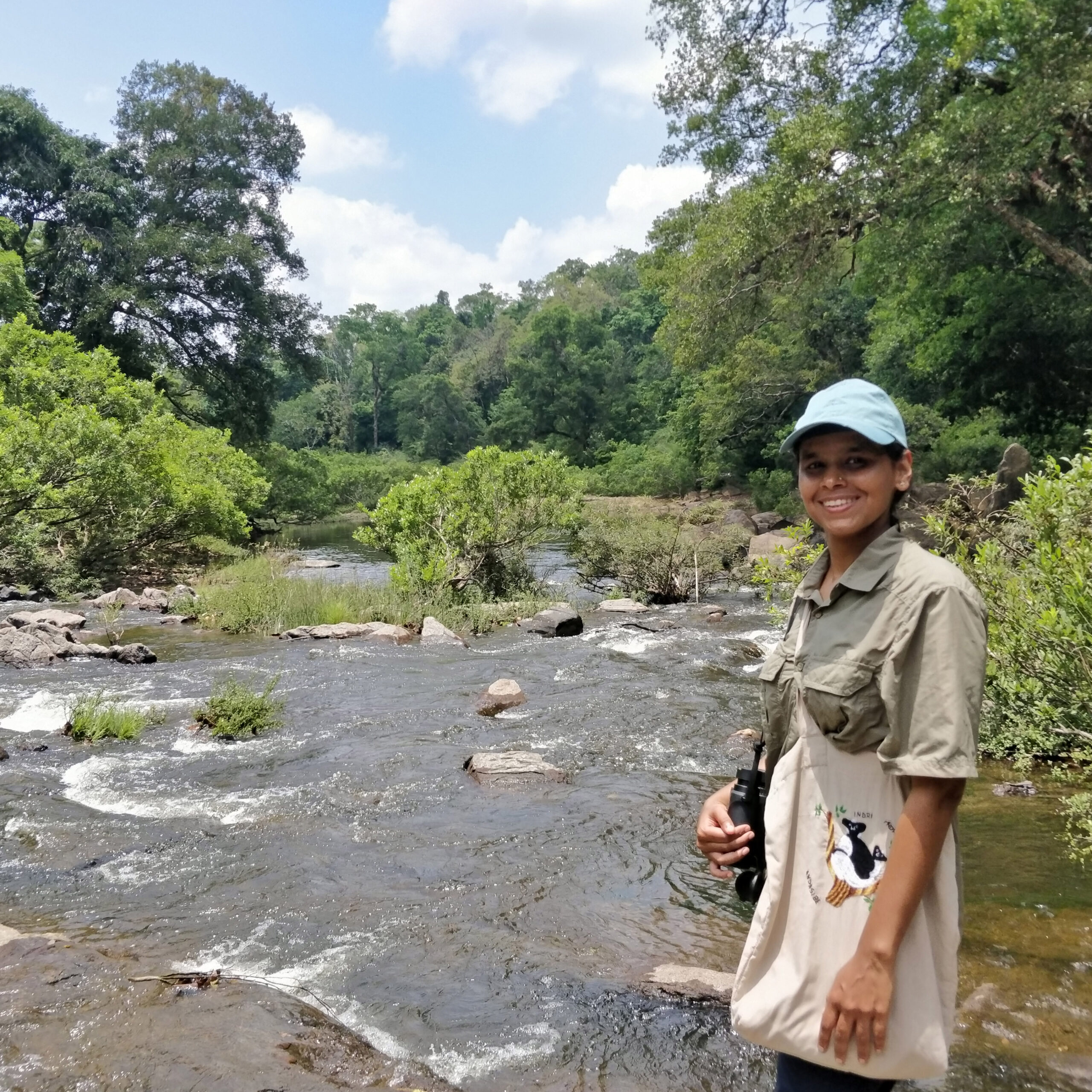
Sumashini Pagaldevatti
2023 Ashton Award
PhD Student, University of Illinois at Urbana-Champaign

Wyatt Oswald
2023 Sargent Award
Professor, Emerson College
2022 Awardees
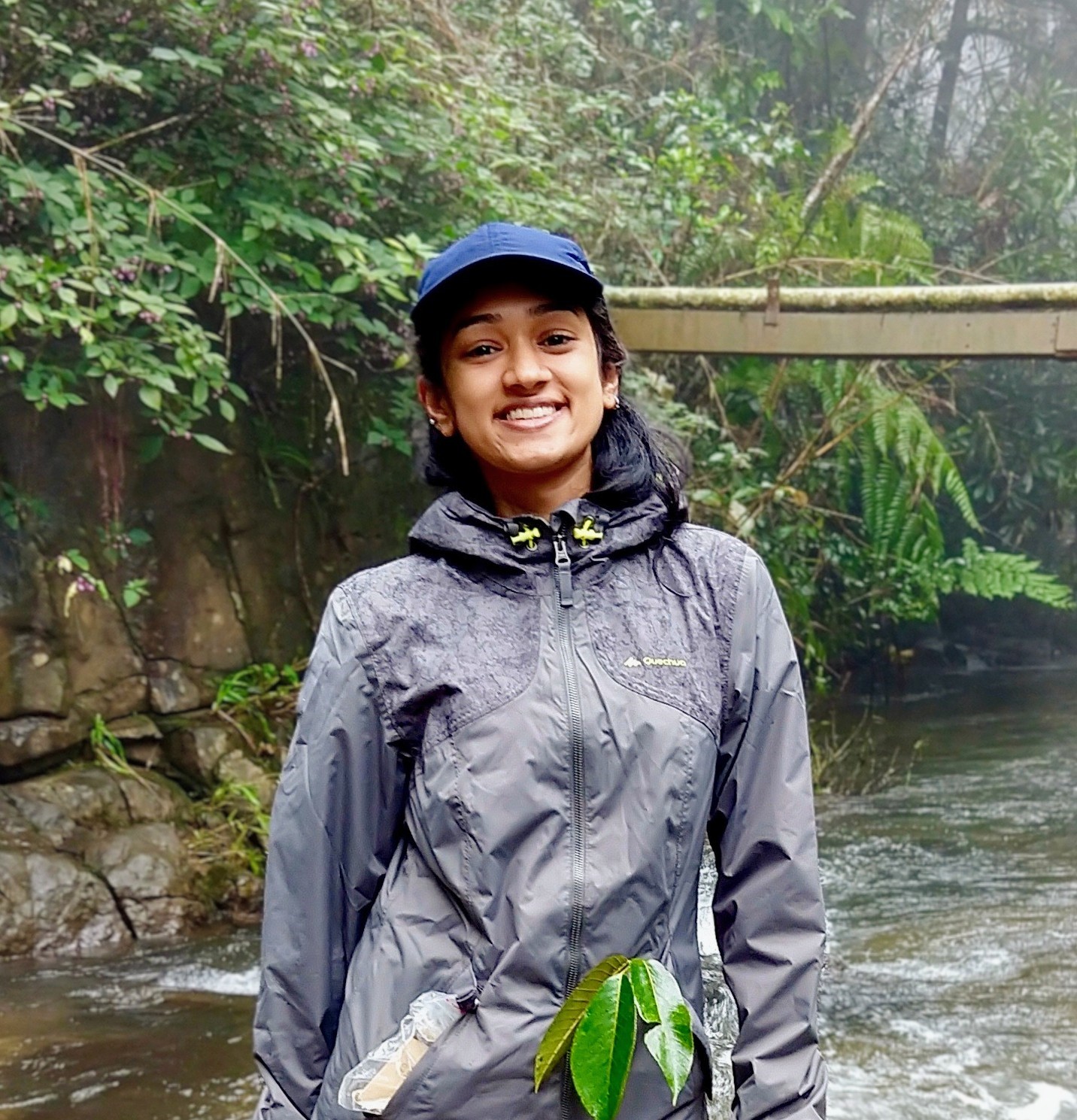
Aparna Krishnan
2022 Ashton Award
PhD Student, Nature Conservation Foundation, India
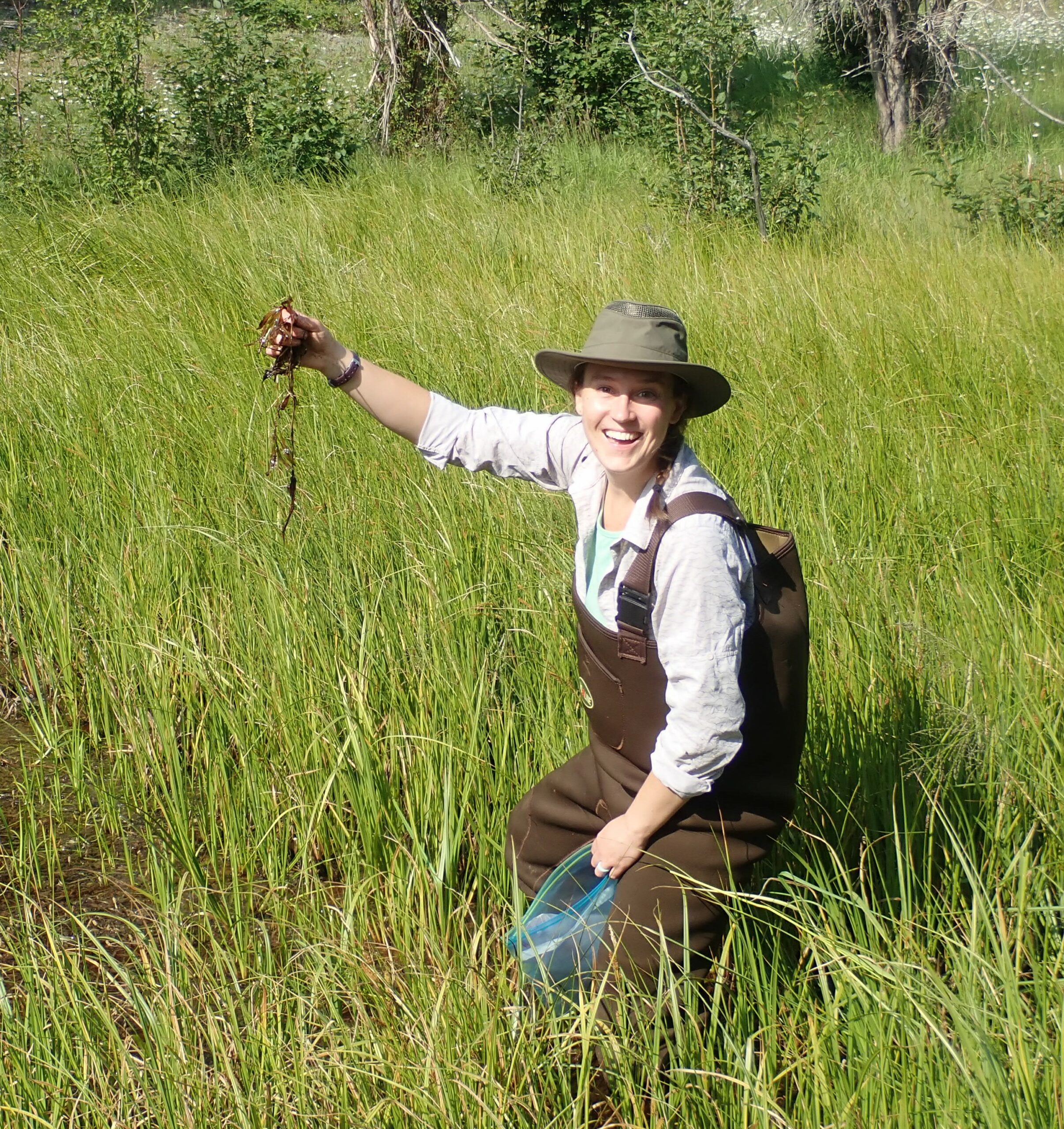
Audrey Spencer
2022 Deland Award
PhD Student, University of Colorado, Denver, Denver Botanic Gardens
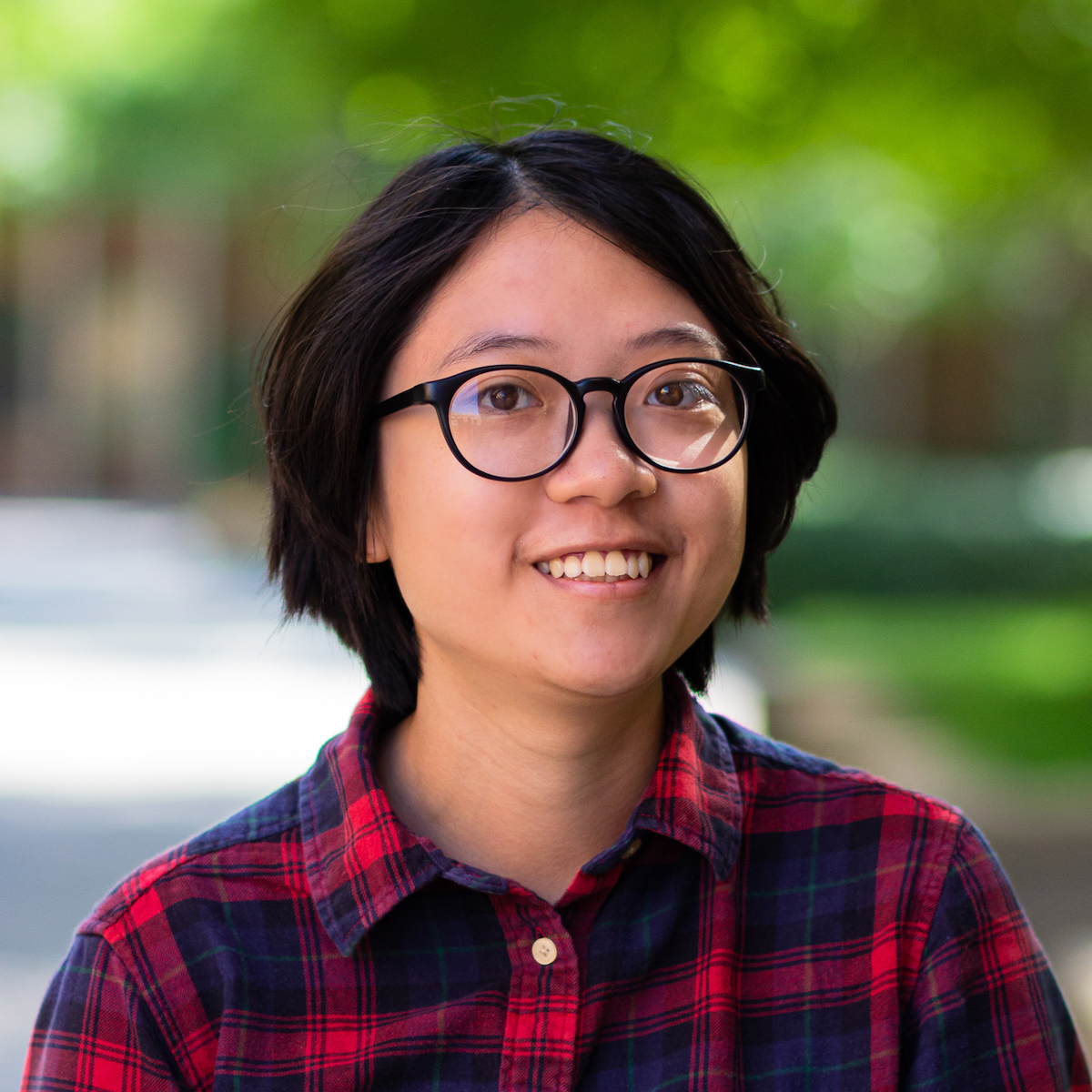
Chau Pham
2022 Ashton Award
PhD Student, University of Minnesota, Twin Cities

Christina DeJoseph
2022 Sinnott Award
Masters Student, Tufts University
Dustin Ray
2022 Sinnott Award
Postdoctoral Fellow, University of Minnesota, Duluth

Heather Gladfelter
2022 Sinnott Award
Postdoctoral Fellow, University of Georgia
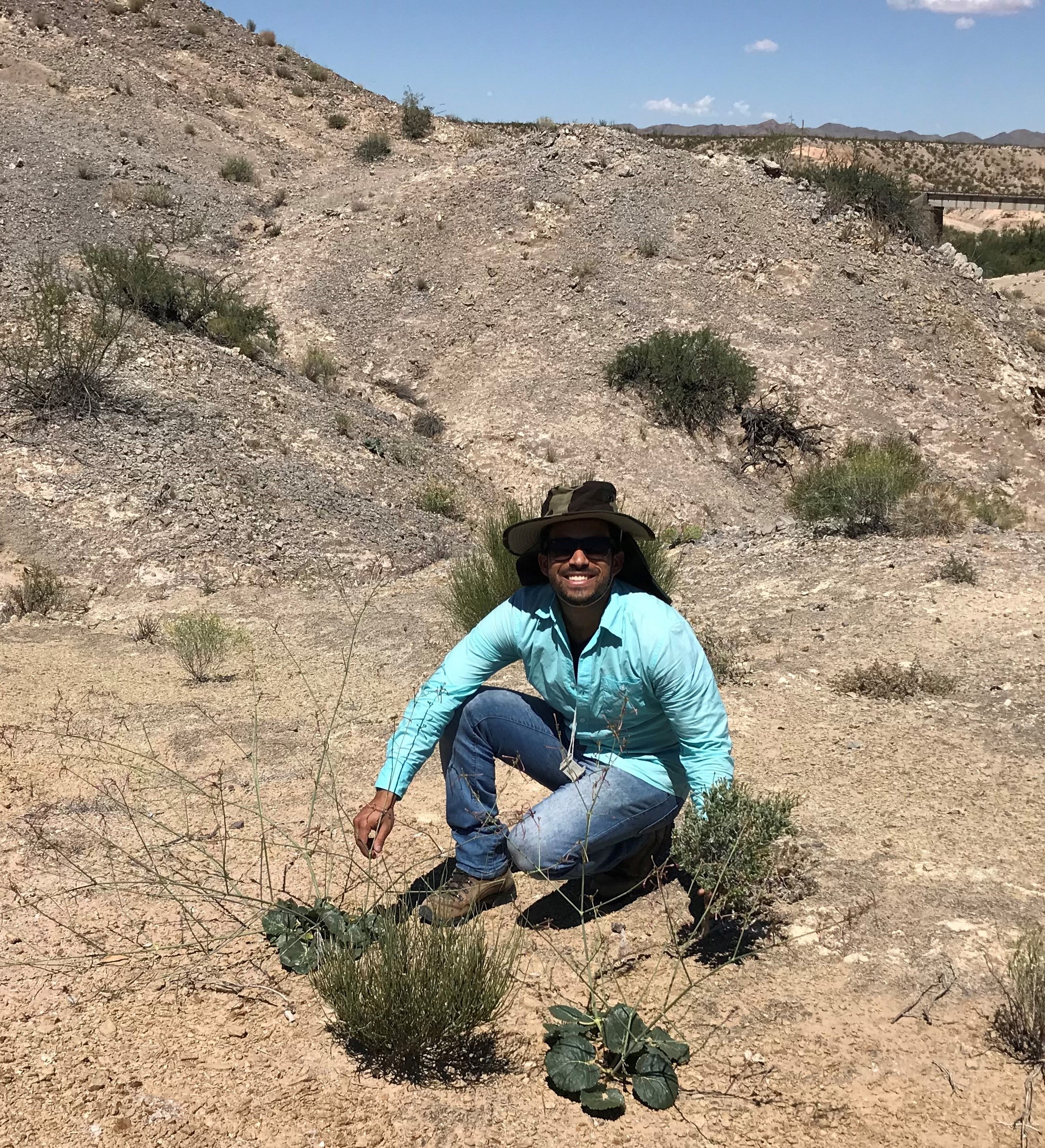
Israel Lopes da Cunha Neto
2022 Sargent Award
Postdoctoral Fellow, Cornell University
- Cunha Neto IL^, Hall BT, Lanba AR, Blosenski JD, Onyenedum JG. 2023. Laser ablation tomography (LATscan) as a new tool for anatomical studies of woody plants. New Phytologist 239(1):429–44. Abstract
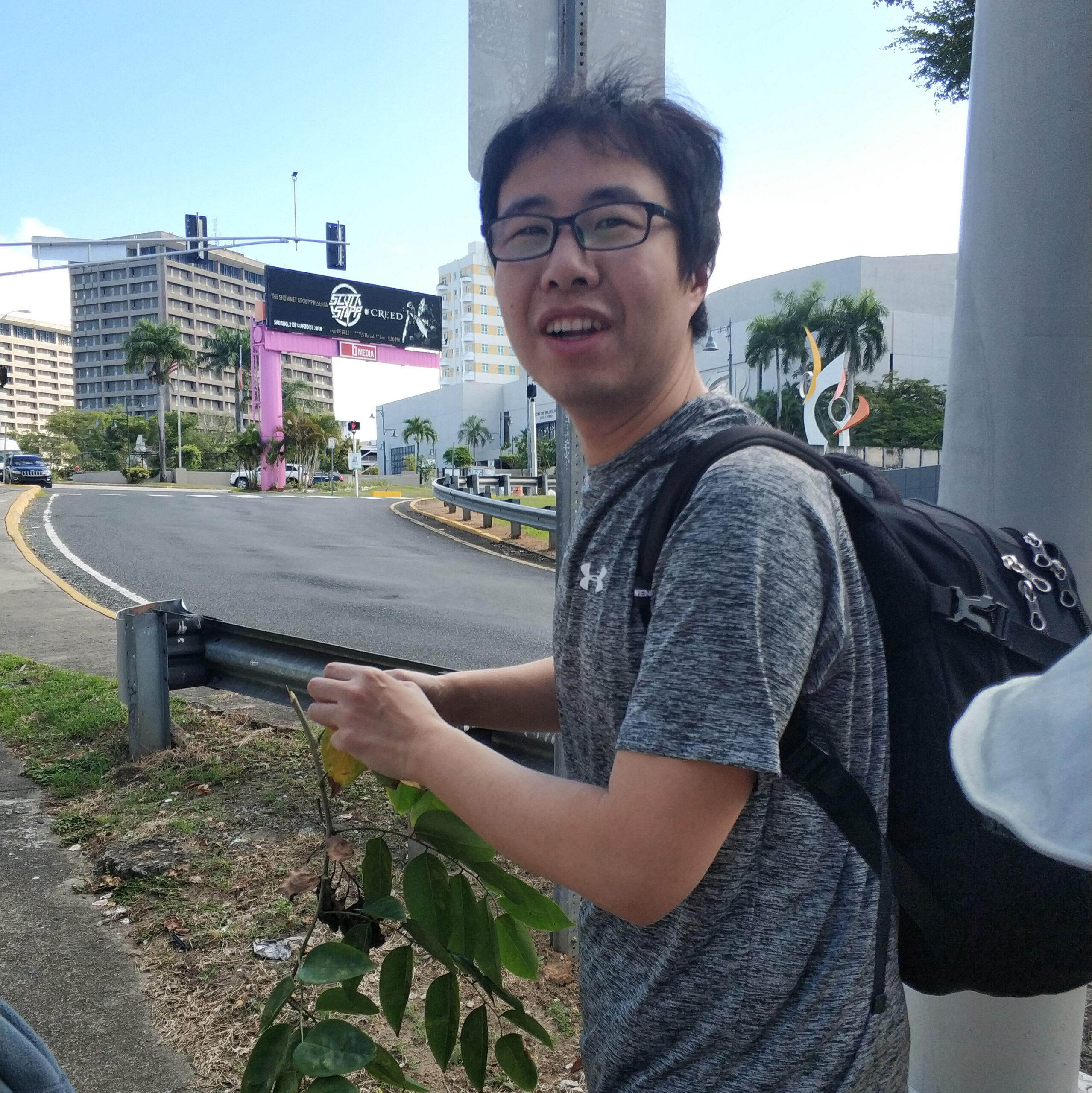
Lei Duan
2022 Hu Student/Postdoctoral Award
Faculty, South China Botanical Garden
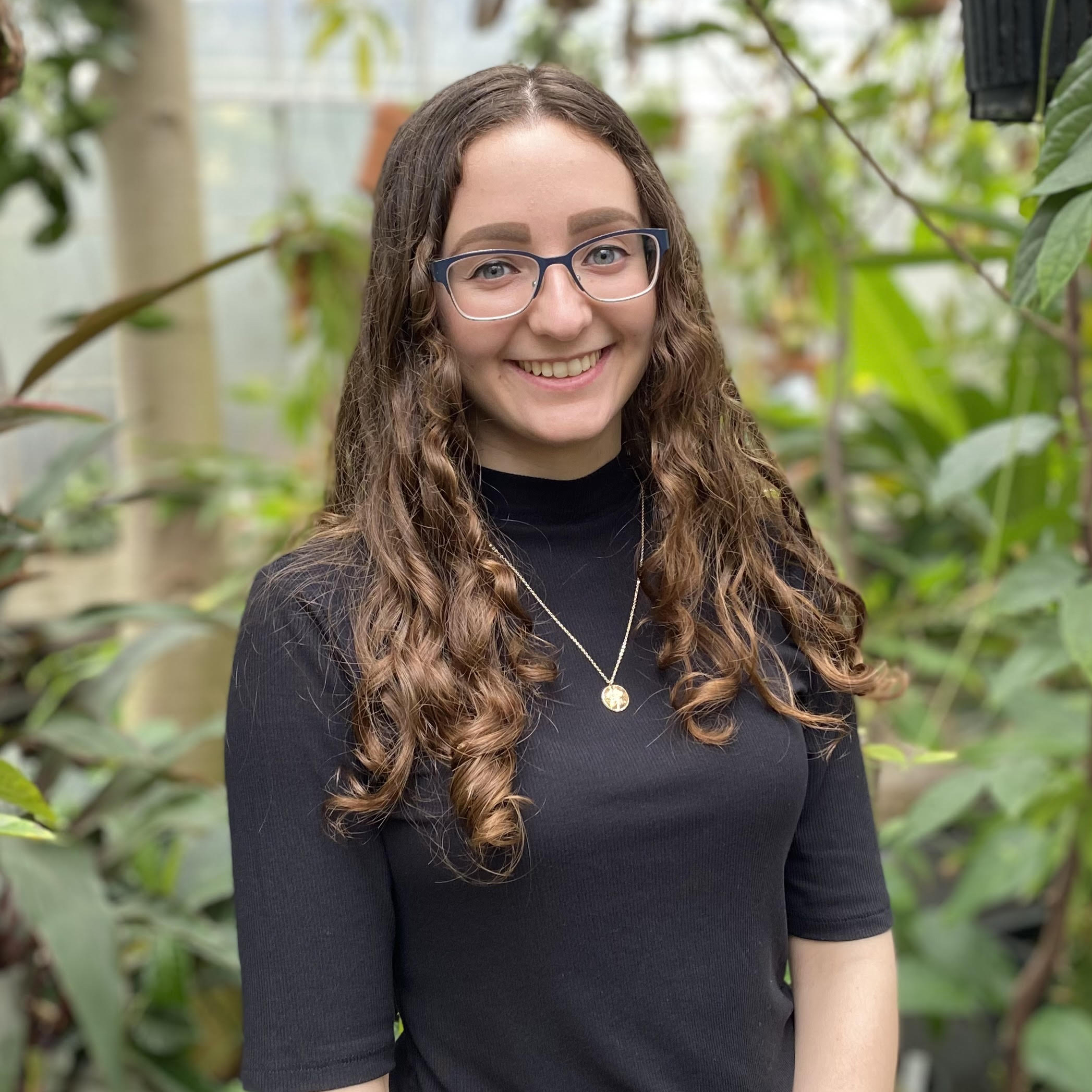
Lindsey Kollmer
2022 Cunin/Sigal Award
Undergraduate Student, University of Connecticut
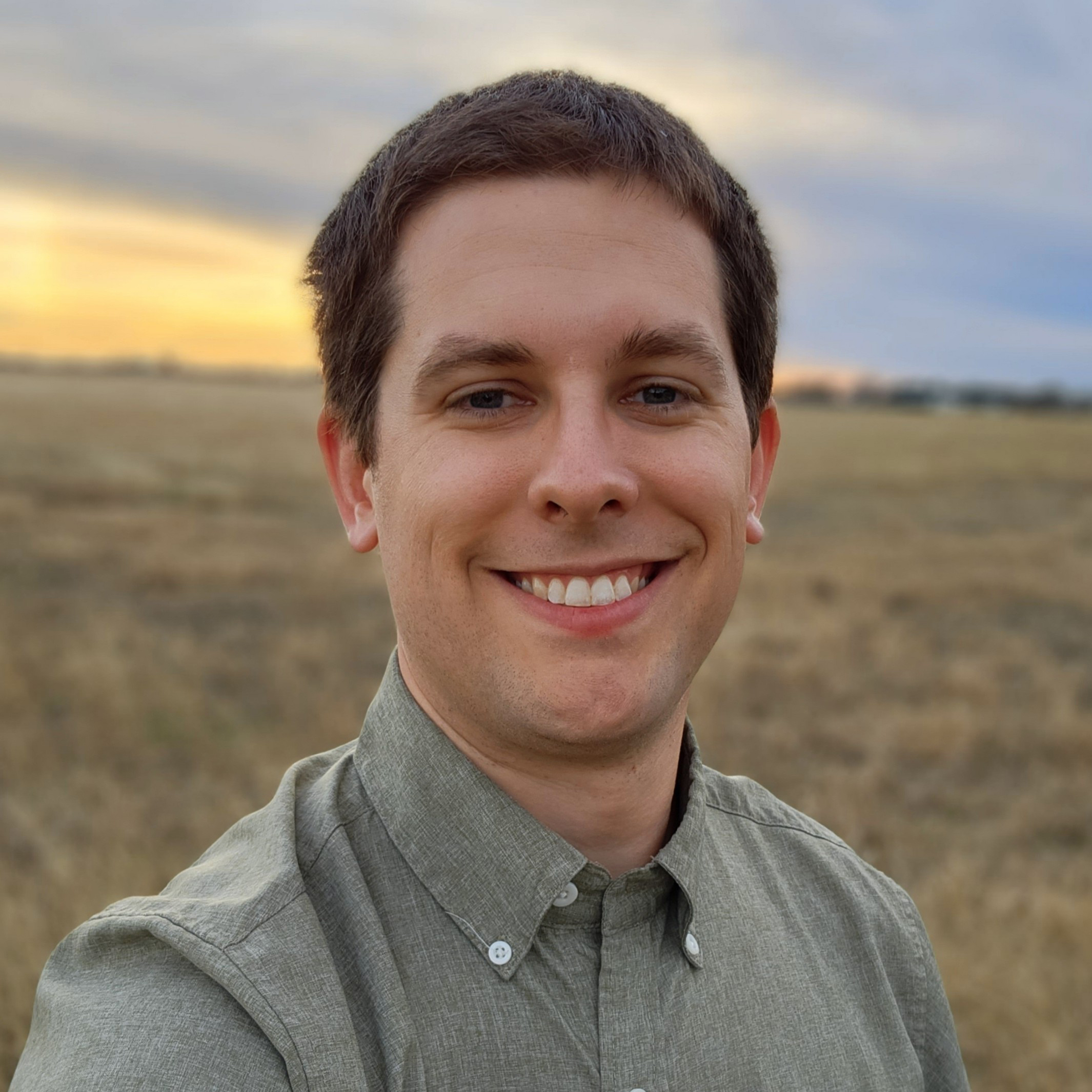
Warren Chatwin
2022 Jewett Prize
Research Scientist, USDA Agricultural Research Service
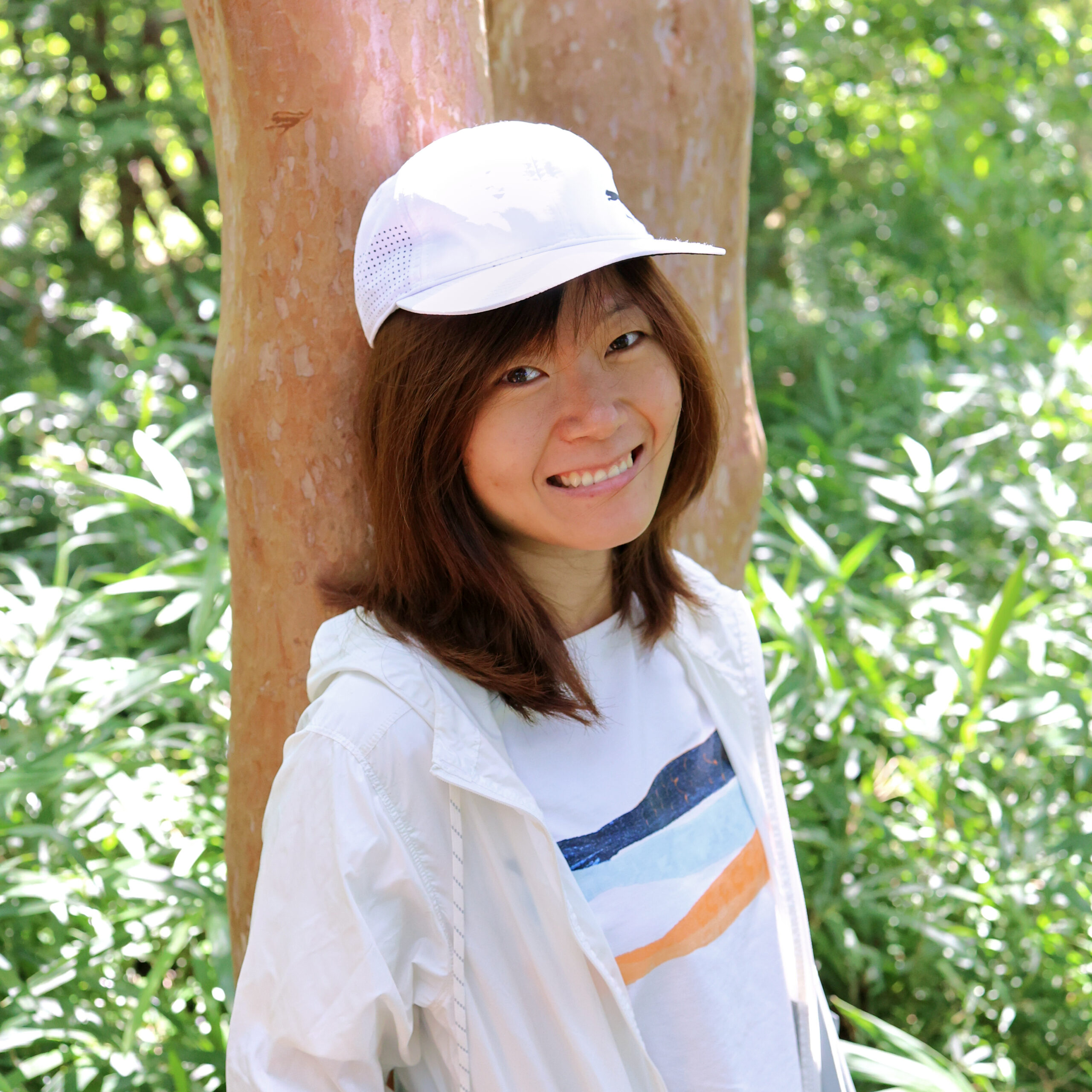
Yujing Yan
2022 Arnold Arboretum Genomics Initiative and Sequencing Award
HUH Fellow, Harvard University
2021 Awardees

Bruno Nevado
2021 Sargent Award
Principal Investigator, University of Lisbon, Portugal
John Kress
2021 Sargent Award
Research Scientist, Smithsonian Institution
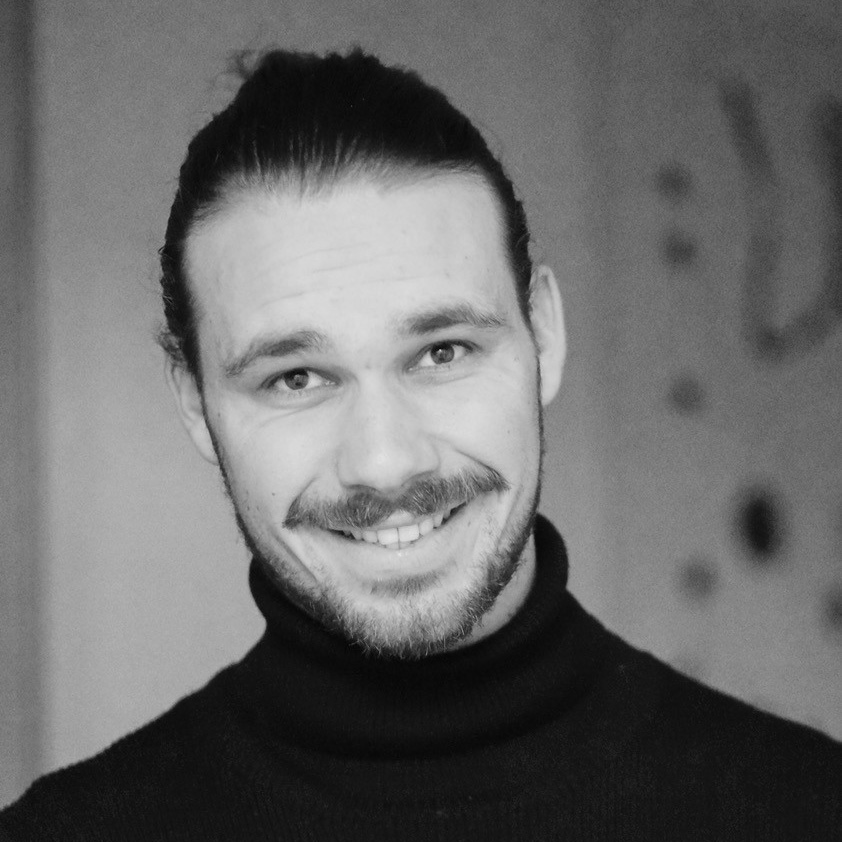
Jonas Frei
2021 Jewett Prize
Master’s Student, Zurich University of Applied Sciences, Switzerland

Susan McEvoy
2021 Arnold Arboretum Genomics Initiative and Sequencing Award
PhD Student, University of Connecticut
Acer macrophyllum genome
Susan will lead the effort to create a reference genome and epigenome for Acer macrophyllum (bigleaf maple). This project, together with the reference genomes, transcriptomes, and epigenomes developed using Arboretum accessions of A. saccharum, A. negundo, and A. griseum, will provide genomic resources that will benefit the entire scientific community and provide needed tools for the detailed analysis of the life and times of Acer at the genomic level.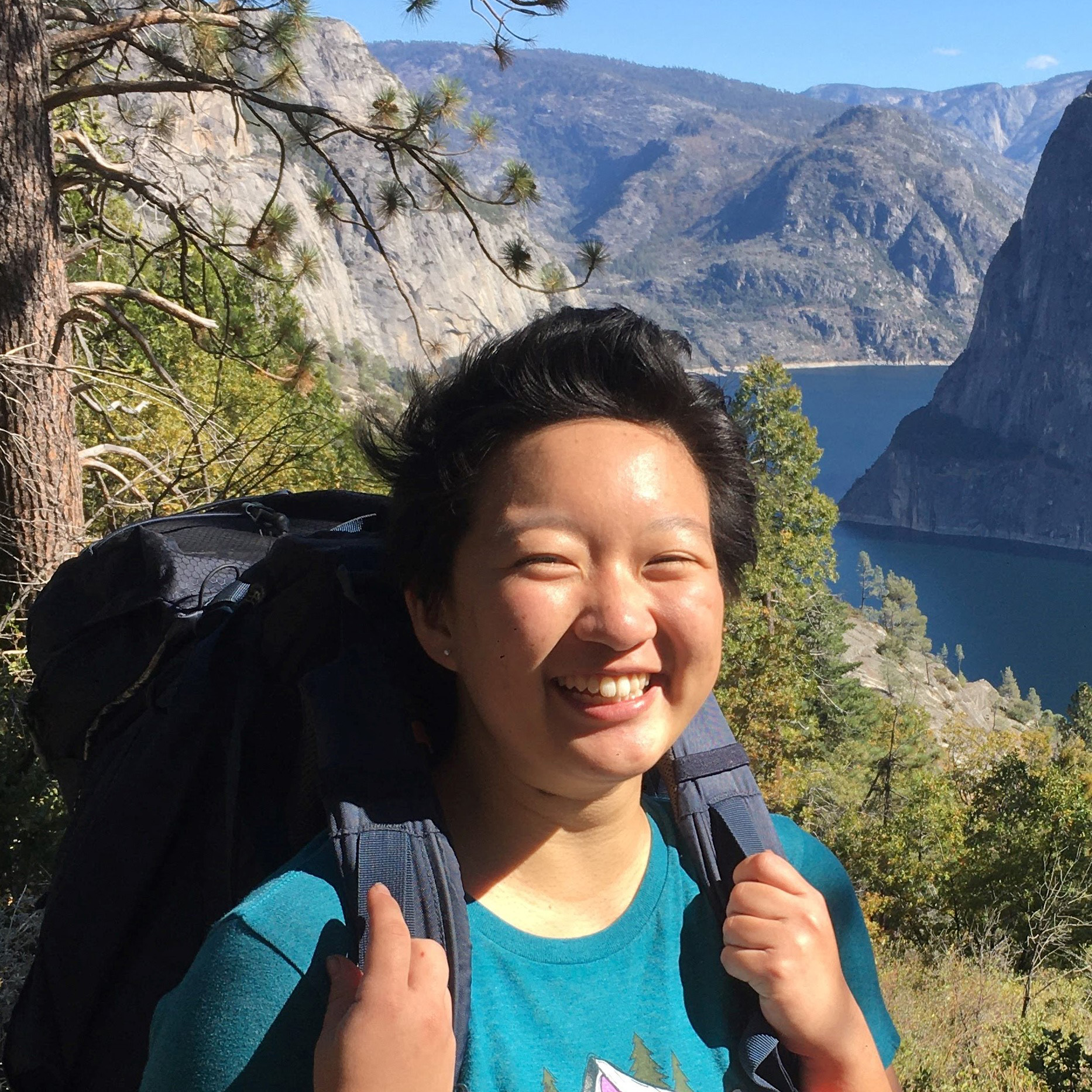
Suzanne Ou
2021 Ashton Award
PhD Candidate, Stanford University
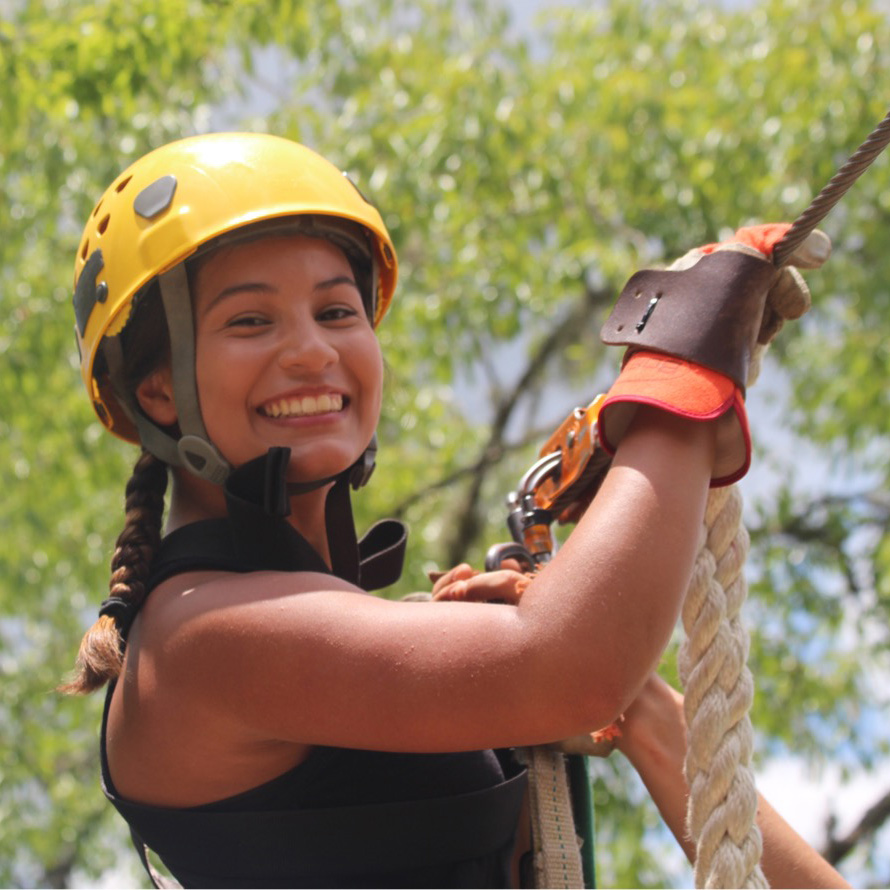
Vanessa Indeglia
2021 Sinnott Award
DVM Candidate and Master’s Student, Tufts University
2020 Awardees
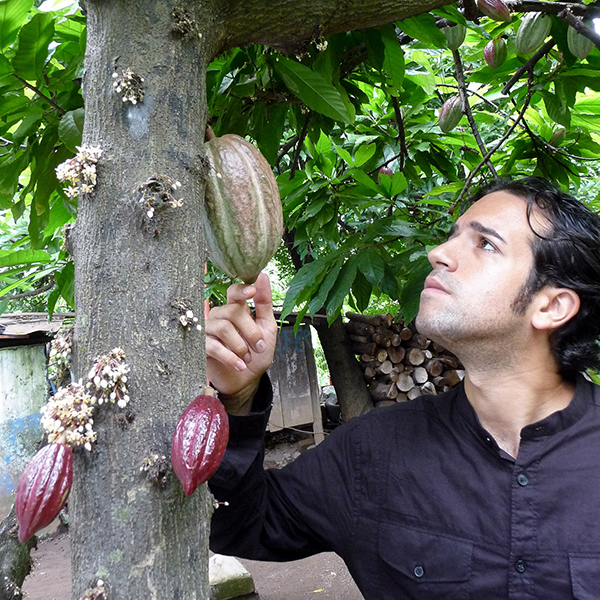
Adam Negrin
2020 Jewett Prize
Adjunct Assistant Professor, Lehman College (CUNY)
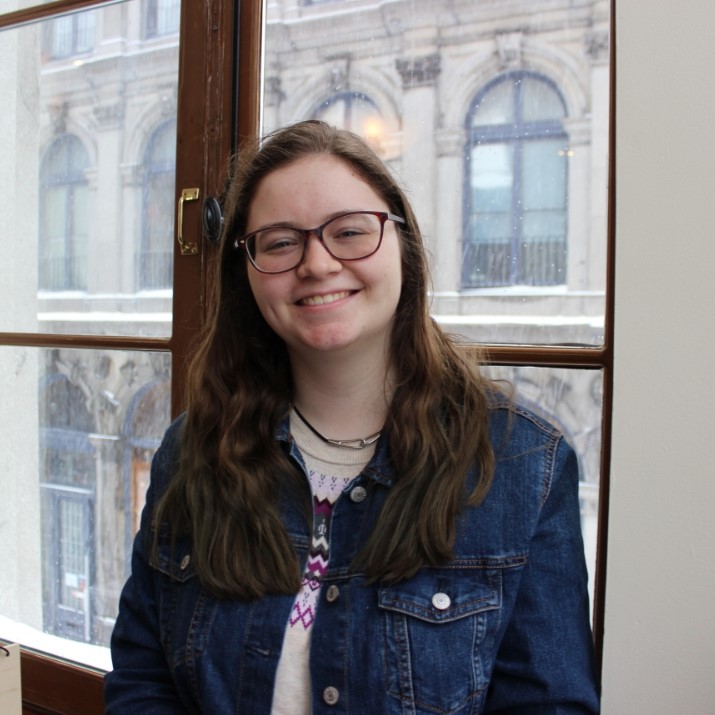
Bailey Cowart
2020 Sinnott Award
Undergraduate Student, Boston University
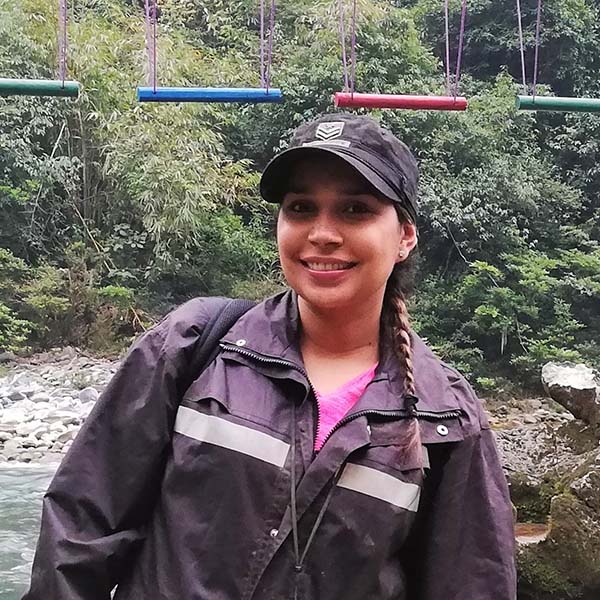
Diana Castillo Diaz
2020 Ashton Award
PhD Candidate, Guangxi University, China
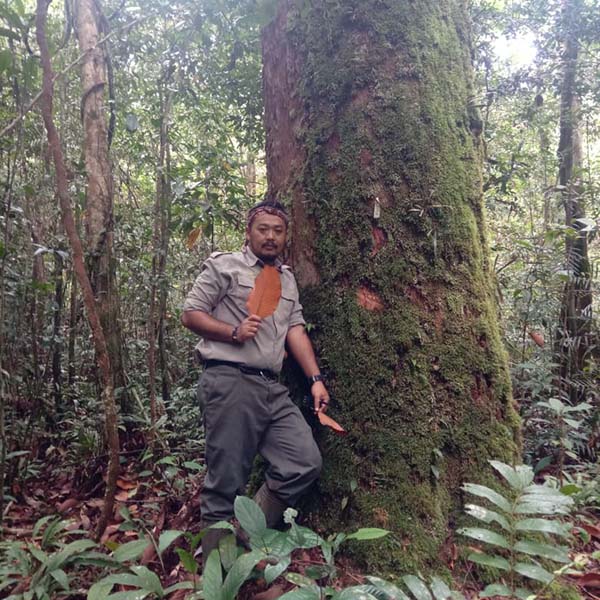
Endro Setiawan
2020 Ashton Award
Master’s Student, Universitas Nasional, Indonesia
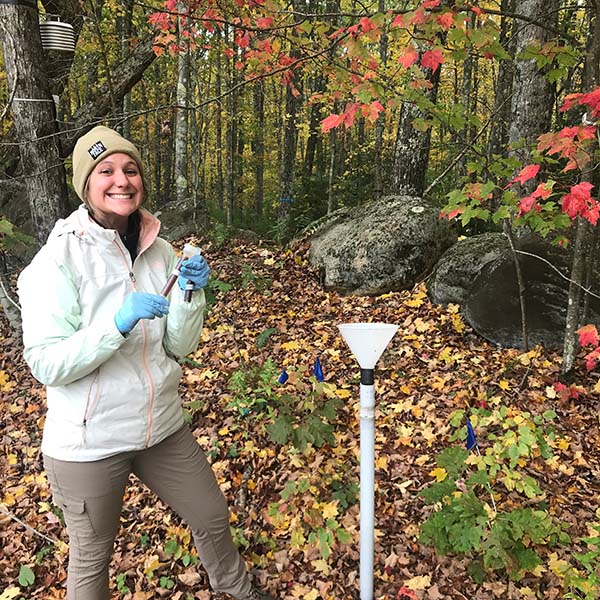
Jenna Rindy
2020 Deland Award
PhD Student, Boston University
- Rindy JE, Pierce EA, Geddes J, Garvey SM, Gewirtzman J, Driscoll CT, Hutyra LR, Templer PH. 2023. Effects of Urbanization and Forest Fragmentation on Atmospheric Nitrogen Inputs and Ambient Nitrogen Oxide and Ozone Concentrations in Mixed Temperate Forests. Journal of Geophysical Research: Biogeosciences. 128(12): e2023JG007543. Abstract
Julie Dawson
2020 Jewett Prize
Assistant Professor, University of Wisconsin, Madison
- Brainard SH, Sanders DM, Bruna T, Shu S, Dawson JC. 2023. The first two chromosome-scale genome assemblies of American hazelnut enable comparative genomic analysis of the genus Corylus. Plant Biotechnology Journal.
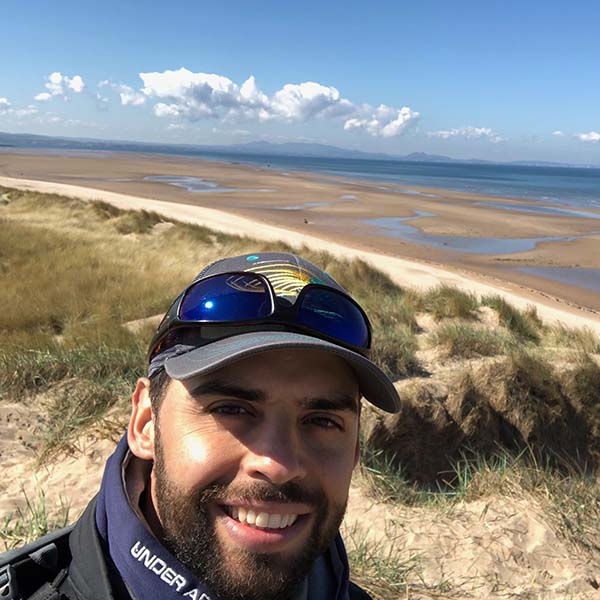
Ryan Fuller
2020 Sargent Award
PhD Candidate, University of Chicago
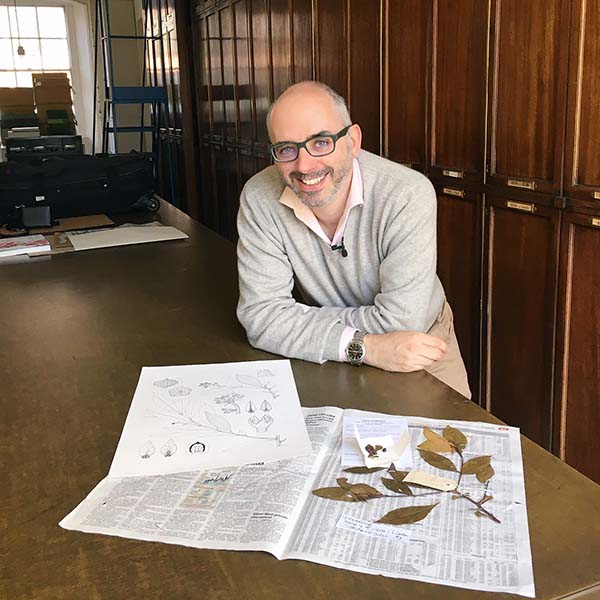
Tim Utteridge
2020 Sargent Award
Head of Science, Royal Botanic Gardens, UK
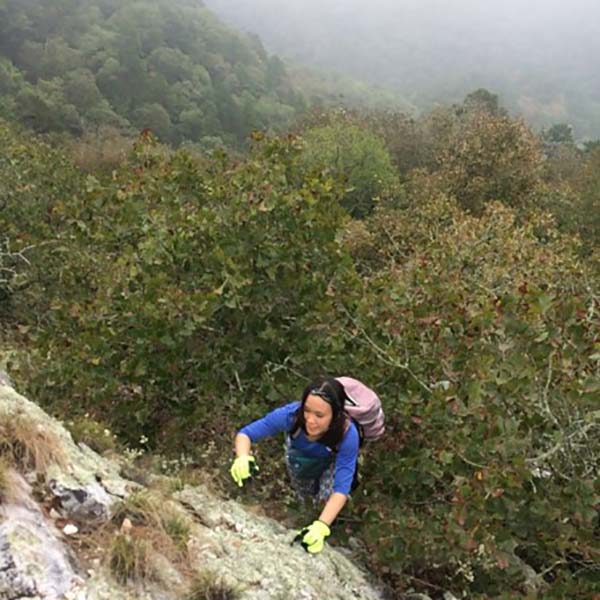
Yingtong Wu
2020 Deland Award
PhD Candidate, University of Missouri
- Wu Y^, Hipp AL, Fargo G, Stith N, Ricklefs RE. 2023. Improving Species Delimitation for Effective Conservation: A Case Study in the Endemic Maple-leaf Oak (Quercus acerifolia). New Phytologist 238(3):1278–93. Abstract
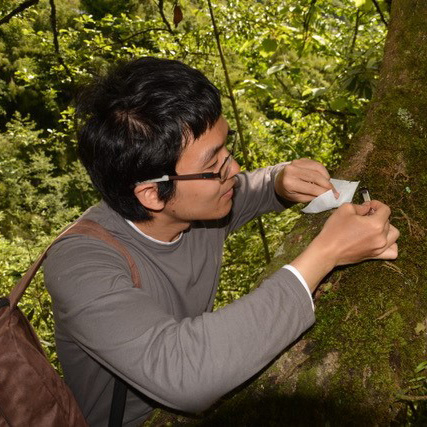
Zhengyang Wang
2020 Hu Student/Postdoctoral Exchange Award
PhD Candidate, Harvard University
- Da W, Rana SK, Bawa K, Kunte K, Wang Z. 2023. Roof of the world: Home and border in the genomic era. Molecular Ecology Reso
2019 Awardees

Aidan Short
2019 Ashton Award
PhD Student, Guangxi University, China
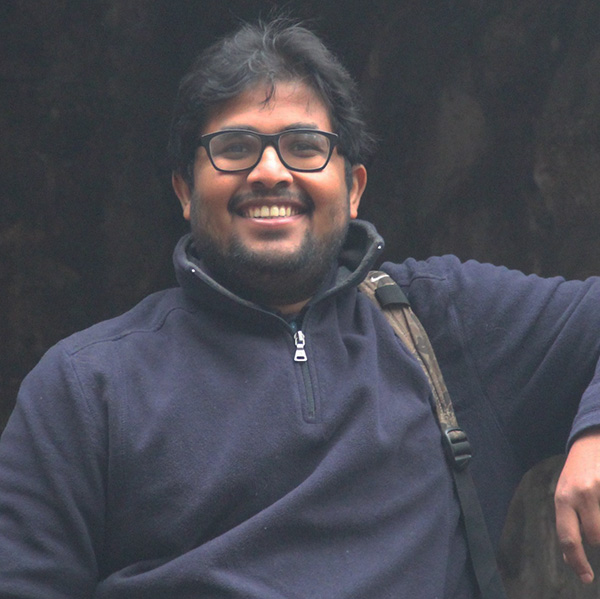
Harikrishnan V. N. Radhamoni
2019 Ashton Award
PhD Candidate, Yale University
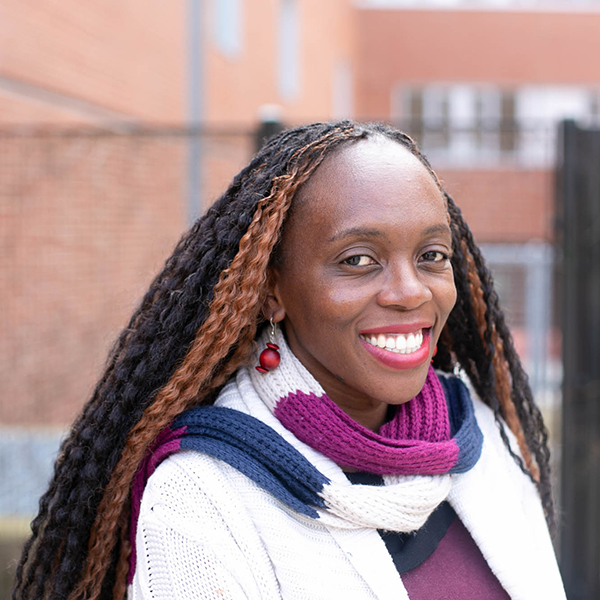
Jedaidah Chilufya
2019 Cunin/Sigal Award
PhD Candidate, University of Massachusetts, Amherst
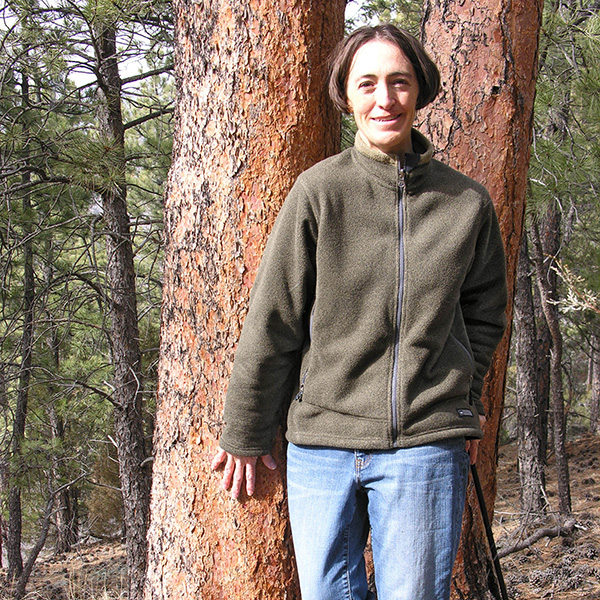
Kathryn Mauz
2019 Sargent Award
Independent Scholar
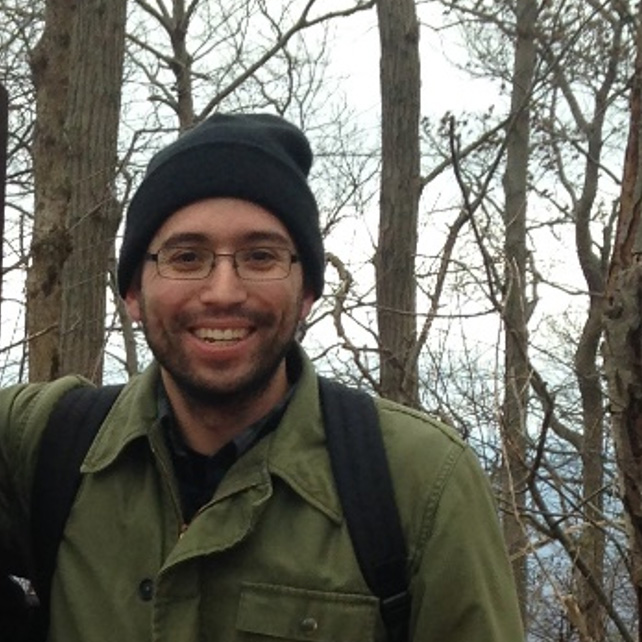
Steve Gougherty
2019 Deland Award
PhD Student, Boston University

Wenbin Zhou
2019 Hu Award
PhD Student, North Carolina State University
2018 Awardees
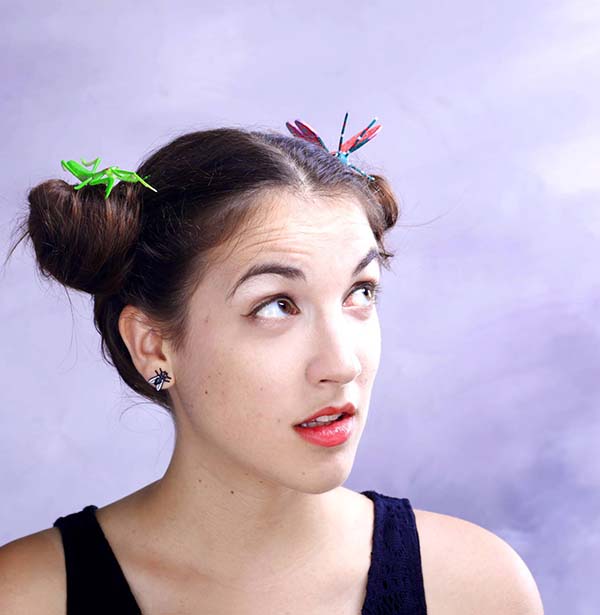
Avalon Owens
2018 Cunin/Sigal Award
PhD Student, Tufts University
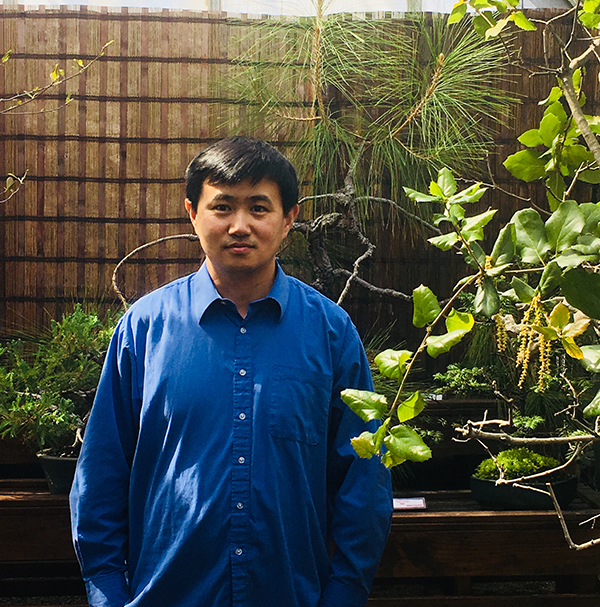
Dong Wang
2018 Sargent Award
Assistant Professor, University of Massachusetts, Amherst
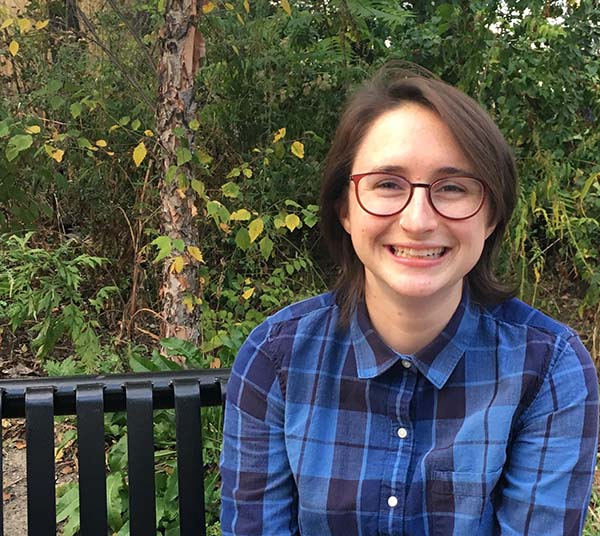
Erin Pierce
2018 Deland Award
PhD Student, Templer Lab, Boston University
- Rindy JE, Pierce EA, Geddes J, Garvey SM, Gewirtzman J, Driscoll CT, Hutyra LR, Templer PH. 2023. Effects of Urbanization and Forest Fragmentation on Atmospheric Nitrogen Inputs and Ambient Nitrogen Oxide and Ozone Concentrations in Mixed Temperate Forests. Journal of Geophysical Research: Biogeosciences. 128(12): e2023JG007543. Abstract
- Garvey SM, Templer PH, Pierce EA, Reinmann Andrew B, Hutyra LR. 2022. Diverging patterns at the forest edge: Soil respiration dynamics of fragmented forests in urban and rural areas. Global Change Biology 28: 3094-109. Abstract
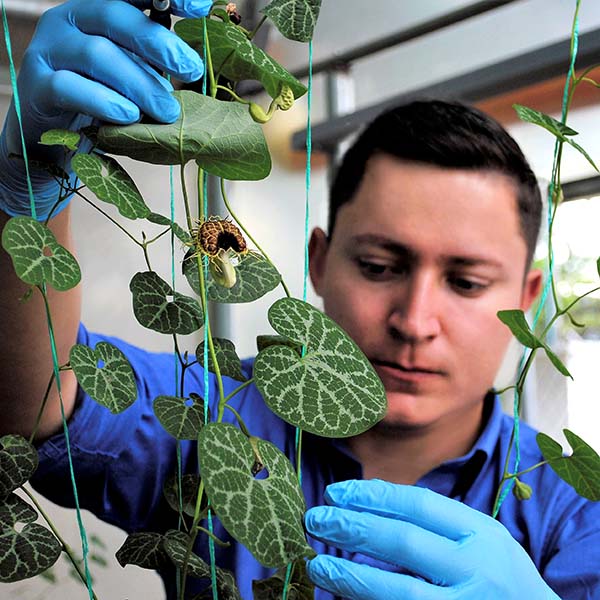
Harold Suarez Baron
2018 Deland Award
PhD Candidate, University of Antioquia in Colombia
Visiting Fellow, Arnold Arboretum of Harvard University
- Suárez-Baron H, Alzate JF, Ambrose BA, Pelaz S, González F, Pabón-Mora N. 2023. Comparative morphoanatomy and transcriptomic analyses reveal key factors controlling floral trichome development in Aristolochia (Aristolochiaceae). Journal of Experimental Botany74(21):6588–6607. Abstract
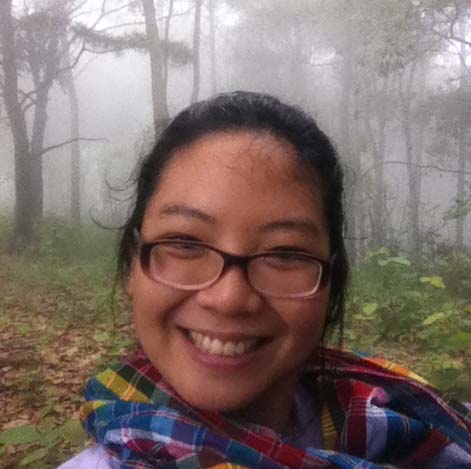
Krittika Petprakob
2018 Ashton Award
PhD Student, University of Maryland
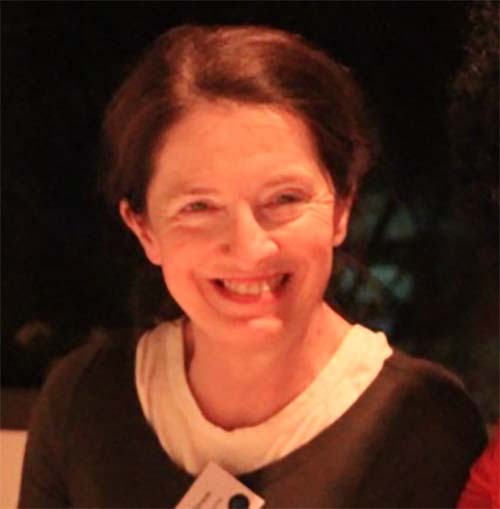
Margaret Grose
2018 Sargent Award
Senior Lecturer, University of Melbourne, Australia
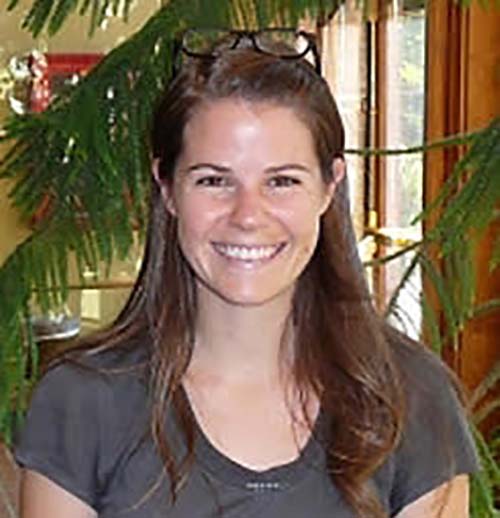
Meghan Blumstein
2018 Deland Award
PhD Candidate, Holbrook Lab, Harvard University
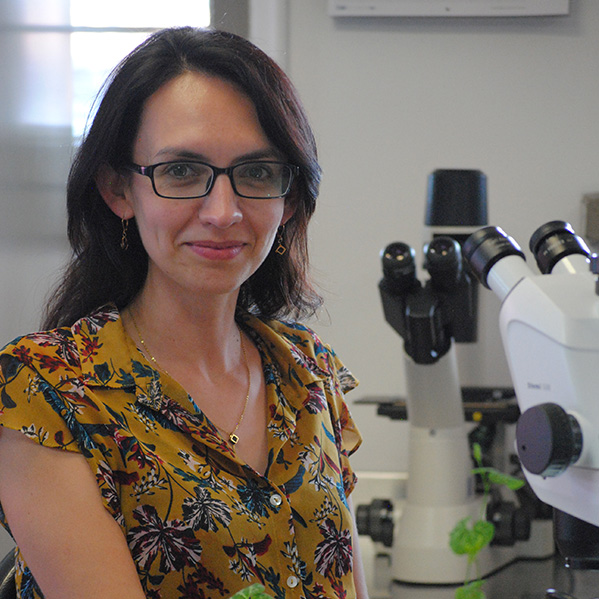
Natalia Pabón-Mora
2018 Jewett Prize
Associate Professor, University of Antioquia in Colombia
Visiting Scholar, Arnold Arboretum of Harvard University
- Suárez-Baron H, Alzate JF, Ambrose BA, Pelaz S, González F, Pabón-Mora N. 2023. Comparative morphoanatomy and transcriptomic analyses reveal key factors controlling floral trichome development in Aristolochia (Aristolochiaceae). Journal of Experimental Botany74(21):6588–6607. Abstract
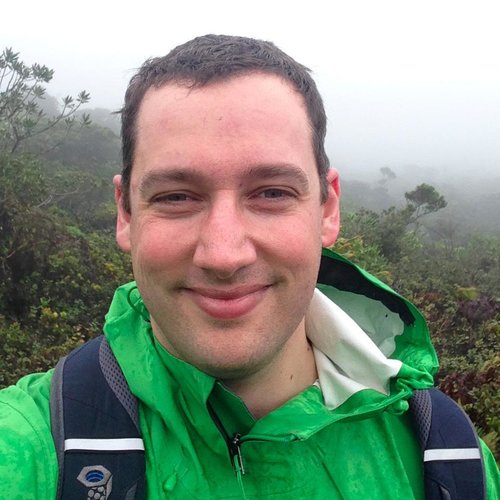
Nathan Swenson
2018 Arnold Arboretum Genomic Initiative and Sequencing Award
Acer griseum genome

Robin Hayward
2018 Ashton Award
PhD Student, University of Stirling, Scotland
2017 Awardees
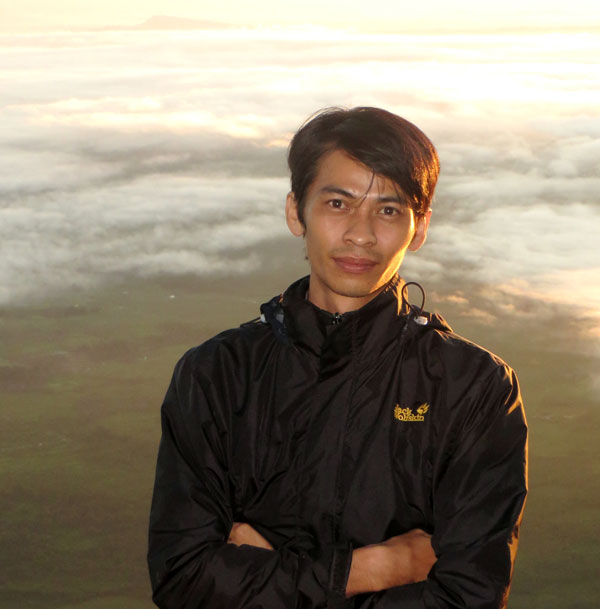
Agusti Randi
2017 Ashton Award
Master’s Student, Bagor Agricultural University, Indonesia

Jessica Savage
2014-2016 Putnam Fellow
2017 Sinnott Award
2023 Jewett Prize
Associate Professor, University of Minnesota, Duluth
Visiting Scholar, Arnold Arboretum of Harvard University
- Savage JA, Kiecker T, McMann N, Park D, Rothendler M, Mosher K. 2022. Leaf out time correlates with wood anatomy across large geographic scales and within local communities. New Phytologist 235: 953-64. Abstract
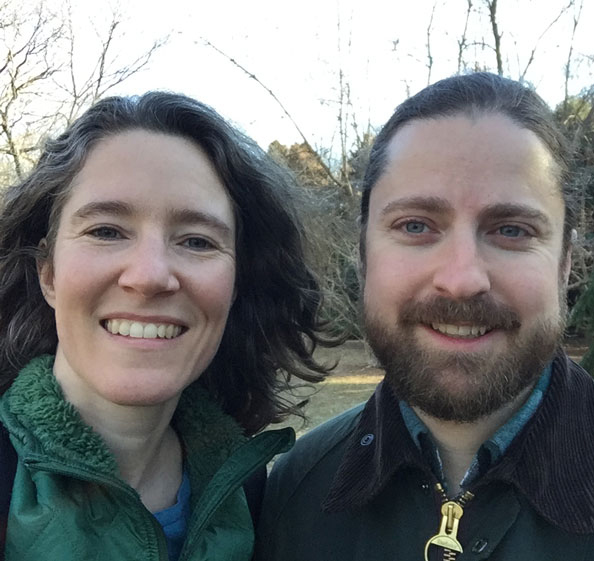
Margaret Kosmala and David Basler
2017 Sinnott Award and Sargent Award
Postdoctoral Fellows, Harvard University, Richardson Lab

Michael and Scott Dietrich
2017 Sargent Award
Professor, Dartmouth College (MD)
Co-Curator, Hong Kong Stair Archive (SD)
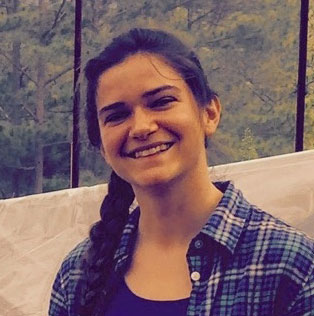
Stephanie Schmiege
2017 Ashton Award
PhD Student, Columbia University
Asimina triloba genome
2017 Arnold Arboretum Genomic Initiative and Sequencing Award
Fagus grandifolia genome
2017 Arnold Arboretum Genomic Initiative and Sequencing Award
2016 Awardees
Adam Roddy
2016 Jewett Prize
Post-doctoral fellow, Yale University
Visiting Fellow, Arnold Arboretum of Harvard University
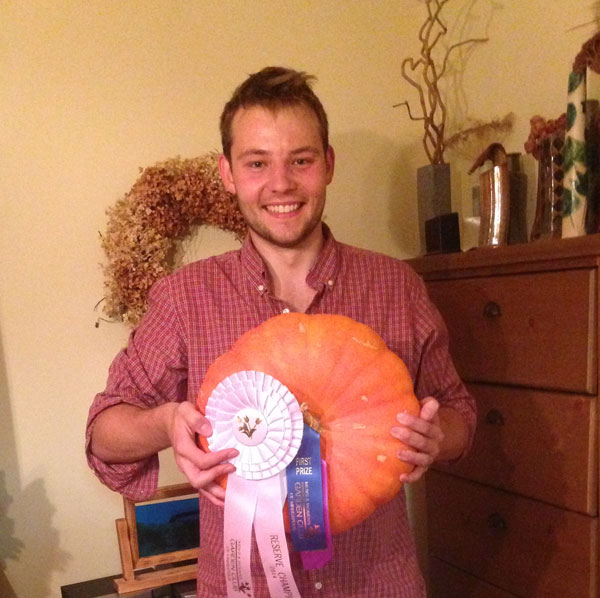
Alexander Susko
Deland Award
PhD candidate, University of Minnesota

Callin Switzer
2016 Sinnott Award
PhD Candidate, Harvard University, Hopkins Lab

Dan Sullivan
Associate, Arnold Arboretum of Harvard University
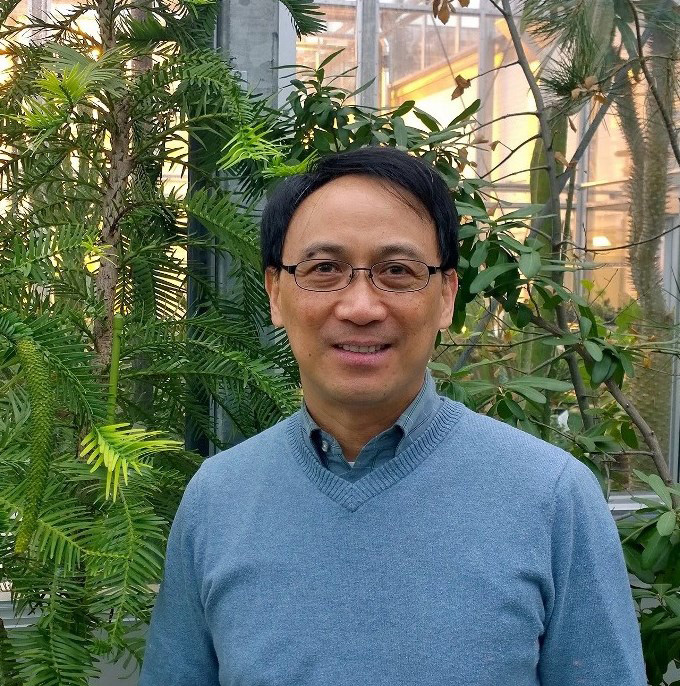
Danilo Fernando
2016 Jewett Prize
Associate Professor at the State University of New York
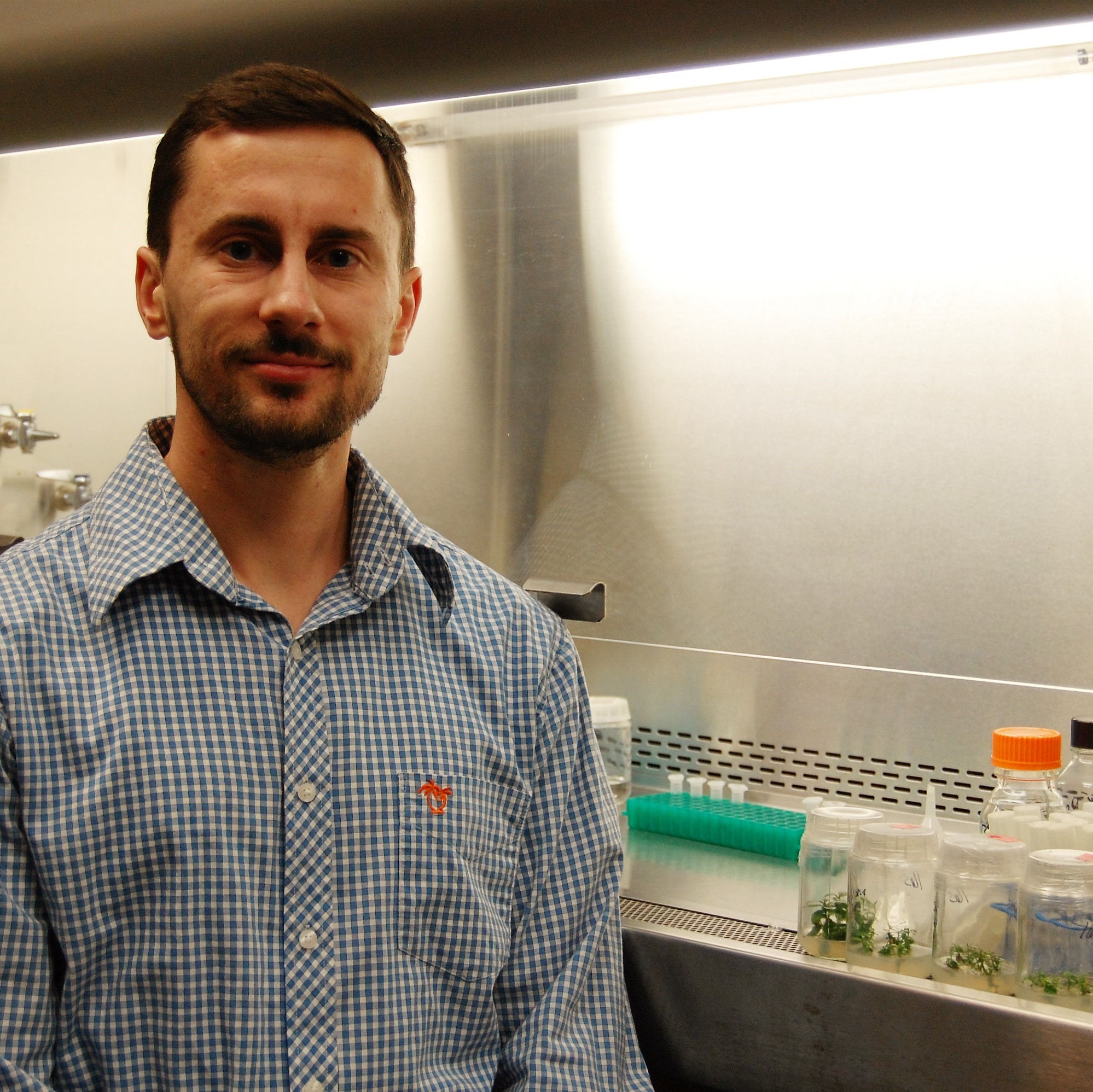
Jonathan Mahoney
2016 Deland Award
Master’s student, University of Connecticut
Visiting Fellow, Arnold Arboretum of Harvard University
- Mahoney JD, Brand MH. 2021. Pre- and postzygotic barriers associated with intergeneric hybridization between Aronia melanocarpa (Michx.) Elliott x Pyrus communis L. and ×Sorbaronia dippelii (Zabel) CK Schneid. x Pyrus communis. HortScience 56(2): 177-184. Abstract
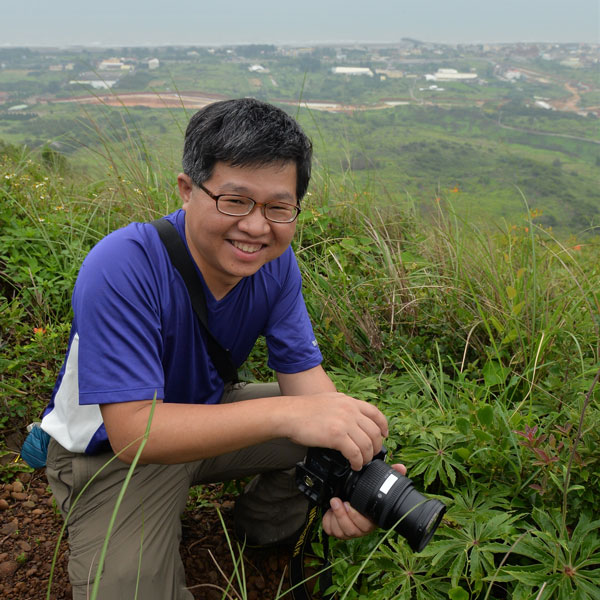
Kuo-Fang Chung
2016 Sargent Award
Associate Research Fellow, Biodiversity Research Center, Academia Sinica, Taiwan
- Kuo W-H, Liu S-H, Chang C-C, Hsieh C-L, Li Y-H, Ito T, Won H, Kokubugata G, Chung K-F. 2022. Plastome phylogenomics of Allaeanthus, Broussonetia and Malaisia (Dorstenieae, Moraceae) and the origin of B. × kazinoki. Journal of Plant Research 135: 203–220. Abstract
- Chung K-F, Kuo W-H, Hsu Y-H, Li Y-H, Rubite RR, Xu W-B. 2017. Molecular recircumscription of Broussonetia (Moraceae) and the identity and taxonomic status of B. kaempferi var. australis. Botanical Studies 58: 11.
- Yu C-C, Chung K-F. 2017. Why Mahonia? Molecular recircumscription of Berberis l., with the description of two new genera, Alloberberis and Moranothamnus. Taxon 66: 1371-1392.
Meghna Krishnadas
2016 Ashton Award
PhD candidate, Yale University
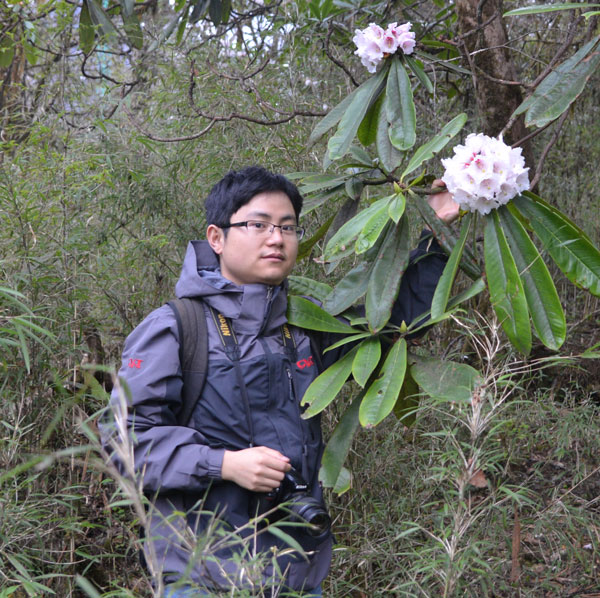
Meng Li
2016 Hu Student/Postdoctoral Exchange Award
Ph.D student, Chengdu Institute of Biology, Chinese Academy of Sciences
Visiting Fellow, Arnold Arboretum of Harvard University
- Li M, Ohi-Toma T, Gao Y-D, Xu B, Zhu Z-M, Ju W-B, Gao X-F. 2017. Molecular phylogenetics and historical biogeography of Sorbus sensu stricto (Rosaceae). Molecular Phylogenetics and Evolution 111: 76-86.

Dan Sullivan
2016 Sargent Award
2015 Awardees

Jianhua Li
Sargent Award
Professor of Biology, Hope College
Associate, Arnold Arboretum of Harvard University
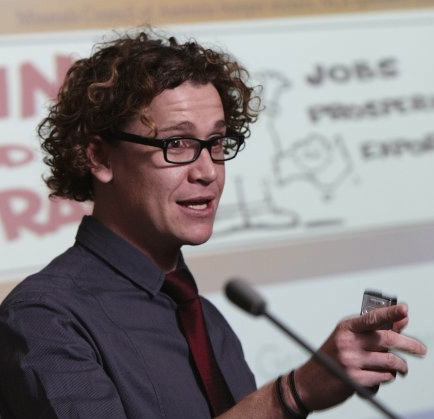
Luke Keogh
2015 Sargent Award
Post-doctoral Fellow, Ludwig-Maximilians University, Germany
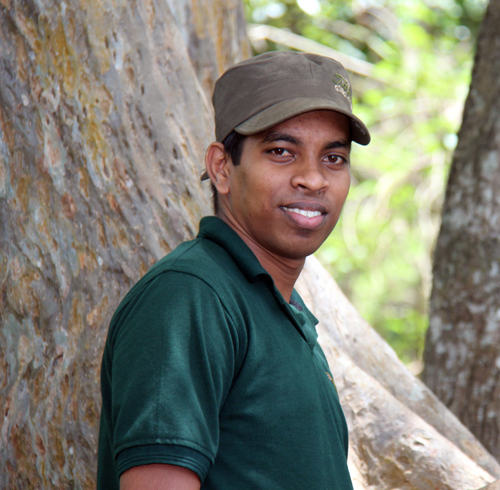
Nalaka Geekiyanage
2015 Ashton Award
PhD Candidate, Kyoto University, Japan

Stephen Decina
2015 Deland Award
PhD Candidate, Boston University, Templer and Hutyra Labs
- Decina SM, Hutyra LR, Gately CK, Getson JM, Reinmann AB, Short Gianotti AG, Templer PH. 2016. Soil respiration contributes substantially to urban carbon fluxes in the greater Boston area. Environmental Pollution 212: 433-439.
2014 Awardees
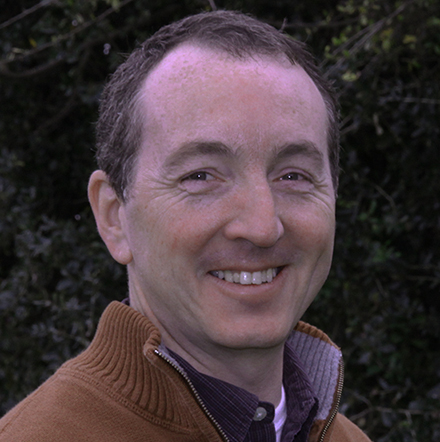
Andrew Groover
2014 Sargent Award
Geneticist, USDA Forest Service
Visiting Scholar, Arnold Arboretum of Harvard University
Bryan Connolly
2014 Cunin/Sigal Award
PhD Candidate, University of Connecticut, Brand Lab
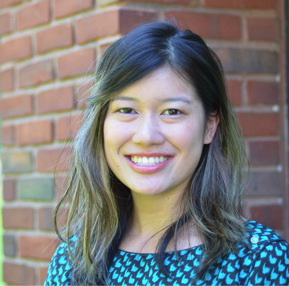
Janice Chan
2014 Ashton Award
PhD candidate, Harvard University, Moorcroft Lab
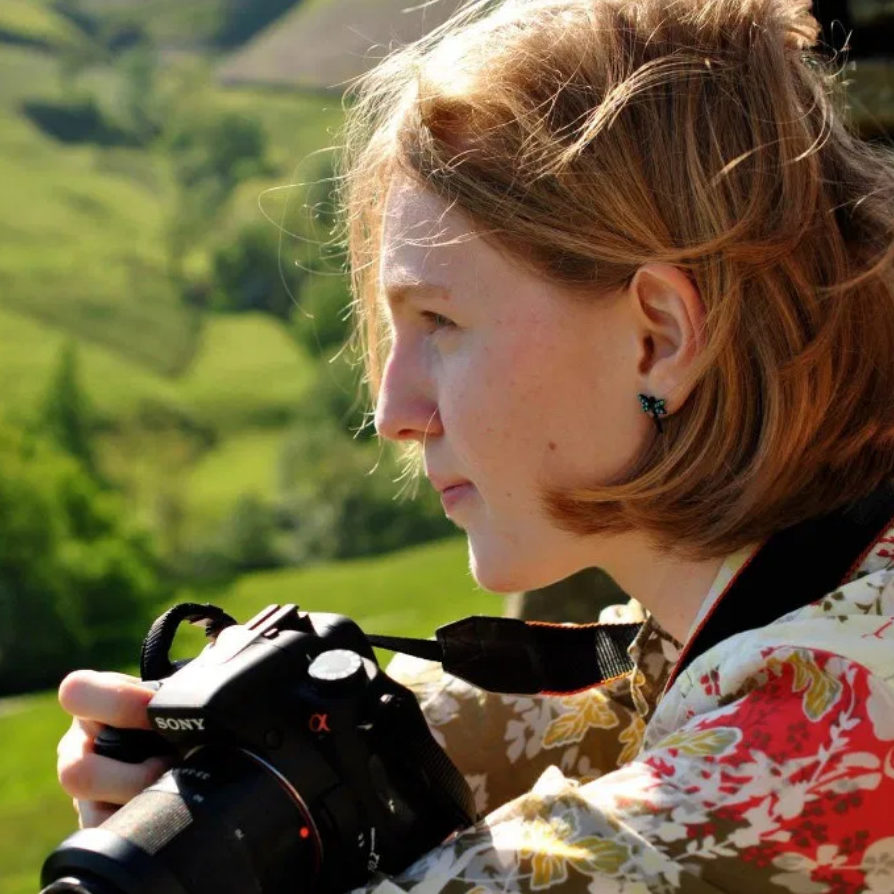
Kristel Schoonderwoerd
2014 Deland Award
Master’s Student, Erasmus Mundus Master Program in Evolutionary Biology
- Schoonderwoerd KM, Friedman WE. 2016. Zygotic dormancy underlies prolonged seed development in Franklinia alatamaha (Theaceae): a most unusual case of reproductive phenology in angiosperms. Botanical Journal of the Linnean Society 181: 70-83.
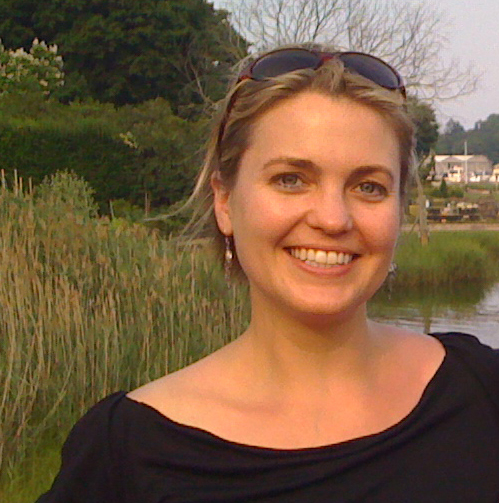
Laura Garrison
2014 Deland Award
PhD Candidate, Brown University, Edwards Lab
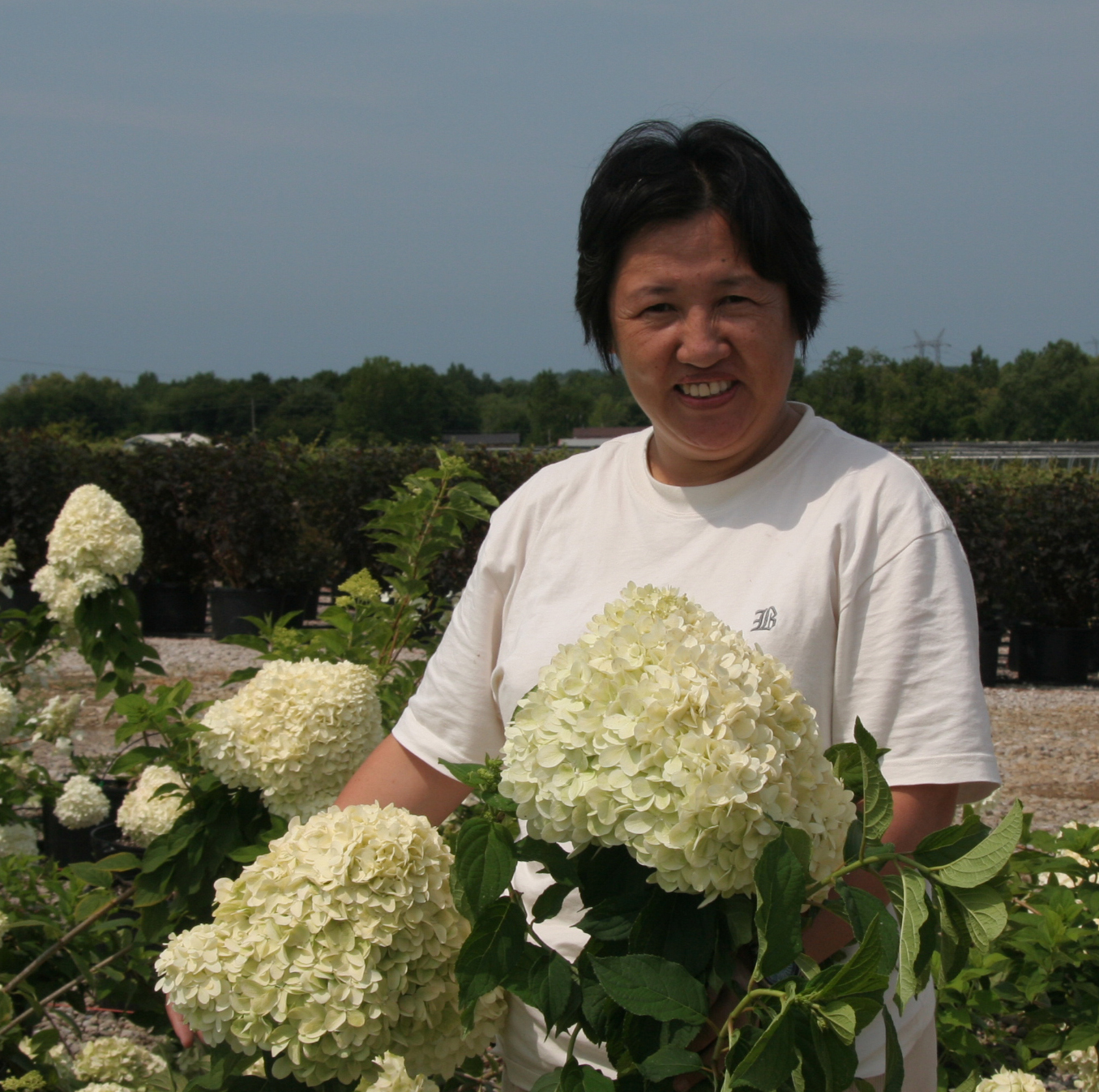
Ling Guo
2014 Jewett Prize
Curator, Beijing Botanic Garden
Visiting Scholar, Arnold Arboretum of Harvard University

Luke Keogh
2015 Sargent Award
Post-doctoral Fellow, Ludwig-Maximilians University, Germany
2013 Awardees
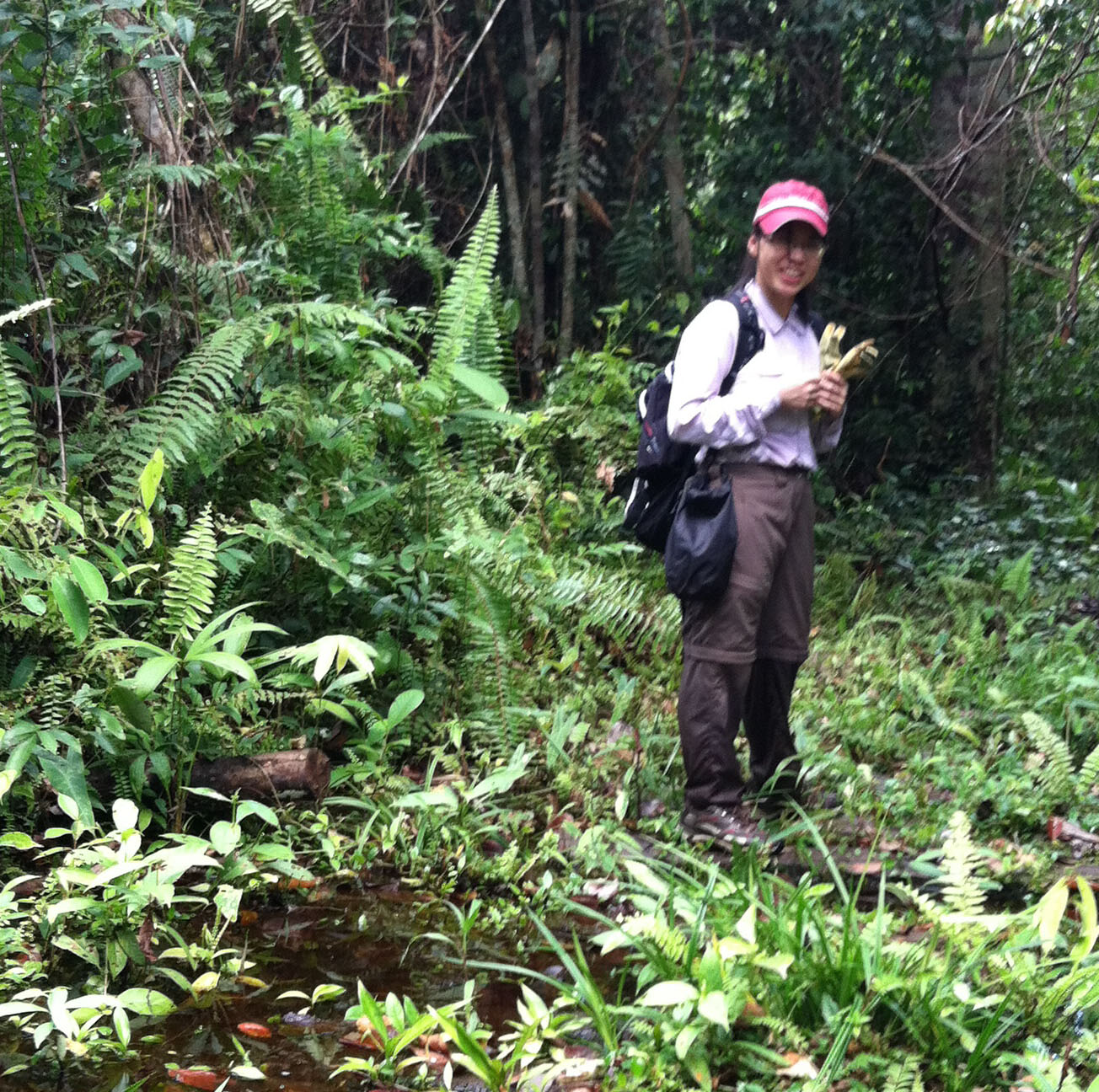
Ha Thanh Nguyen
2013 Ashton Award
PhD Candidate, Boston University, Hutyra Lab
- Nguyen HT, Hutyra LR, Hardiman BS, Raciti SM. 2016. Characterizing forest structure variations across an intact tropical peat dome using field samplings and airborne LiDAR. Ecological Applications 26: 587-601.
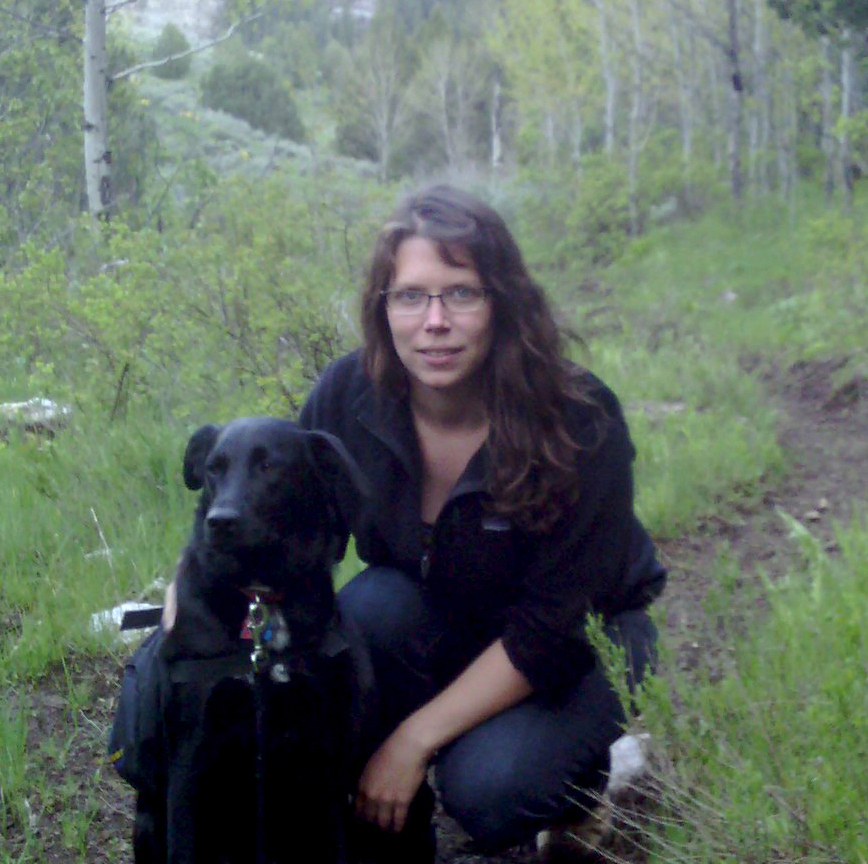
Kathryn Weglarz
2013 Deland Award
PhD Candidate, Utah State University, von Dohlen Lab
- Dial DT, Weglarz KM, Aremu AO, Havill NP, Pearson TA, et al. 2021. Transitional genomes and nutritional role reversals identified for dual symbionts of adelgids (Aphidoidea: Adelgidae). The ISME Journal 16(3):642–54. Abstract
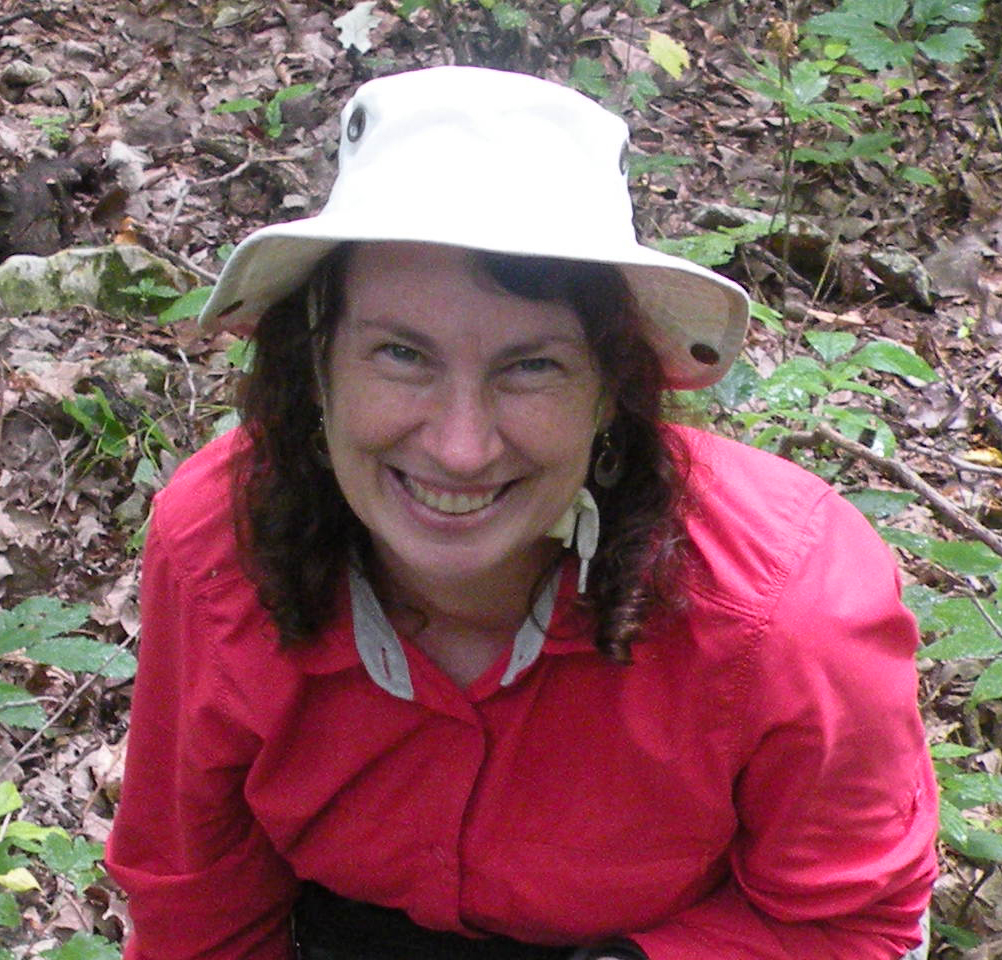
Rosanne Healy
2013 Sargent Award
Post-doctoral Fellow, University of Minnesota
Visiting Fellow, Arnold Arboretum of Harvard University
- Healy RA, Zurier H, Bonito G, Smith ME, Pfister DH. 2016. Mycorrhizal detection of native and non-native truffles in a historic arboretum and the discovery of a new North American species, Tuber arnoldianum sp. nov. Mycorrhiza 26: 781-792.
- Leicht-Young SA, Healy R, Del Tredici P. 2016. Observation of mycorrhizal colonization in roots in natural populations of Celastrus orbiculatus Thunb. The Journal of the Torrey Botanical Society 143: 322-324.
- Shao D, Tang S, Healy RA, Imerman PM, Schrunk DE, Rumbeiha WK. 2016. A novel orellanine containing mushroom Cortinarius armillatus. Toxicon 114: 65-74.
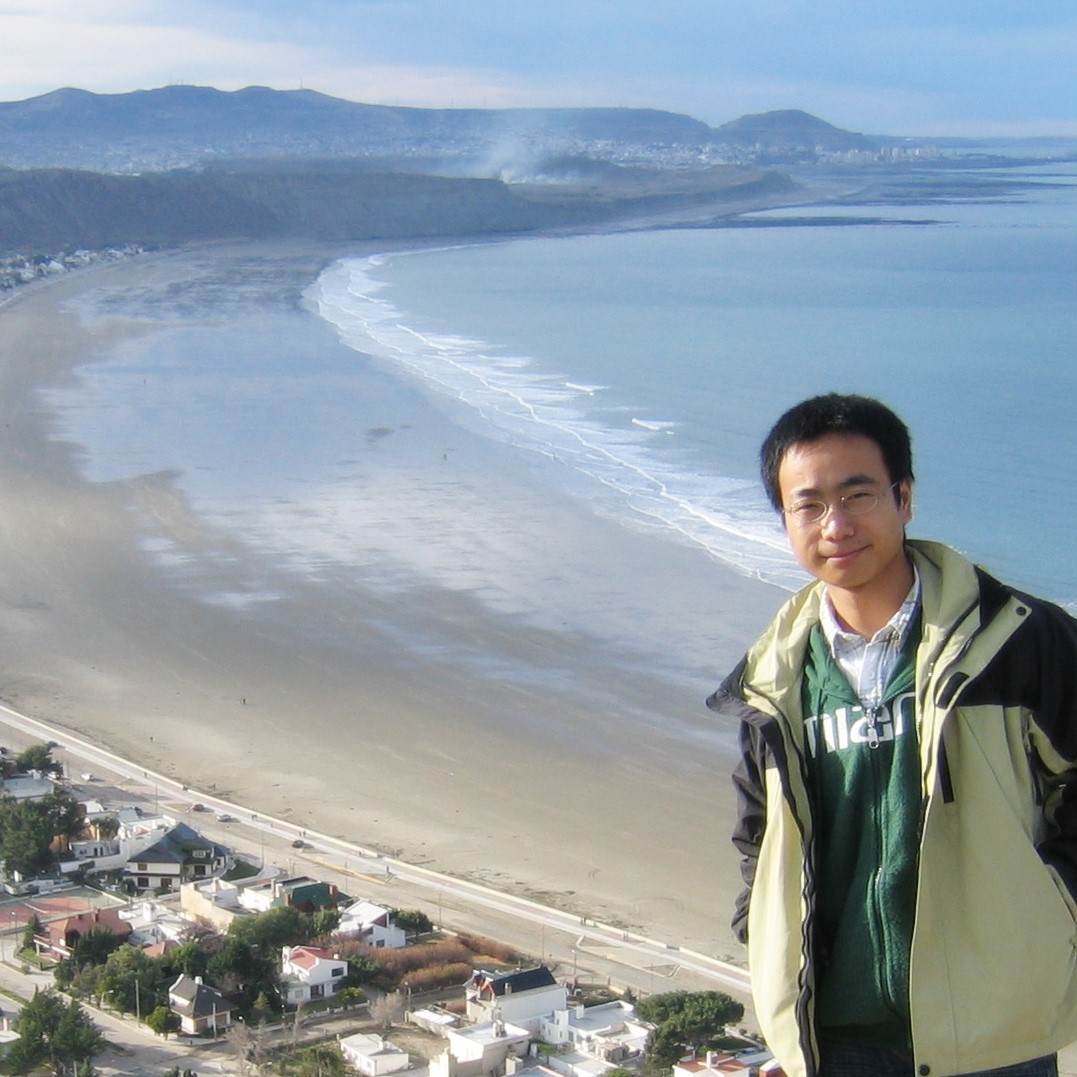
Yong-Jiang Zhang
2013 Hu Student/Postdoctoral Exchange Award
Post-doctoral Fellow, Harvard University, Holbrook Lab
2012 Awardees
Bharti Sharma
2012 Jewett Prize
Post-doctoral Fellow, Harvard University, Kramer Lab

Claire Williams
2012 Sargent Award
Distinguished Scholar, Forest History Society
- Williams CG, Després V. 2017. Northern Hemisphere forests at temperate and boreal latitudes are substantial pollen contributors to atmospheric bioaerosols. Forest Ecology and Management 401: 187-191.
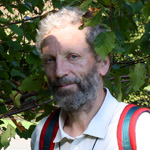
Hugh McAllister
2012 Sargent Award
Honorary Lecturer, University of Liverpool
Visiting Scholar, Arnold Arboretum of Harvard University
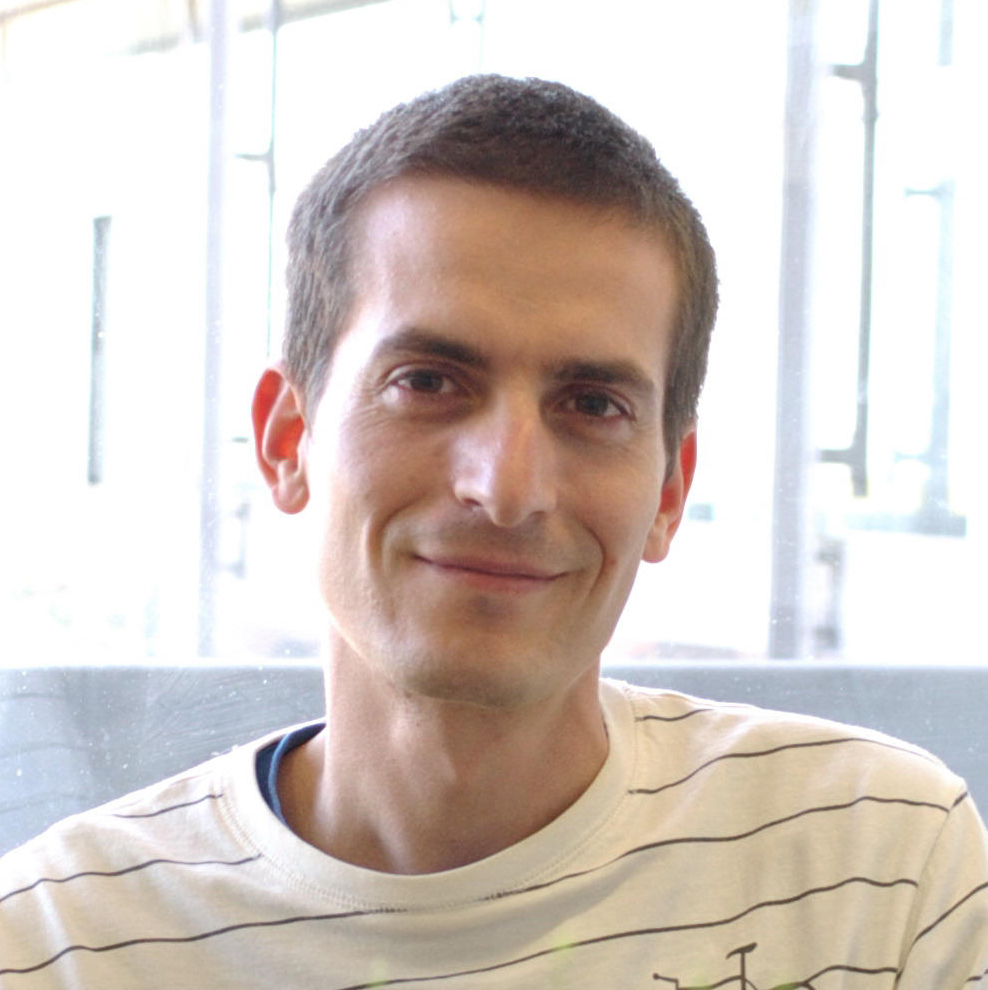
Jorge Lora
2012 Jewett Prize
Post-doctoral Fellow, Experimental Research Stations (CSIC), Spain
Visiting Fellow, Arnold Arboretum of Harvard University
- Losada JM, Hormaza JI, Lora J. 2017. Pollen–pistil interaction in pawpaw (Asimina triloba), the northernmost species of the mainly tropical family Annonaceae. American Journal of Botany 104:1891–1903
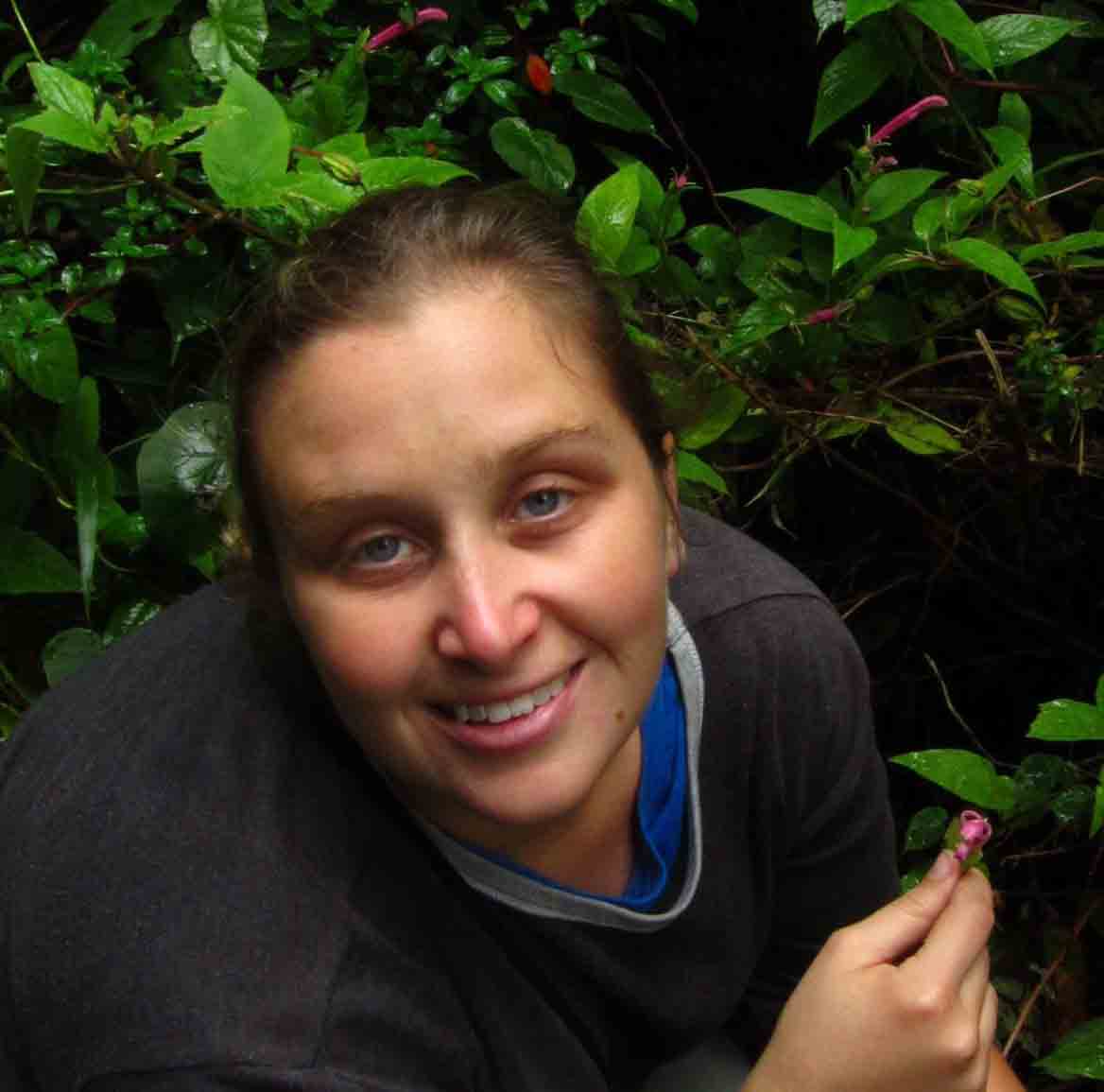
Laura Lagomarsino
2012 Deland Award
PhD Candidate, Harvard University, Davis Lab
2011 Awardees

E. Scherbatskoy
2011 Deland Award
Undergraduate Student, University of Colorado, Boulder
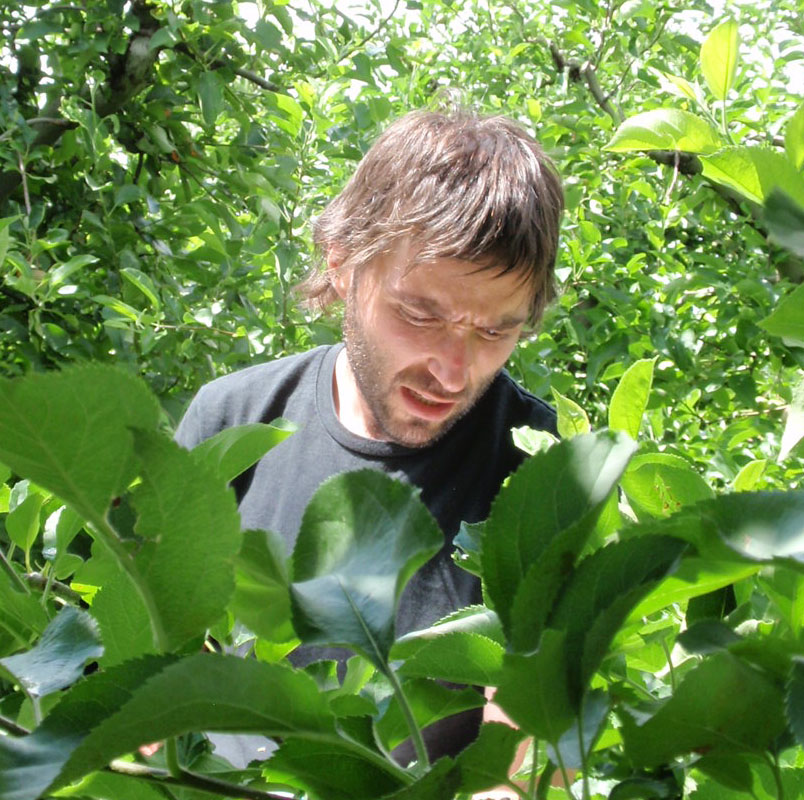
Juan M. Losada
2011 Deland Award
PhD Candidate, Aula Dei Experimental Station–CSIC, Spain
Visiting Fellow, Arnold Arboretum of Harvard University
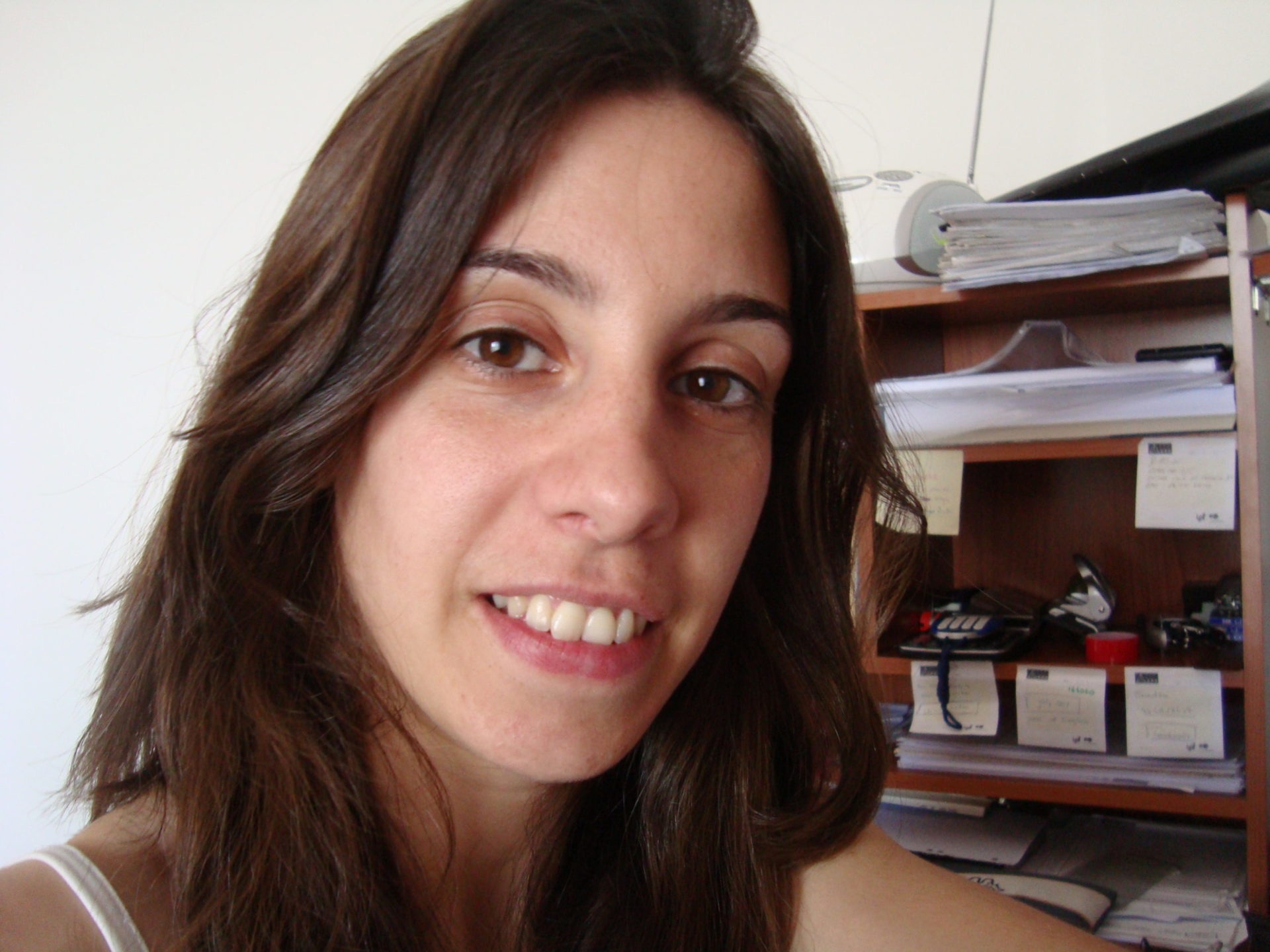
Mariana Oliveira e Castro
2011 Deland Award
Master’s Student, University of Coimbra, Portugal
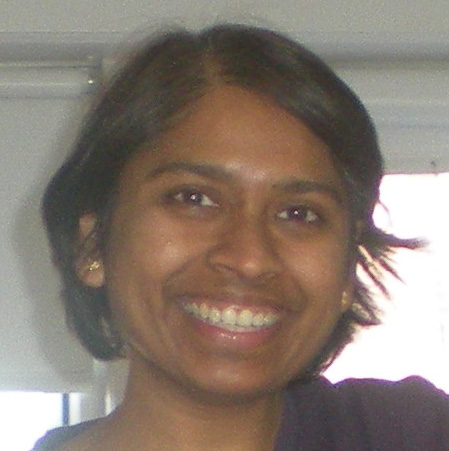
Preeti Rao
2011 Deland Award
PhD Candidate, Boston University, Hutyra Lab
Alumni
Select Years
2024

Alaina Bisson
2024 Sinnott Award
Research Assistant, OEB, Taylor Lab, Harvard University
The Arboretum is home to diverse nitrogen-fixing legume species originating from around the world. Alaina Bisson will sample the root nodules from 100 trees with known origins in the Arboretum. She will sequence and identify the nitrogen-fixing rhizobia bacterial communities associated with these trees and determine if the location of origin impacts the community composition.

Andrea Berardi
Research Associate, OEB, Hopkins Lab
Fellow of the Arnold Arboretum of Harvard University
Andrea Berardi is a research associate in the Hopkins Lab broadly interested in the processes of adaptation and speciation, with a particular focus on the role floral color in creating reproductive barriers. She is currently working on a project to understand the evolution of red flower color in North American Silene species, specifically whether access to hummingbird pollinators and/or polyploidy events played the biggest roles.

Andrew Cameron
Research Assistant, OEB, Hopkins Lab

Anna Feller
Swiss National Science Foundation Postdoctoral Fellow, OEB, Hopkins Lab
Fellow of the Arnold Arboretum of Harvard University
Anna Feller was a Swiss National Science Foundation postdoctoral fellow in the Hopkins lab. She focuses on understanding the processes and mechanisms that generate and maintain biological diversity and how species evolve and persist. In the Hopkins lab, she is studying reproductive isolation and gene flow between several closely related lineages of Phlox flowers that all occur in geographic proximity.
Anya Ghai
undergraduate student, Northeastern University, Hopkins Lab

Cecilia (Ceci) Prada Cordero
Postdoctoral Fellow, OEB, Taylor Lab
Fellow of the Arnold Arboretum of Harvard University
Cecilia Prada Cordero is a postdoctoral fellow in the Taylor lab. Ceci focuses on the influence of abiotic and biotic factors on tree species composition, distribution, and biogeochemical processes, with a specific emphasis on filling research gaps in soil-plant-fungi interactions in tropical forests.
Cheng-Chiang Wu
Assistant Professor, Framingham State University
Visiting Fellow, Arnold Arboretum of Harvard University
Irene Ren
undergraduate student, Northeastern University, Hopkins Lab
Isabella Cao
Undergraduate student, Harvard College, Taylor Lab
Luke Zehr
postgraduate student, Taylor Lab
Michael Fairley
Undergraduate student, Harvard College, Taylor Lab
Michael Fairly
undergraduate student, Harvard College, Taylor lab
2023

Austin Garner
Graduate Student, OEB, Hopkins Lab
Fellow of the Arnold Arboretum of Harvard University
Austin Garner was a graduate student in the Hopkins lab studying speciation in Phlox.

Camilo Villouta
2021-2023 Putnam Fellow
Winter presents significant challenges to long lived perennial species, and in particular, to the reproductive buds that form before winter. Trees have developed different strategies for surviving winter and ensuring reproductive success. Camilo Villouta focuses on understanding the tradeoff between different survival strategies that trees employ with successful reproduction in the spring. This work will add insight to how climate change may impact temperate woody species. Camilo is an assistant professor at the University of Rhode Island.

Ellie Mendelson
Research Assistant, Friedman and Weld Hill Labs
As a research assistant in the Friedman lab, Ellie Mendelson contributed to a variety of projects related to plant evolution and morphology. For her undergraduate thesis, Ellie studied the fruit developmental network in early diverging angiosperms Austrobaileya scandens and Illicium floridanum with the Ambrose Lab at the New York Botanical Garden.

Lauren Church
Research Assistant, OEB, Taylor Lab
Lauren Church was a research assistant in the Taylor lab, and helped with sample processing, data analysis, as well as field work (her favorite part). Lauren completed her undergraduate thesis in the Taylor lab looking at the impacts of fertilizer treatments on soil bacterial communities, plant health and soil nutrients. Her research interests include global change biology, environmental justice, and human-environmental interactions.

Lindsay McCulloch
NOAA Climate and Global Change Postdoctoral Fellow
Fellow of the Arnold Arboretum of Harvard University
Lindsay McCulloch was a NOAA Climate and Global Change postdoctoral fellow working in the Taylor lab. Lindsay’s work focuses on the role plant-microbial symbioses play in the biogeochemical cycling and function of tropical forests, and how these processes may affect global carbon and nutrient cycling.

Megan Wilcots
2023 Global Change Fellow
Megan Wilcots received her PhD in Ecology from the University of Minnesota – Twin Cities and her BA in Environmental Biology with a focus on Ecology and Evolution from Columbia University. Her research experience has spanned from the tropics to the poles, with a focus on how global change affects carbon uptake of ecosystems. Her dissertation research focused on how nitrogen deposition affects plant community composition and ecosystem carbon storage in Minnesota grasslands. She also works in the Arctic, understanding how nutrient release from permafrost thaw may restructure Arctic ecosystems.
Megan is the first Global Change Postdoctoral Fellow from the Arnold Arboretum, a position she holds jointly with the Harvard University Center for the Environment (HUCE) as an Environmental Fellow. As a Fellow, Megan works with Professor Ben Taylor to study how Arctic heatwaves alter nitrogen fixation and carbon uptake. Megan is now an Applied Climate Scientist for The Nature Conservancy and a Visiting Scholar of the Arnold Arboretum.
Rohan Prabhu
undergraduate student, Hopkins lab
Undergraduate Student Interns
Hannah Adler, undergraduate student, Harvard College, Taylor Lab
Spencer Carter, undergraduate student, Harvard College, Hopkins Lab
Nick Daley, undergraduate student, Harvard College, Taylor Lab
Isabel Eddy, undergraduate student, Harvard College, Taylor Lab
Joseph Fadule, undergraduate student, Harvard College, Taylor Lab
Jake Greer, undergraduate student, Harvard College, Hopkins Lab
Andrew Ford, undergraduate student, Harvard College, Hopkins Lab
Sabrina Freidus, undergraduate student, Harvard College, Hopkins Lab
Kim Hartung, undergraduate student, Harvard College, Taylor Lab
Peyton Jones, undergraduate student, Harvard College, Hopkins Lab
Dorina Kodeanu, undergraduate student, Harvard College, Hopkins Lab
Catherine Mailly, undergraduate student, Harvard College, Hopkins Lab

Iñaki Hormaza
Research Professor, La Mayora Experimental Station, Spain
Visiting Scholar, Arnold Arboretum of Harvard University
Iñaki Hormaza is a Research Professor at IHSM la Mayora in Spain. As a Fulbright Scholar in 2022, he visited the Arboretum to study fruit development in the paw paw. Earlier visits focused on flower and fruit development in the Rosaceae collection.
2022

Alexandria Pete
Graduate Student, OEB, Friedman and Kramer Labs
Alexandria Pete is a PhD Student in the OEB department. She did research rotations in the Friedman and Kramer Labs.
Angie Diana
Research Assistant, OEB, Hopkins Lab
Angie Diana was a research assistant in the Hopkins Lab.

Antonio Serrato-Capuchina
Postdoctoral Fellow, OEB, Hopkins Lab
Fellow of the Arnold Arboretum of Harvard University
Antonio Serrato-Capuchina was a postdoctoral fellow in the Hopkins Lab interested in leveraging naturally hybridizing species complexes to uncover patterns in the development of reproductive isolation and better understand the evolution of species. Currently he is at Boston University.

Ben Goulet-Scott
Graduate Student, OEB, Hopkins Lab
Fellow of the Arnold Arboretum of Harvard University
Ben Goulet-Scott was a PhD Candidate in the Hopkins Lab. Ben is interested in adaptation and speciation in Phlox. Ben is now the higher education & lab coordinator at the Harvard Forest.

Bushra Shahid
MEME Student, OEB, Hopkins Lab
A MEME Student in the Hopkins Lab, Bushra Shahid aimed to investigate whether there is a shift towards earlier and more autonomous selfing in sympatric populations of Phlox cuspidata compared to allopatric populations, constant with reinforcement favoring traits that reduce hybridization in sympatry.
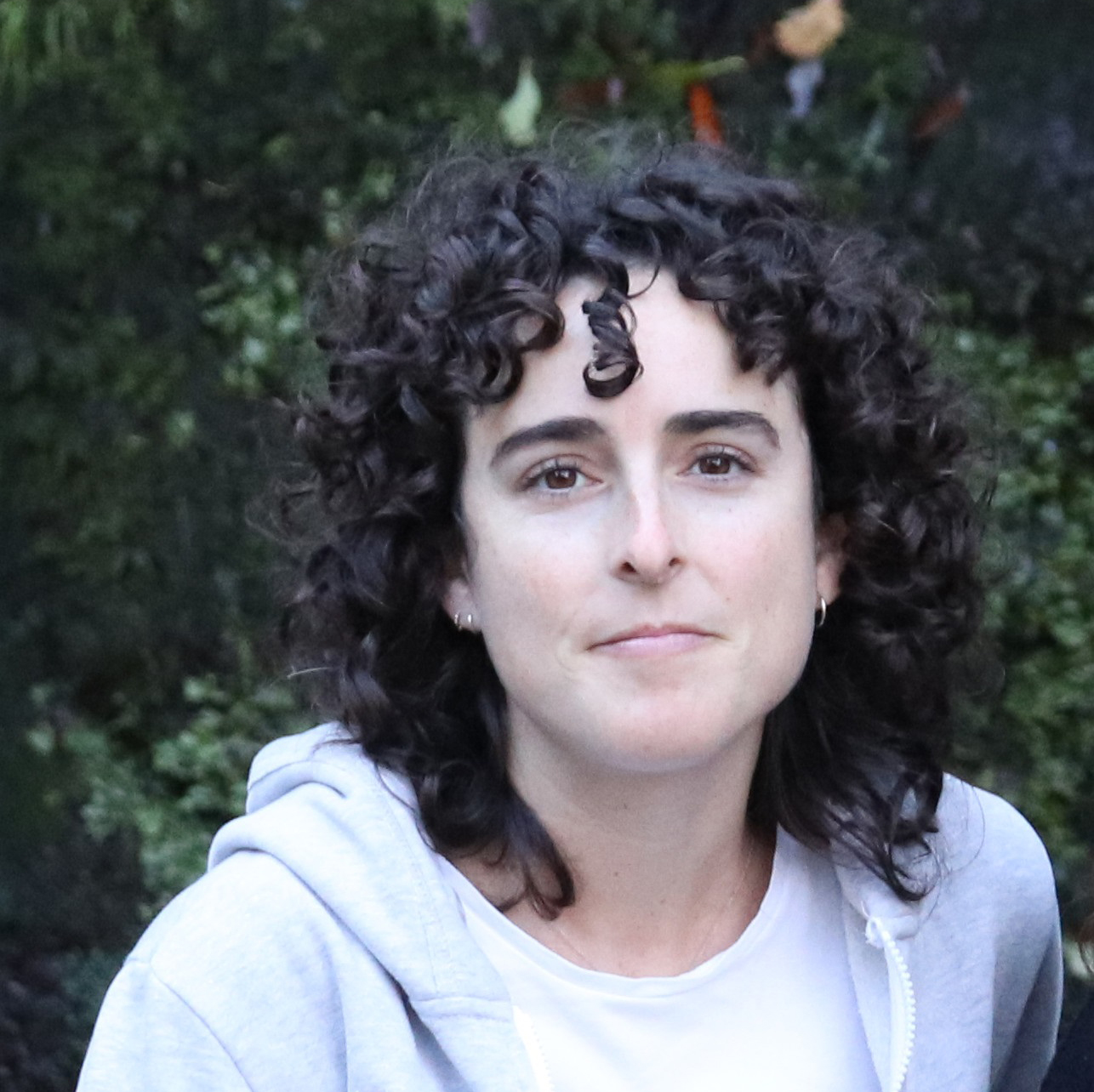
Cristina Ferrer Blanco
PhD Student, IHSM La Mayora in Spain
Visiting Fellow, Arnold Arboretum of Harvard University
Cristina Ferrer Blanco was a PhD student at the IHSM La Mayora in Spain. She studys reproductive biology of an early divergent angiosperm, Asimina triloba (Pawpaw), mainly focused on its incompatibility system.

Daniel Buonaiuto
Graduate Student, OEB, Wolkovich and Holbrook Labs
Fellow of the Arnold Arboretum of Harvard University
Daniel Buonaiuto was a PhD candidate in the Wolkovich and Holbrook Labs. He is interested in how plant communities are responding to global change, and how these responses are affecting the composition and function of North American ecosystems.

Jacob Suissa
Graduate Student, OEB, Friedman Lab
Fellow of the Arnold Arboretum of Harvard University
Jacob Suissa was a PhD Candidate in the Friedman Lab. He is an evolutionary biologist focusing on Ferns and Lycophytes. He takes a broad scale macroevolutionary approach as well as a small scale physiological approach to answer interesting questions about fern evolution.
Marwa Abdelal
Postgraduate Student, Northeastern University
Marwa Abdelal is a Co-Op Student from Northeastern University that worked in the Hopkins Lab.

Morgan Moeglein
2021-2022 Putnam Fellow
Assistant Professor, Norwich University
Visiting Scholar, Arnold Arboretum of Harvard University
Overwintering of leaf buds is a common strategy thought to allow plants to adapt to periodically stressful environments. Morgan Moeglein developed a comparative framework for understanding fundamental questions of the timing and mechanisms of leaf preformation in buds, its contribution to seasonal growth, and the conservation of these strategies using closely related species in the Arboretum’s living collections. Morgan is an assistant professor at Norwich University and a Visiting Scholar of the Arnold Arboretum.

Wendy Clement
Associate Professor, College of New Jersey
Visiting Scholar, Arnold Arboretum of Harvard University
Wendy Clement, a Visiting Scholar at the Arnold Arboretum and a Associate Professor at the College of New Jersey, studied floral traits using the living collections of Lonicera (honeysuckles) at the Arnold Arboretum. She is interested in using trait data, such as color, morphology, rewards, and floral scent to describe the evolutionary history of floral form in Lonicera and identify potential instances of shifts in pollination syndrome.

Wenying Liao
Postdoctoral Fellow, OEB, Taylor Lab
Wenying Liao was a Postdoctoral fellow in the Taylor Lab. Wenying combines statistical and theoretical modeling, greenhouse work, and policy analysis to study the global nitrogen cycle, focusing on the understanding of symbiotic nitrogen fixation in natural forests and the sustainable management of nitrogen use in agricultural landscapes.

Jake Grossman
2018-2020 Putnam Fellow
A plant ecophysiologist, Jake Grossman has a strong interest in forest ecosystems and trees. Jake examined drought vulnerability and water use strategies in maples (Acer spp). Combining field and greenhouse experiments, he analyzed the potential effects of climate change on the Arboretum’s collections. Jake is an assistant professor at St. Olaf College in the Biology and Environmental Studies departments.
- Grossman JJ*. 2023. Phenological physiology: seasonal patterns of plant stress tolerance in a changing climate. New Phytologist 237: 1
- Grossman JJ*. 2021. Evidence of constrained divergence and conservatism in climatic niches of the temperate Maples (Acer L.). Forests 12(5): 535. Abstract
- Kovaleski AP*, Grossman JJ*. 2021. Standardization of electrolyte leakage data and a novel liquid nitrogen control improve measurements of cold hardiness in woody tissue. Plant Methods 17: 53. (APK and JJG contributed equally) Abstract

Elizabeth Spriggs
2017-2019 Putnam Fellow
Elizabeth Spriggs is an evolutionary biologist with a passion for plant conservation. Her research focused on the chestnuts and ashes (Castanea and Fraxinus) – iconic, but severely threatened, North American trees. Using phylogeography and genomics, she examined genetic diversity and population structure in relation to disease with an eye towards identifying individuals of conservation value. Currently, Beth is as a data scientist at Amazon Robotics.
- Spriggs EL*, Fertakos ME. 2021. Evolution of Castanea in North America: restriction-site-associated DNA sequencing and ecological modeling reveal a history of radiation, range shifts, and disease. American Journal of Botany 108: 1692-704. Abstract
2021

Al Kovaleski
2019-2021 Putnam Fellow
Al Kovaleski is a plant physiologist interested in understanding how woody plants adapt to freezing stresses during winter. Al examined cold hardiness, chilling response, and resumption of growth to recalibrate phenological models of budbreak in diverse tree species in the Arboretum. Al is an assistant professor at the University of Wisconsin, Madison.
- Kovaleski AP*. 2022. Woody species do not differ in dormancy progression: Differences in time to budbreak due to forcing and cold hardiness. Proceedings of the National Academy of Sciences 119: e2112250119. Abstract
- Kovaleski AP*, Grossman JJ*. 2021. Standardization of electrolyte leakage data and a novel liquid nitrogen control improve measurements of cold hardiness in woody tissue. Plant Methods 17: 53. (APK and JJG contributed equally) Abstract
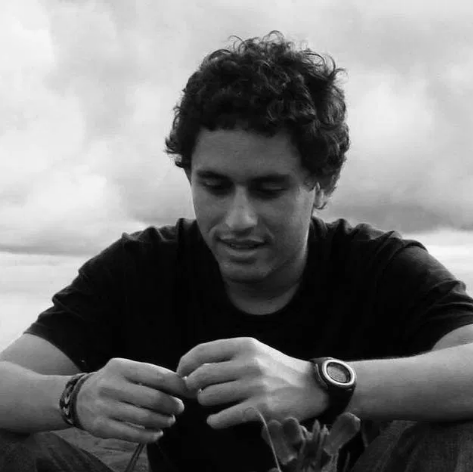
Caio Guilherme Pereira
Postdoctoral Fellow, MIT
Visiting Fellow, Arnold Arboretum of Harvard University
Caio Guilherme Pereira is a postdoctoral fellow at MIT and a visiting fellow at the Arnold Arboretum. Caio aims to understand the molecular mechanisms of plant-environment interaction and discover how this interaction plays a role in the underlying growth pattern, composition and diversity of the plants.

Catherine Chamberlain
Graduate Student, OEB, Wolkovich and Holbrook Labs
Fellow of the Arnold Arboretum of Harvard University
Cat Chamberlain was a PhD student in the Wolkovich and Holbrook Labs. She is interested in understanding how anthropogenic climate change affects plant communities and plant phenology.

Charlie Hale
As a research assistant in the Hopkins Lab, Charlie Hale contributed to a variety of projects which combine field and greenhouse experiments with genomic analyses to study mechanisms of speciation in plants. Currently, he is a graduate student at Cornell University.

Kristel Schoonderwoerd
Graduate Student, OEB, Friedman Lab
Fellow of the Arnold Arboretum of Harvard University
Kristel Schoonderwoerd was a PhD student in the Friedman Lab. Interested in many facets of evolutionary botany, she studied the diverse strategies temperate tree species use to overwinter embryonic leaves in resting buds and expand these leaves in the spring.

Samridhi Chaturvedi
Postdoctoral Fellow, OEB, Hopkins Lab
Fellow of the Arnold Arboretum of Harvard University
Samridhi Chaturvedi was a postdoctoral fellow in the Hopkins Lab. With an interest in the genomic basis of adaptation and speciation, she aimed to understand the genomic patterns of hybridization and introgression in Phlox species.

Steve Gougherty
2019 Deland Award
PhD Student, Boston University
Steve is developing a new framework to consider nutrient use efficiency (NUE) in plants beyond the traditional methods focused on vegetative tissues. He will measure the carbon and nitrogen costs of reproduction in samaras, a type of fruit. Samaras are green during seed development, suggesting active photosynthesis, but tend to lose their pigments as seeds mature. He will assess whether carbon acquisition and nutrient recycling during reproduction are large enough to influence whole plant NUE.
2020

Amelia Keyser-Gibson
Research Assistant, Friedman and Weld Hill Labs
Amelia Keyser-Gibson, Research Assistant, Friedman Lab and Weld Hill Labs, studied the reproductive development of conifers, as well as various other plant morphological questions.

Barry Logan
Professor and Associate Dean of Bowdoin College
Visiting Scholar, Arnold Arboretum of Harvard University.
Barry Logan in collaboration with Dave Des Marais, examined divergent host spruce responses to parasitic dwarf mistletoe infection in the Arboretum. Barry is a Professor and Associate Dean of Bowdoin College and was a Visiting Scholar of the Arnold Arboretum of Harvard University.

Jake Grossman
2018-2020 Putnam Fellow
A plant ecophysiologist, Jake Grossman has a strong interest in forest ecosystems and trees. Jake examined drought vulnerability and water use strategies in maples (Acer spp). Combining field and greenhouse experiments, he analyzed the potential effects of climate change on the Arboretum’s collections. Jake is an assistant professor at St. Olaf College in the Biology and Environmental Studies departments.
- Grossman JJ*. 2023. Phenological physiology: seasonal patterns of plant stress tolerance in a changing climate. New Phytologist 237: 1
- Grossman JJ*. 2021. Evidence of constrained divergence and conservatism in climatic niches of the temperate Maples (Acer L.). Forests 12(5): 535. Abstract
- Kovaleski AP*, Grossman JJ*. 2021. Standardization of electrolyte leakage data and a novel liquid nitrogen control improve measurements of cold hardiness in woody tissue. Plant Methods 17: 53. (APK and JJG contributed equally) Abstract

Jie Yun
Graduate Student, MIT
Visiting Fellow, Arnold Arboretum of Harvard University
As environmental engineer with interests in plant biology, Jie Yun is focused on solving practical environmental problems through the interdisciplinary research. She was a PhD student at MIT and Visiting Fellow of the Arnold Arboretum working in the Des Marais Lab.

Natalia Pabón-Mora
2018 Jewett Prize
Associate Professor, University of Antioquia in Colombia
Visiting Scholar, Arnold Arboretum of Harvard University
Natalia is interested in understanding the evolution of flower and fruit development and the morphological changes driving diversification of flowering plants. At the Arboretum, she will focus on fruit diversity by comparing morphological and anatomical features and transcriptomic data of members of the Rubiaceae with distinct fruit types.
- Suárez-Baron H, Alzate JF, Ambrose BA, Pelaz S, González F, Pabón-Mora N. 2023. Comparative morphoanatomy and transcriptomic analyses reveal key factors controlling floral trichome development in Aristolochia (Aristolochiaceae). Journal of Experimental Botany74(21):6588–6607. Abstract
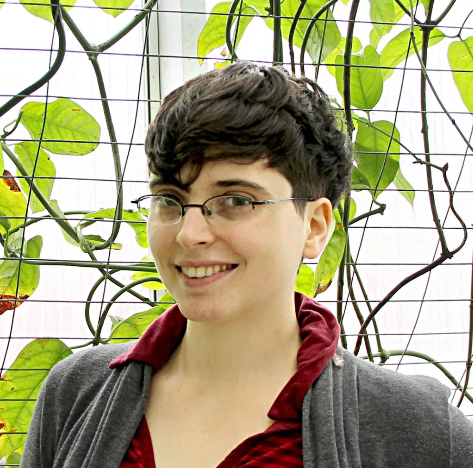
Rebecca Povilus
Postdoctoral Fellow, MIT
Visiting Fellow, Arnold Arboretum of Harvard University
Rebecca Povilus, Postdoctoral Fellow, MIT and Visiting Fellow, Arnold Arboretum of Harvard University, is interested in the idea that molecular resources are important tools for connecting how changes at the gene and genome level affect developmental processes. She focuses on how evolutionary changes during the development of the egg-producing structure could give rise to the wide array of egg-sac morphologies in angiosperms.
Wayne Daly
Postgraduate student, Wolkovich Lab
Wayne Daly graduated from Trinity College Dublin in 2016 with an MSc in biodiversity and conservation. He completed a study on geoxylic suffrutices, and a dissertation on salt marsh ecology and plant community compositions. As an intern in the Wolkovich Lab, he will learn more about the time effects and pressures on plants and plant phenology from various environmental factors and anthropogenic activities.

Kasia Zieminska
2016-2018 Putnam Fellow
Kasia Zieminska aims to understand how tree anatomy impacts function. By focusing on diverse species in the Arboretum’s living collections, she will examine the relationship between diversity in anatomical structure and water storage mechanisms and how this relationship influences plant biodiversity and ecological strategies. Kasia is a research fellow at Western Sydney University, Australia.
- Ziemińska K*. 2023. The role of imperforate tracheary elements and narrow vessels in wood capacitance of angiosperm trees. IAWA Journal 1(aop):1–14. Abstract
- Ziemińska K*, Rosa E, Gleason SM, Holbrook NM. Wood day capacitance is related to water content, wood density, and anatomy across 30 temperate tree species. Plant Cell Environ. 43: 3048– 3067.
2019
Adam Roddy
2016 Jewett Prize
Post-doctoral fellow, Yale University
Visiting Fellow, Arnold Arboretum of Harvard University
Examining 25 species of basal angiosperms in the Arboretum’s living collections, Adam will measure physiological traits associated with water balance to examine the trade-offs between water transport, water storage, and the ability to maintain turgid and showy flowers.

Elizabeth Spriggs
2017-2019 Putnam Fellow
Elizabeth Spriggs is an evolutionary biologist with a passion for plant conservation. Her research focused on the chestnuts and ashes (Castanea and Fraxinus) – iconic, but severely threatened, North American trees. Using phylogeography and genomics, she examined genetic diversity and population structure in relation to disease with an eye towards identifying individuals of conservation value. Currently, Beth is as a data scientist at Amazon Robotics.
- Spriggs EL*, Fertakos ME. 2021. Evolution of Castanea in North America: restriction-site-associated DNA sequencing and ecological modeling reveal a history of radiation, range shifts, and disease. American Journal of Botany 108: 1692-704. Abstract

Franchesco Molina
Graduate Student, OEB, Hopkins Lab
Fellow of the Arnold Arboretum of Harvard University
In the Hopkins Lab, Franchesco Molina investigated how the genes involved in meiosis are locally adapted to different temperatures in Arabidopsis arenosa. Francheso was a PhD Student and Fellow of the Arnold Arboretum

Harold Suarez Baron
2018 Deland Award
PhD Candidate, University of Antioquia in Colombia
Visiting Fellow, Arnold Arboretum of Harvard University
In Aristolochia (dutchman’s pipe), the trichomes (hairs) found on flowers are important for attracting and retaining flies for pollination. Harold focuses on the genetic mechanisms underlying trichome development in this non-model plant.
- Suárez-Baron H, Alzate JF, Ambrose BA, Pelaz S, González F, Pabón-Mora N. 2023. Comparative morphoanatomy and transcriptomic analyses reveal key factors controlling floral trichome development in Aristolochia (Aristolochiaceae). Journal of Experimental Botany74(21):6588–6607. Abstract
Henry North
Graduate Student, OEB, Hopkins Lab
As part of the Erasmus Mundus Master Program in Evolutionary Biology, Henry North conducted research in the Hopkins Lab for 6 months. Henry focused on the genetic mechanisms of pollination in Phlox.

Julia Marrs
Graduate Student, Boston University
Visiting Fellow, Arnold Arboretum of Harvard University
Julia Marrs was a PhD Candidate at Boston University and Visiting Felllow of the Arnold Arboretum of Harvard University. Julia’s interests include terrestrial carbon cycling and remote sensing of vegetation. She investigated the link between the solar-induced chlorophyll fluorescence signal measured by tower and satellite platforms and plant physiological processes occurring at the leaf level.
Laura Clerx
Research Assistant, Friedman Lab
As a research assistant in the Friedman Lab, Laura Clerx studied early evolutionary thought, with a focus on biologists (especially botanists) who made contributions to evolutionary theory, both prior to and concurrent with Charles Darwin.
Matt Farnitano
Research Assistant, OEB, Hopkins Lab
Matt Farnitano was a research assistant in the Hopkins Lab. Starting Fall 2019, Matt is a graduate student at the University of Georgia.
Shayla Salzman
Graduate Student, OEB, Hopkins and Pierce Labs
Fellow of the Arnold Arboretum of Harvard University
Shayla Salzman was a PhD Candidate in OEB and Fellow of the Arnold Arboretum. In the Hopkins and the Pierce Labs, Shayla focused on Cycads and their weevil pollinators and how scent variation leads to the species-specific mutualisms.
2018
Diana Bernal
Postdoctoral Fellow, Northeastern University
Visiting Fellow, OEB, Hopkins Lab
Diana Bernal was a visiting fellow in the Hopkins Lab. She investigated the developmental mechanisms underlying variation of the reproductive mode in the Brachiaria.
Federico Roda
Postdoctoral Fellow, OEB, Hopkins Lab
Fellow of the Arnold Arboretum of Harvard University
Federico Roda is interested in understanding the functional mechanisms of environmental adaptation in plants. As postdoctoral fellow in the Hopkins Lab, Federico investigated the molecular basis of the evolution of reproductive isolation in the genus Phlox.
Heather Briggs
Postdoctoral Fellow, OEB, Hopkins Lab
Fellow of the Arnold Arboretum of Harvard University
Heather Briggs was a postdoctoral researcher in the Hopkins Lab. She focused on understanding pollination behavior of Battus philenor on Texas Phlox.
Isabelle Chuine
CNRS Research Director, Centre d’Ecologie Fonctionnelle & Evolutive
Bullard Fellow, Harvard Forest
Isabelle Chuine is CNRS research director at the Centre d’Ecologie Fonctionnelle & Evolutive in Montpellier, France. As a Bullard Fellow, her project tackled the ongoing challenge of providing robust forecasts of climate change impacts on forest trees phenology. She tested key hypotheses on the regulation of cell seasonal activity using a series of experiments combining ecophysiology and biotracing methods.

Jessica Savage
2014-2016 Putnam Fellow
2017 Sinnott Award
2023 Jewett Prize
Associate Professor, University of Minnesota, Duluth
Visiting Scholar, Arnold Arboretum of Harvard University
Building on her work as a Putnam fellow, Jessica Savage will examine a diverse set of species in the Arboretum’s living collections to see how the anatomical diversity of phloem, the part of the vascular system responsible for sugar transport, may impact patterns of vegetative and reproductive growth.
- Savage JA, Kiecker T, McMann N, Park D, Rothendler M, Mosher K. 2022. Leaf out time correlates with wood anatomy across large geographic scales and within local communities. New Phytologist 235: 953-64. Abstract

Juan M. Losada
Postdoctoral Fellow, Friedman, Holbrook, and Leslie Labs
Juan M. Losada was a postdoctoral fellow in the Friedman, Holbrook and Leslie Labs. He is interested in the biochemical communication events between the male and female during pollination and fertilization. He focused on the evolution of the nourishing behavior of the perisperm and endosperm.

Kasia Zieminska
2016-2018 Putnam Fellow
Kasia Zieminska aims to understand how tree anatomy impacts function. By focusing on diverse species in the Arboretum’s living collections, she will examine the relationship between diversity in anatomical structure and water storage mechanisms and how this relationship influences plant biodiversity and ecological strategies. Kasia is a research fellow at Western Sydney University, Australia.
- Ziemińska K*. 2023. The role of imperforate tracheary elements and narrow vessels in wood capacitance of angiosperm trees. IAWA Journal 1(aop):1–14. Abstract
- Ziemińska K*, Rosa E, Gleason SM, Holbrook NM. Wood day capacitance is related to water content, wood density, and anatomy across 30 temperate tree species. Plant Cell Environ. 43: 3048– 3067.

Marjorie Lundgren
Postdoctoral Fellow, MIT
Visiting Fellow, Arnold Arboretum of Harvard University
Marjorie Lundgren is a plant ecophysiologist. As a postdoctoral fellow at MIT and Arboretum Visiting Fellow, she focused on deconstructing the components of perenniality with an aim to inform crop improvement strategy.

Morgan Moeglein
Graduate Student, Yale University
Visiting Fellow, Arnold Arboretum of Harvard University
Morgan Moeglein, a graduate student in the Edwards Lab at Yale University, studied the environmental and genetic factors governing leaf shape in the genus Viburnum utilizing the living collection of the Arnold Arboretum.
Sevan Suni
Postdoctoral Fellow, OEB, Hopkins Lab
Fellow of the Arnold Arboretum of Harvard University
As a research associate in the Hopkins Lab, Sevan Suni investigated both the ecological factors and underlying genetic mechanisms that contribute to adaptation and speciation in Phlox populations. She is now an assistant professor at the University of San Francisco.
2017

Callin Switzer
Graduate Student, OEB, Hopkins Lab
Fellow of the Arnold Arboretum of Harvard University
Callin Switzer was a PhD Candidate in the Hopkins Lab. He is investigating bumblebee buzz pollination to understand how bees buzz and why there is variation in buzzing. After the Arboretum, Callin was a postdoctoral fellow in the eScience Institute at the University of Washington.
Cam Webb
Research Associate, Arnold Arboretum
Research associate and principal investigator Cam Webb studies the evolution and ecology of tropical plants, and is experimenting with new informatics and capacity-building approaches to plant inventory and taxonomy. Currently, Cam is collaborating with co-PI Sarah Mathews on a National Science Foundation funded project that focuses on the ecology, biogeography, and biodiversity informatics of trees in Indonesian forests.

David Des Marais
Research Associate, OEB
Senior Fellow of the Arnold Arboretum of Harvard University
The research of David Des Marais, Senior Fellow, focuses on how plants interact with the environment and the variation in these interactions between species. Understanding how plants adapt to the local environment can increase our ability to conserve plant populations. Dave is now an assistant professor at MIT.
Elizabeth Wolkovich
Associate Professor, University of British Columbia, Canada
Visiting Scholar, OEB, Harvard University
Elizabeth Wolkovich is interested in how communities assemble and disassemble in light of global changes. The Wolkovich lab focuses on testing and understanding underlying mechanisms using both theoretical techniques and field experiments to study how current and future plant communities are shaped.
Ignacio Morales-Castilla
Research Associate, OEB, Wolkovich Lab
Fellow of the Arnold Arboretum of Harvard University
Ignacio Morales-Castilla was a research associate working in the the Wolkovich Lab. His research focused on the role of historical and evolutionary processes on current diversity patterns. He is interested in better understanding and predicting species and ecosystem vulnerability in a context of Global Change.

Jack Smith
Harvard University – 2019
2017 DaRin Butz Intern in the Friedman Lab
Jack Smith was a Harvard undergraduate studying Environmental Science and Public Policy. Jack worked in the Friedman lab exploring plant morphology and development.
Johan Arango
Master's Student, Harvard Extension School, Wolkovich Lab
Johan Arango earned his bachelor’s degree in Agroindustrial Engineering. He is currently pursuing a Master’s Degree in Sustainability and joined the Wolkovich Lab in the Fall of 2016. He was drawn to the lab because he is very interested in the effect that climate variation has on plants. He is very interested in societies’ reliance on plants and how a growing global population along with expanding markets will pose challenges and opportunities to achieve sustainability, especially in food systems.
Jonathan Davies
Associate Professor, McGill University
Visiting Scholar, Arnold Arboretum of Harvard University
Jonathan Davies is an Associate Professor at McGill University in Canada. His work broadly addresses questions related to the distribution of biodiversity and the challenges posed to its conservation through recent changes to the environment.

Jonathan Mahoney
2016 Deland Award
Master’s student, University of Connecticut
Visiting Fellow, Arnold Arboretum of Harvard University
As part of the Aronia breeding program, Jonathan Mahoney is investigating the mating systems and compatibility issues of intergeneric hybridization between Aronia and related taxa.
- Mahoney JD, Brand MH. 2021. Pre- and postzygotic barriers associated with intergeneric hybridization between Aronia melanocarpa (Michx.) Elliott x Pyrus communis L. and ×Sorbaronia dippelii (Zabel) CK Schneid. x Pyrus communis. HortScience 56(2): 177-184. Abstract

Meng Li
2016 Hu Student/Postdoctoral Exchange Award
Ph.D student, Chengdu Institute of Biology, Chinese Academy of Sciences
Visiting Fellow, Arnold Arboretum of Harvard University
Li is interested in the role of hybridization on species diversification. As part of his Hu Award, Li will spend one year at the Arboretum to examine hybridization in Sorbus.
- Li M, Ohi-Toma T, Gao Y-D, Xu B, Zhu Z-M, Ju W-B, Gao X-F. 2017. Molecular phylogenetics and historical biogeography of Sorbus sensu stricto (Rosaceae). Molecular Phylogenetics and Evolution 111: 76-86.

Rebecca Povilus
Graduate Student, OEB, Friedman Lab
Fellow of the Arnold Arboretum of Harvard University
Rebecca Povilus was a PhD candidate in the Friedman Lab. She is interested in the idea that molecular resources are important tools for connecting how changes at the gene and genome level affect developmental processes. She focused on how evolutionary changes during the development of the egg-producing structure could give rise to the wide array of egg-sac morphologies in angiosperms.
Rob Baker
NSF Postdoctoral Fellow, University of Wyoming
Visiting Fellow, Arnold Arboretum of Harvard University
As a NSF post-doctoral fellow in Cynthia Weinig’s lab at the University of Wyoming, Rob Baker is investigating the relationship between anatomical features and water use efficiency in diverse cultivars of Brassica rapa.
2016

Chase Mason
2015-2016 Putnam Fellow
The research of Chase Mason is focused on the evolution of leaf physical and chemical defenses in relation to the leaf economics spectrum (LES), habit, and species’ source climate across woody genera. LES relates the initial investment of carbon during leaf development with the net carbon gain of that leaf. Chase is an assistant professor at the University of British Columbia, Okanagan.
- De La Pascua DR, Smith‐Winterscheidt C, Dowell JA, Goolsby EW, Mason CM*. 2020. Evolutionary trade‐offs in the chemical defense of floral and fruit tissues across genus Cornus. Appl Plant Sci. 107(9):1260–73.
- Mason CM*, LaScaleia MC, De La Pascua DR, Monroe JG, Goolsby EW. 2020. Learning from dynamic traits: Seasonal shifts yield insights into ecophysiological trade-offs across scales from macroevolutionary to intraindividual. Int J Plant Sci. 181: 88-102.
Dan Flynn
Research Associate, OEB, Wolkovich Lab
Dan Flynn was a research associate in the Wolkovich Lab. He is interested in understanding the processes in which plant communities assemble and disassemble and how this will influence the ability of ecosystems to adapt to global climate change.
Elisabeth Forrestel
Postdoctoral Fellow, OEB, Wolkovich Lab
Elisabeth Forrestel was a postdoctoral fellow in the Wolkovich Lab. The focus of her research was to understand how an important economic crop, wine grapes, respond to climate change. She will study their responses both in the field and after manipulating their environment in growth chamber studies.
Eric Goolsby
Postdoctoral Fellow, Yale University
Visiting Fellow, Arnold Arboretum of Harvard University
Eric Goolsby is a post-doctoral researcher at Edwards Lab at Brown University. His research focuses on developing methods to examine the evolution of phenotypic responses to abiotic stress. The Arboretum collections allowed him to test his methods in a wide range of species.
Grace Yu
Research Assistant, Friedman Lab
Grace Yu, a research assistant in the Friedman Lab, was involved in projects studying angiosperm (flowering plant) reproductive and fertilization biology and embryology.
Jehane Samaha
Research Assistant, OEB, Wolkovich Lab
Jehane Samaha was a lab technician in the Wolkovich Lab. She examined functional traits and phenology of trees out in the field, in the lab, and in the greenhouse to understand how communities respond to global climate change.

Jessica Savage
2014-2016 Putnam Fellow
Jessica Savage is interested in understanding how seasonal changes in vascular activity influence flowering and carbon allocation. Specifically she compared xylem and phloem anatomy, physiology and function in precocious flowering species (those that flower before the leaves emerge) with related species that flower later in the season. Jessica is an associate professor at the University of Minnesota, Duluth.
- Savage JA*. 2019. A temporal shift in resource allocation facilitates flowering before leaf out and spring vessel maturation in precocious species. American Journal of Botany 106(1):113–22.
- Savage JA*, Beecher SD, Clerx L, Gersony JT, Knoblauch J, Losada JM, Jensen KH, Knoblauch M, Holbrook NM. 2017. Maintenance of carbohydrate transport in tall trees. Nature Plants 3: 965-972
Rubén Sancho
Graduate Student, University of Zaragosa
Rubén Sancho was a PhD student at the University of Zaragosa in Spain. He worked with Dave Des Marais to sequence the transcriptome of multiple Spanish species of Brachypodium, an important model grass species.
Tim Savas
Research Assistant, OEB, Wolkovich Lab
A lab technician in the Wolkovich Lab, Tim Savas was involved in research focusing on community ecology in light of global climate change.

Jorge Lora
2012 Jewett Prize
Post-doctoral Fellow, Experimental Research Stations (CSIC), Spain
Visiting Fellow, Arnold Arboretum of Harvard University
Using members of the Arboretum’s Rosaceae collection, Jorge will compare ovule morphology from the earliest stages to maturity as well as the expression pattern of a gene thought to be important in ovule development.
- Losada JM, Hormaza JI, Lora J. 2017. Pollen–pistil interaction in pawpaw (Asimina triloba), the northernmost species of the mainly tropical family Annonaceae. American Journal of Botany 104:1891–1903
2015
Grey Monroe
Graduate Student, Colorado State University, Fort Collins
Grey Monroe was a Ph.D. student at Colorado State University, Fort Collins that worked in the Des Marais Lab. Grey was awarded an Eden grant to come to the Arnold Arboretum for his research.
Marcela Serna
Graduate Student, National University of Colombia
Visiting Fellow, Arnold Arboretum of Harvard University
A PhD candidate at the National University of Colombia, Marcela Serna is interested in understanding the role reproductive biology plays in the response of Magnolia to climate change to aid conservation efforts.
Stuart Graham
Erasmus Mundus Graduate Student, OEB, Hopkins Lab
Stuart Graham is a master’s student in the Erasmus Mundus Master Program in Evolutionary Biology. In the Hopkins Lab, he examined the behavior of pollinators that visit two sister species of Texas wildflower – Phlox drummondii and P. cuspidata.
2014

Ailene Ettinger
2014 Putnam Fellow
Ailene Ettinger focused on predicting the response and sensitivity of plants to a changing climate. By examining diverse trees growing in a common environment, she can identify functional traits that are important for success outside their historical conditions. Ailene is currently a quantitative ecologist at The Nature Conservancy.
- Wolkovich EM, Chamberlain CJ, Buonaiuto DM, Ettinger AK, Morales-Castilla I. 2022. Integrating experiments to predict interactive cue effects on spring phenology with warming. New Phytologist 235: 1719-1728. Abstract
- Ettinger AK*, Buonaiuto DM, Chamberlain CJ, Morales-Castilla I, Wolkovich EM. 2021. Spatial and temporal shifts in photoperiod with climate change. New Phytologist 230: 462-474. Abstract
- Ettinger AK*, Chamberlain CJ, Morales-Castilla I, Buonaiuto DM, Flynn DFB, Savas T, Samaha JA, Wolkovich EM. 2020. Winter temperatures predominate in spring phenological responses to warming. Nature Climate Change.
- Ettinger AK*, Gee S, Wolkovich EM. Phenological sequences: how early-season events define those that follow. American Journal of Botany. 105: 1-1010(12):1137–42.

Andrew Groover
2014 Sargent Award
Geneticist, USDA Forest Service
Visiting Scholar, Arnold Arboretum of Harvard University
Andrew will perform RNA sequencing (RNA-seq) on cambium and wood forming tissues of diverse trees in the Arboretum. Potentially important regulatory genes expressed in these tissues will be identified and analyzed as a first step to understanding the evolution of woody growth.

Guangyou Hao
2012-2014 Putnam Fellow
Utilizing the conifer collection, Guangyou Hao studied the differences in the structural, physiological, and mechanical properties of water transport and xylem hydraulics between evergreen and deciduous conifers (which shed their leaves). Guangyou is a professor at the Institute of Applied Ecology at the Chinese Academy of Sciences.
- Hao G-Y*, Lucero ME, Sanderson SC, Zacharias EH, Holbrook NM. 2013. Polyploidy enhances the occupation of heterogeneous environments through hydraulic related trade-offs in Atriplex canescens (Chenopodiaceae). New Phytologist 197: 970–8.
- Hao G-Y*, Wang A-Y, Sack L, Goldstein G, Cao K-F. 2013. Is hemiepiphytism an adaptation to high irradiance? Testing seedling responses to light levels and drought in hemiepiphytic and non-hemiepiphytic Ficus. Physiologia Plantarum 148: 74-86.
- Hao G-Y*, Wheeler JK, Holbrook NM, Goldstein G. 2013. Investigating xylem embolism formation, refilling and water storage in tree trunks using frequency domain reflectometry. Journal of Experimental Botany 64: 2321-2332.
Kate Morozova
Research Assistant, OEB, Friedman Lab
A recent graduate from the University of Connecticut, Kate Morozova was a Research Assistant in the Friedman Lab. One project that she was involved with was to examine the surface structure of Ginkgo biloba using scanning electron microscopy.

Ling Guo
2014 Jewett Prize
Curator, Beijing Botanic Garden
Visiting Scholar, Arnold Arboretum of Harvard University
Utilizing the Arboretum’s Malus collection, Ling will conduct research to improve the databases and knowledge of ornamental crabapples as a Registration Authority. Her database will focus on the flowers of Malus to improve the understanding of flowering time.

Rosanne Healy
2013 Sargent Award
Post-doctoral Fellow, University of Minnesota
Visiting Fellow, Arnold Arboretum of Harvard University
Rosanne focuses on ectomycorrhizal fungi that are present on roots of trees in well-spaced habitats like the Arboretum. She plans to sequence, identify and compare the fungal partners on the roots of Oak trees present at the Arboretum with those at the Harvest Forest. Matching funds for this award was generously provided by the Harvard Forest.
- Healy RA, Zurier H, Bonito G, Smith ME, Pfister DH. 2016. Mycorrhizal detection of native and non-native truffles in a historic arboretum and the discovery of a new North American species, Tuber arnoldianum sp. nov. Mycorrhiza 26: 781-792.
- Leicht-Young SA, Healy R, Del Tredici P. 2016. Observation of mycorrhizal colonization in roots in natural populations of Celastrus orbiculatus Thunb. The Journal of the Torrey Botanical Society 143: 322-324.
- Shao D, Tang S, Healy RA, Imerman PM, Schrunk DE, Rumbeiha WK. 2016. A novel orellanine containing mushroom Cortinarius armillatus. Toxicon 114: 65-74.
Ursula King
Graduate Student, University of Connecticut
Visiting Fellow, Arnold Arboretum of Harvard University
Ursula King is a PhD student at the University of Connecticut, interested in the evolution of aquatic plants. Specifically, she is developing molecular markers to explore the population dynamics and reproductive biology of Najas flexilis (Hydrocharitaceae), a monoecious, freshwater annual, in which pollination is entirely underwater. As a visiting fellow in the Friedman Lab, Ursula learned techniques to observe ovule development in this species.
2013
Biao Jin
Associate Professor, Yangzhou University
Visiting Scholar, Arnold Arboretum of Harvard University
A visiting scholar in the Friedman Lab, Biao Jin, Associate Professor at Yangzhou University, is interested in exploring the evolution of reproductive biology from gymosperms to angiosperms.

Cary Pirone
2011-2013 Putnam Fellow
The research interests of Cary Pirone lay primarily in understanding how chemical signals mediate biological phenomena. As a Putnam Fellow, she explored the complexities of pollination drops (ovular secretions) of several conifer species and ginkgo using biochemical and anatomical approaches. Cary is a scientist at the US Food and Drug Administration.
- Prior N, Little SA, Boyes I, Griffith P, Husby C, Pirone-Davies C*, Stevenson DW, Tomlinson PB, von Aderkas P. 2019. Complex reproductive secretions occur in all extant gymnosperm lineages: a proteomic survey of gymnosperm pollination drops. Plant Reprod. 32: 153-166.
- Nepi M, Little S, Guarnieri M, Nocentini D, Prior N, Gill J, Barry Tomlinson P, Ickert-Bond SM, Pirone C*, Pacini E, von Aderkas P. 2017. Phylogenetic and functional signals in gymnosperm ovular secretions. Annals of Botany 120: 923-936.
- Pirone-Davies C*, Prior N, Von Aderkas P, Smith D, Hardie D, Friedman WE, Mathews S. 2016. Insights from the pollination drop proteome and the ovule transcriptome of Cephalotaxus at the time of pollination drop production. Annuals of Botany 117: 973-984.
- Prior N, Little SA, Pirone C*, Gill JE, Smith D, Han J, Hardie D, O’Leary SJB, Wagner RE, Cross T, Coulter A, Borchers C, Olafson RW, and von Aderkas P. 2013. Application of proteomics to the study of pollination drops. Applications in Plant Science 1: 1300008.

Jorge Lora
2012 Jewett Prize
Post-doctoral Fellow, Experimental Research Stations (CSIC), Spain
Visiting Fellow, Arnold Arboretum of Harvard University
Using members of the Arboretum’s Rosaceae collection, Jorge will compare ovule morphology from the earliest stages to maturity as well as the expression pattern of a gene thought to be important in ovule development.
- Losada JM, Hormaza JI, Lora J. 2017. Pollen–pistil interaction in pawpaw (Asimina triloba), the northernmost species of the mainly tropical family Annonaceae. American Journal of Botany 104:1891–1903
Julien Bachelier
Postdoctoral Fellow, OEB, Friedman Lab
Julien Bachelier was a postdoctoral fellow in the Friedman Lab. His work focuses on the evolution of seed plants, particularly in the origin of flowering plants and the evolutionary development of flower and carpel. Julien’s thesis investigations compared the structure and development of flowers in closely related families such the Anacardiaceae and the Burseraceae.
Sarah Mathews
Sargent Fellow, Arnold Arboretum of Harvard University
Sarah Mathews was a Sargent Fellow and principal investigator at the Arnold Arboretum. She is interested in plant phylogenetics and in the question of how changes in light-sensing systems have influenced the ability of plants to survive and diversify. The Mathews Lab uses phylogenetic, genetic, and comparative physiological approaches to explore the links between molecular and functional evolution in the phytochrome photoreceptor family.

Stacey Leicht Young
2013 Putnam Fellow
The research of Stacey Leicht Young examined the ecological and reproductive strategies required for lianas (woody vines) to be successful in its environment utilizing the Arboretum’s Leventritt Shrub and Vine Garden. Stacey is a project scientist at RK&K (Rummel, Klepper & Kahl, LLP) in Baltimore, Maryland.
- Leicht-Young SA*, Healy R, Del Tredici P. 2016. Observation of mycorrhizal colonization in roots in natural populations of Celastrus orbiculatus Thunb. The Journal of the Torrey Botanical Society 143: 322-324.
Stephanie Conway
Graduate Student, University of Melbourne, Australia
Visiting Fellow, Arnold Arboretum of Harvard University
A PhD Candidate at the University of Melbourne in Australia, Stephanie Conway is interested in the role of the shoot apical meristem in the evolution of shoot architecture. As a visiting fellow in the Friedman Lab, she focused on shoot apical meristems utilizing the extensive collection of gymnosperms at the Arboretum.
Stuart Davies
Director, Center for Tropical Forest Science, Smithsonian Tropical Research Institute
Stuart Davies is the director of the Center for Tropical Forest Science at the Smithsonian Tropical Research Institute. He is interested in the ecology and evolution of tropical rainforests. Using a global network of large-scale long-term forest monitoring plots, he is investigating how environmental variation and change affect the diversity and dynamics of forests.

Iñaki Hormaza
Research Professor, La Mayora Experimental Station, Spain
Visiting Scholar, Arnold Arboretum of Harvard University
Iñaki Hormaza is a Research Professor at IHSM la Mayora in Spain. As a Fulbright Scholar in 2022, he visited the Arboretum to study fruit development in the paw paw. Earlier visits focused on flower and fruit development in the Rosaceae collection.
2012
Denise Johnstone
Faculty, University of Melbourne, Australia
From the University of Melbourne, Australia, the research of Denise Johnstone focuses on the physiological mechanisms involved in drought response in urban trees. As a visiting scholar in the Zwieniecki Lab, she examined xylem physiology during drought stress.
Elizabeth Ryan
Undergraduate Student, Brown University
Visiting Fellow, Arnold Arboretum of Harvard University
Elizabeth Ryan is an undergraduate student at Brown University working with Dov Sax. As an Arboretum Visiting Fellow, she worked with Michael Dosmann to research plant distributions in the face of climate change.
Erica Fadon
Graduate Student, Aula Dei Experimental Station–CSIC, Spain
Visiting Fellow, Arnold Arboretum of Harvard University
Erica Fadon is a PhD student in the Herrero Lab at the Pomology Department of the Aula Dei Experimental Station–CSIC, Spain. Using the Arboretum’s living collection, Erica closely examined the development of sweet cherry flowers (Prunus avium) in order to determine which stage the flowers undergo winter dormancy.
Francesca Secchi
Postdoctoral Fellow, AA, Zwieniecki Lab
The research of Francesca Secchi, a postdoctoral researcher in the Zwieniecki Lab, aims at understanding the principles of the biological function of vascular systems in plants. Her current research is focused on embolism formation and refilling using molecular, physiological, and biophysical approaches.

Hugh McAllister
2012 Sargent Award
Honorary Lecturer, University of Liverpool
Visiting Scholar, Arnold Arboretum of Harvard University
Hugh is interested in examining the evolutionary relationships of species within genera. By comparing chromosome numbers, he seeks to clarify the relationships between diploid and polyploid species. Previous visits to the Arnold Arboretum and the Harvard University Herbaria led to the publication of monographs on genera Betula and Sorbus.

Juan M. Losada
2011 Deland Award
PhD Candidate, Aula Dei Experimental Station–CSIC, Spain
Visiting Fellow, Arnold Arboretum of Harvard University
Juan M. Losada is a graduate student in the Pomology Department of the Aula Dei Experimental Station–CSIC, Spain. He is interested in the events between pollination and fertilization, primarily the role of arabinogalactan proteins in pollen-pistil interactions in Malus. During his stay at the Arboretum, he worked with Ned Friedman to expand his dissertation studies to include Magnolia and Stewartia.
Kang Min Ngo
Kang Min Ngo is a research assistant for the CTFS. Based in Singapore, she is interested in understanding the role of forests in a changing climate, particularly through carbon sequestration.
Maciej Zwieniecki
Sargent Fellow, Arnold Arboretum of Harvard University
Arnold Arboretum Sargent Fellow Maciej Zwieniecki addresses the structure, surface chemistry, and mechanical properties of the network of fluid conduits in plants. The Zwieniecki Lab studies the specialized cells that distribute water, solutes, and energy over long distances, as well as how the terminal exchange surfaces (roots and leaves) interface with the environment.
Noeline Morrissey
Graduate Student, Harvard Extension School, Friedman Lab
The research of Noeline Morrissey, a master’s student in the Friedman Lab, focused on trichome morphology and development. Comparing the multiple forms of trichomes in hops (Humulus lupulus) and related genera should shed light on the evolution of these highly specialized structures.
2011
Brian Morgan
2010-2011 Putnam Fellow
Brian Morgan focuses on the use of geographic information systems (GIS) technology as a management and decision-making tool for public gardens. Brian created a GIS for the Arnold Arboretum based on the ArcGIS Public Garden Data Model, and a web-based application for performing collections research. Brian is the executive director of the Alliance for Public Gardens GIS.
David Kenfack
Coordinator, Center for Tropical Forest Science-Smithsonian Institution Global Earth Observatory (CTFS–SIGEO) Africa Program
David Kenfack is the coordinator for the Center for Tropical Forest Science-Smithsonian Institution Global Earth Observatory (CTFS–SIGEO) Africa Program. His primary interests are the use of plant systematics to explore species limits and exploring the ecological processes that explain tropical forest dynamics in Africa.

E. Scherbatskoy
2011 Deland Award
Undergraduate Student, University of Colorado, Boulder
Working in the Friedman Lab with Julien Bachelier, the focus is on the comparative morphology of female gametophytes in diverse conifers in an effort to shed light on the evolution of female gametophyte development
Erin Kurten
Postdoctoral Fellow, AA, Davies Lab
Erin Kurten was a postdoctoral fellow working with Stuart Davies and CTFS-AA. Erin’s work focuses on tropical plant community ecology and the interactions which underlie community assembly processes and biogeographic patterns. With CTFS, Erin investigated how tree species adapt their phenology in response to drought stress in the seasonally-dry tropical forests of Southeast Asia.

Iñaki Hormaza
Research Professor, La Mayora Experimental Station, Spain
Visiting Scholar, Arnold Arboretum of Harvard University
Iñaki Hormaza is a Research Professor at IHSM la Mayora in Spain. As a Fulbright Scholar in 2022, he visited the Arboretum to study fruit development in the paw paw. Earlier visits focused on flower and fruit development in the Rosaceae collection.
Rob Baker
Graduate Student, University of Colorado, Boulder
Visiting Fellow, Arnold Arboretum of Harvard University
As a graduate in the Diggle Lab at the University of Colorado, Rob focused on the evolution of shoot architecture by examining the molecular developmental pathways within and among populations, where genetic divergence, adaptation, and speciation occur. Specifically, he examined natural variation in shoot architecture patterning in Mimulus gattatus.
2010
Abby Hird
2008-2010 Putnam Fellow
Conservation of threatened plant species is of great interest to Abby Hird. As the conservation director for Botanic Gardens Conservation International–United States (BGCI-US), she collaborates with the Arnold Arboretum to implement the recommendations of the North American Collections Assessment. The goal is to preserve threatened taxa and increase genetic diversity by preserving wild-collected plants at the Arboretum and other botanical gardens.
2009

Jennifer Winther
2007-2009 Putnam Fellow
As a Putnam Fellow, Jennifer Winther established a research program on the developmental genetic mechanisms underlying male and female identity in the reproductive structures (cones) of gymnosperms. Now an assistant professor in biology at Grand Valley State University, Michigan, she continues this research with her undergraduate students.
2007

Richard Primack
2006-2007 Putnam Fellow
Richard Primack is a professor of biology at Boston University. The Putnam Fellowship enabled Richard to evaluate the effects of climate change on plants and animals at the Arnold Arboretum and Concord. It also fostered an ongoing collaboration with Harvard Professor Chuck Davis to focus on how the evolutionary relationships between species play a role in adaptation to climate changes.
2006

Eric Hsu
2005-2006 Putnam Fellow
As a Putnam Fellow, Eric Hsu investigated the Arboretum’s Acer (maple) and Stewartia collections to build a case for their designation as national collections by the American Public Garden Association. Eric is currently the Plant Information Coordinator at Chanticleer Gardens.
2005

Nina Theis
2004-2005 Putnam Fellow
Nina Theis, in collaboration with Arboretum taxonomist Jianhua Li and Michael Donoghue at Yale, used molecular phylogenetics to investigate the evolution of fragrance in Lonicera (honeysuckle) and Syringa (lilac) as a Putnam Fellow. Nina continues to study the ecology of fragrance production in her current role a professor of biology at Elms College in Chicopee, Massachusetts.

Tim Brodribb
2005 Putnam Fellow
Tim Brodribb studied the Arboretum’s extensive conifer collection for his Putnam Fellowship, comparing the evolutionary trends of leaf structure and function for Southern and Northern Hemisphere species. Currently, he is a professor at the University of Tasmania, Australia, investigating the deep time evolution of veins and photosynthesis in leaves.
2004

Sonali Saha
2002-2004 Putnam Fellow
As Putnam Fellow, Sonali Saha collaborated with Harvard Professor Noel Michele Holbrook in investigations of the physiological properties of bamboo species. She is currently a senior biologist at the Institute for Regional Conservation in Miami and an adjunct professor of biology at Miami Dade College.
2003

Lawren Sack
2002-2003 Putnam Fellow
Lawren Sack studied hydraulic conductance and structure of tree leaves as a Putnam Fellow. Now he is a professor of plant physiology and ecology at UCLA, and a faculty affiliate for UCLA’s Center for Tropical Research. His research continues to focus on leaf and whole plant water transport, as well as the ecology and physiology of plant species coexistence, the evolution of diversity of leaves, forest dynamics and ecohydrology, and conservation physiology.

Sonia Uyterhoeven
2002-2003 Putnam Fellow
Sonia Uyterhoeven is the head of horticulture at Greenwood Gardens in New Jersey. As a Putnam Fellow, she evaluated
2002

Michael Dosmann
2000-2002 Putnam Fellow
Keeper of Living Collections
Arnold Arboretum of Harvard University
As a Putnam Fellow, Michael Dosmann studied the taxonomy of katsura trees (Cercidiphyllum), the reproductive biology of a rare monkshood, the efficacy of plant exploration efforts, and helped coordinate plant selection and sequence for the Leventritt Shrub and Vine Garden. Michael returned to the Arboretum in 2007 and is now the keeper of living collections where he guides the Arboretum’s stewardship and development of its collection of temperate woody species. His work explores new strategies and tactics aimed at improving collections management and enhancing the use of Arboretum collections for research. Additionally, he conducts research on the physiological ecology of woody plants and participates in floristic efforts through domestic and foreign plant exploration.

Youngdong Kim
2001-2002 Putnam Fellow
Youngdong Kim was awarded a Putnam Fellowship to reconstruct the phylogeny of the genus Berberis (barberry) to resolve the evolutionary relationships among its Asian and North American species. Youngdong is currently a professor of biology at Hallym University in South Korea.
2001

Donglin Zhang
2001 Putnam Fellow
Putnam Fellow Donglin Zhang employed morphological and genetic approaches to study the origins of tree lilacs and a new Chamaecyparis (Atlantic whitecedar) cultivar, ‘Quiana’. He is a professor at the University of Georgia. His research focuses on conservation and the utilization of germplasm of ornamental plants.
1999

Jianhua Li
1998-1999 Putnam Fellow
As Putnam Fellow, Jianhua Li studied the phylogenetic relationships of witch hazels (Hamamelis) and studied the classification of tree lilacs (Syringa) with Arboretum propagator Jack Alexander. After his fellowship, Jianhua served a senior research scientist at the Arboretum until 2009. Jianhua is a professor at Hope College.
1998

Katherine Gould Mathews
1997-1998 Putnam Fellow
Katherine Gould Mathews first worked with Arnold Arboretum scientists as a curatorial assistant at the Harvard University Herbaria. As a Fellow, she studied the phylogenetics of the eastern North American/eastern Asian disjunct genus Triosteum (Caprifoliaceae). Katherine is currently an associate professor of biology at Western Carolina University, where her research focuses on the evolutionary history of southern Appalachian plant species.
Keiko Satoh
1997-1998 Putnam Fellow
During her appointment as a Putnam Fellow, Keiko Satoh worked on the E. H. Wilson archival collection, particularly researching his plant introductions and their distribution by the Arboretum. Her focus on the distribution of Metasequoia (dawn redwood) culminated in an article for Arnoldia on the global travels of the plant initiated by the Arboretum in the late 1940s.
1996

Jinshuang Ma
1995-1996 Putnam Fellow
As Putnam Fellow, Jinshuang Ma studied the natural history and worldwide cultivation of Metasquoia glyptostroboides (dawn redwood), a species originally distributed worldwide by the Arnold Arboretum. Since 2001, Jinshuang has worked as a research taxonomist at the Brooklyn Botanic Garden. His research career has centered on conservation biology, the flora of Asia, and taxonomic advances.

Kim Tripp
1994-1996 Putnam Fellow
As a Putnam Fellow, Kim Tripp used the living collections to examine the physiology of plant adaptability and propagation in a range of exotic and native taxa, including established historic accessions, newly collected specimens, and rarely cultivated species. After serving as director at the New York Botanical Garden, she turned to a new career in osteopathic medicine.
1994

David Ackerly
1994 Putnam Fellow
David Ackerly initiated his postdoctoral work on the evolution of the genus Acer (maple). As a professor at the University of California, Berkeley, David is still utilizing data he collected during his Putnam Fellowship and including the maples in new studies on the evolution of woody plants. His research focuses on trait-based community ecology, niche and trait evolution, and climate change.
1992

Jun Wen
1991-1992 Putnam Fellow
As a Putnam Fellow, Jun Wen utilized cutting-edge analyses and newly developed molecular tools to examine the biogeographic distribution of plants in eastern Asia and eastern North America. As a research scientist and chair of botany at the Smithsonian Institution, her research program has successfully incorporated classical field explorations, modern DNA molecular tools, and advanced theories of phylogenetics and biogeography.
1991

Michael Dirr
1991 Putnam Fellow
Michael Dirr, currently Professor Emeritus at the University of Georgia, came to the Arboretum as a Putnam Fellow during a sabbatical from his work as a faculty member of the University of Georgia. Of the fellowship, Michael states that it “was a springboard to the worldwide panoply of woody plants. I spent my days in the remarkable living collection, a herbarium that blankets the world, and a library where a researcher’s queries are always answered. What more could a plantsman ask?”
1990

Elizabeth Kellogg
1989-1990 Putnam Fellow
The Putnam Fellowship gave Elizabeth Kellogg the opportunity to learn and apply new genetic techniques to solve contemporary research questions. Currently, she is a Robert E. King Distinguished Investigator of the Donald Danforth Plant Science Center, a member of the National Academy of Sciences, and an Associate of the Arnold Arboretum of Harvard University. Her research includes explorations of the molecular machinery that control plant shape and structure and investigations of plant morphology and variation exhibited by closely related plants.

Richard Schulhof
1989-1990 Putnam Fellow
As a Fellow, Richard Schulhof developed the first comprehensive plan for the Arboretum collections and landscape, and was hired thereafter as the Arboretum’s director of public programs. After serving as director of Descanso Gardens in his native Southern California, Richard was lured back to the Arboretum as the deputy director. Recently retired, Richard served as the chief executive officer at Los Angeles County Arboretum and Botanic Garden between 2009-2023.

Tokushiro Takaso
1988-1990 Putnam Fellow
Tokushiro Takaso utilized the Arboretum’s vast collection of conifers to study pollination mechanisms as a Putnam Fellow. He is a scientist in the Tropical Biosphere Research Center at the University of the Ryukus, Japan.
1989

Jessica Gurevitch
1989 Putnam Fellow
To relate the complexity of leaf shape to ecological and evolutionary factors, Jessica Gurevitch, collected and analyzed a large number of maple leaves from the Arboretum’s living collections. The Putnam Fellowship gave her the freedom to explore new research directions toward statistical applications in plant population and community ecology. Jessica is a professor at the State University of New York in Stony Brook

